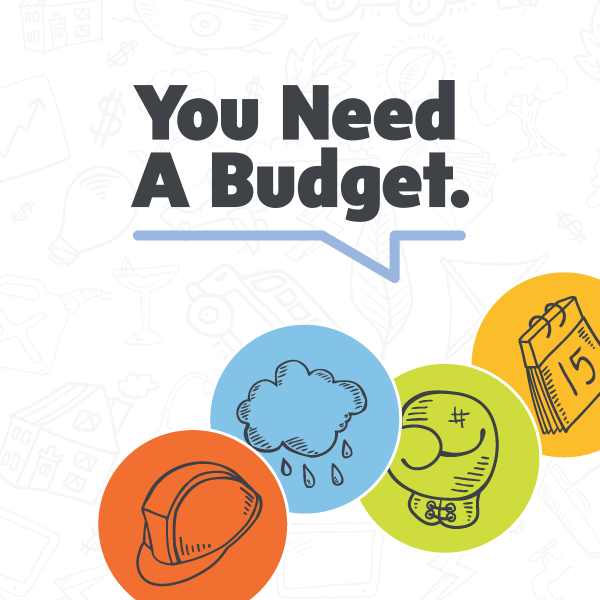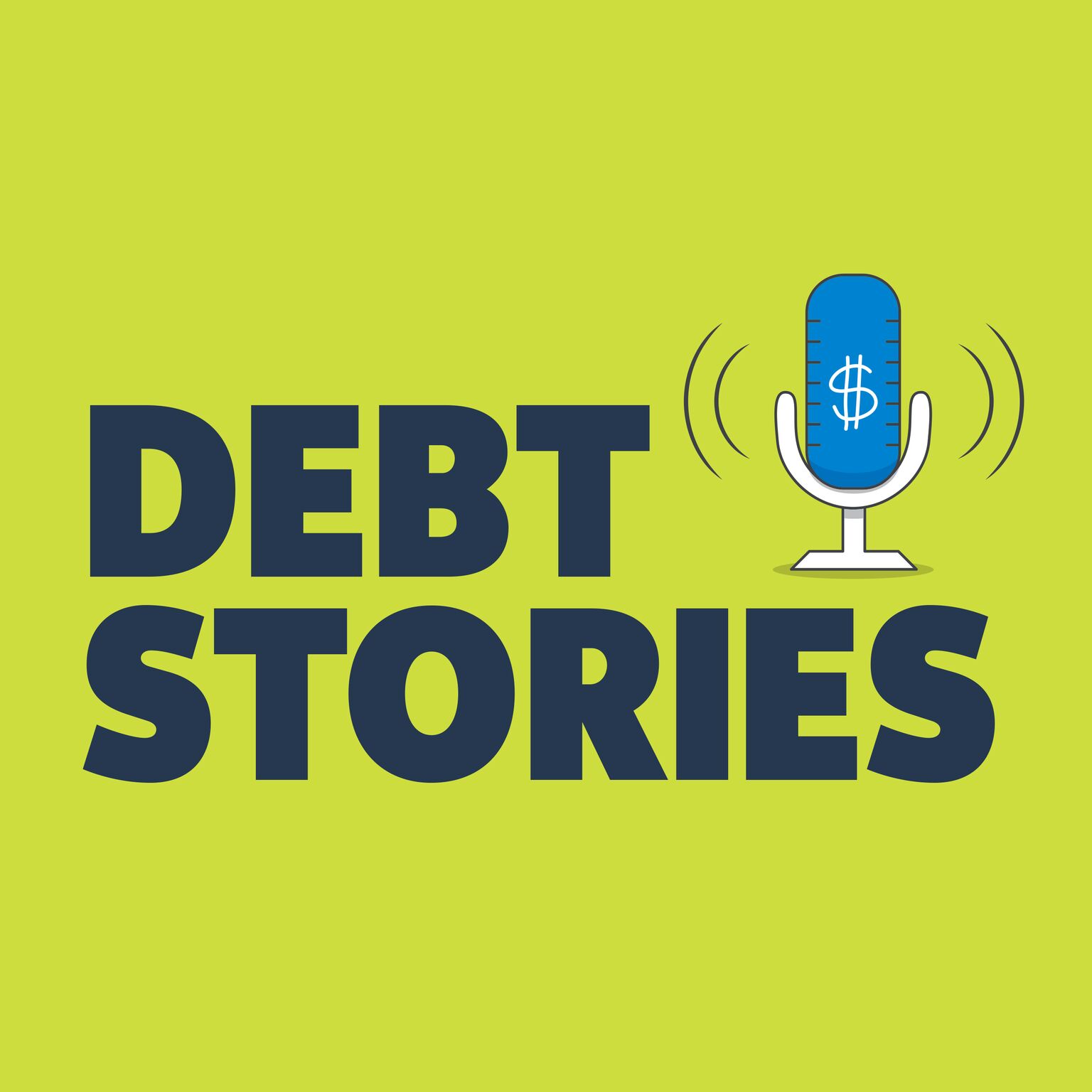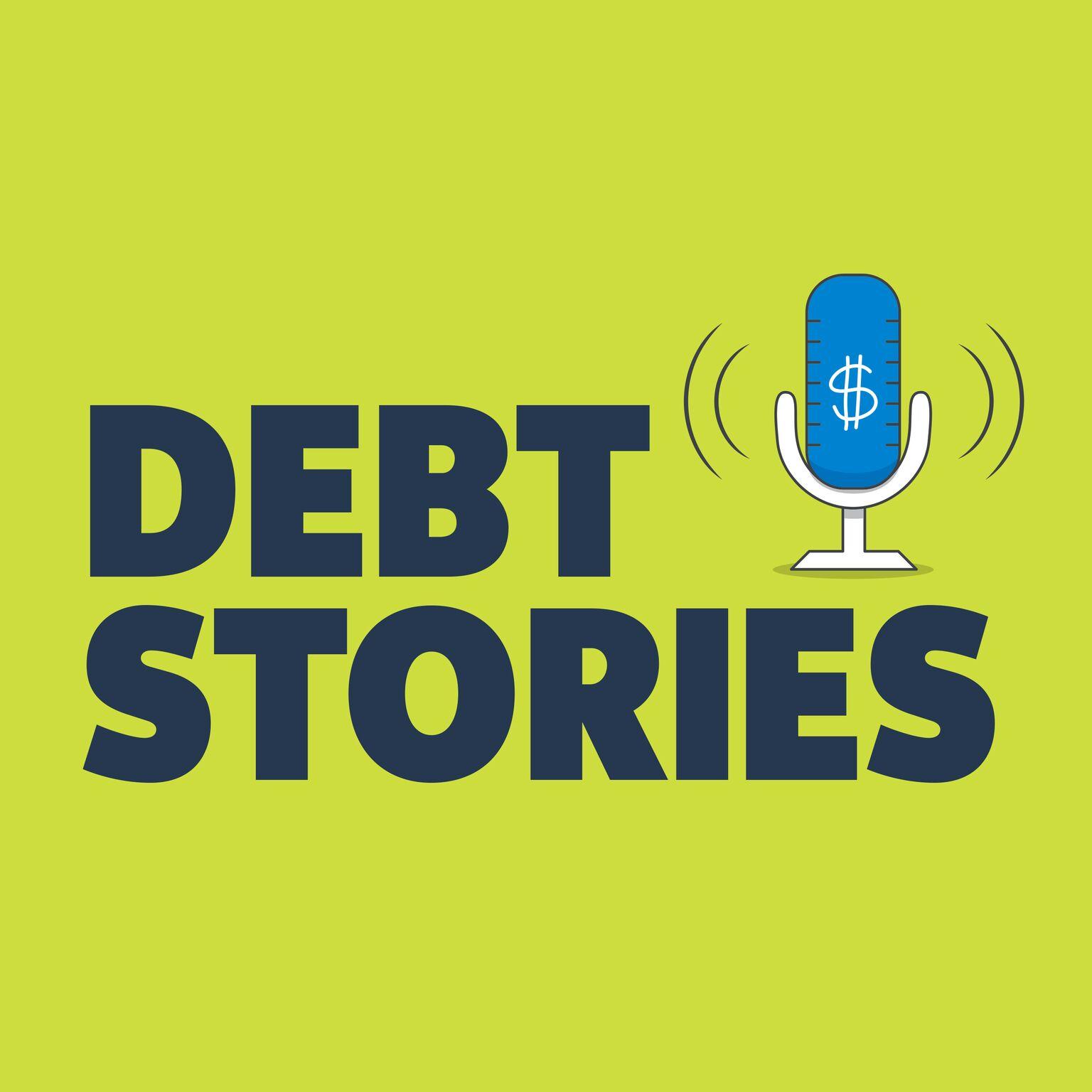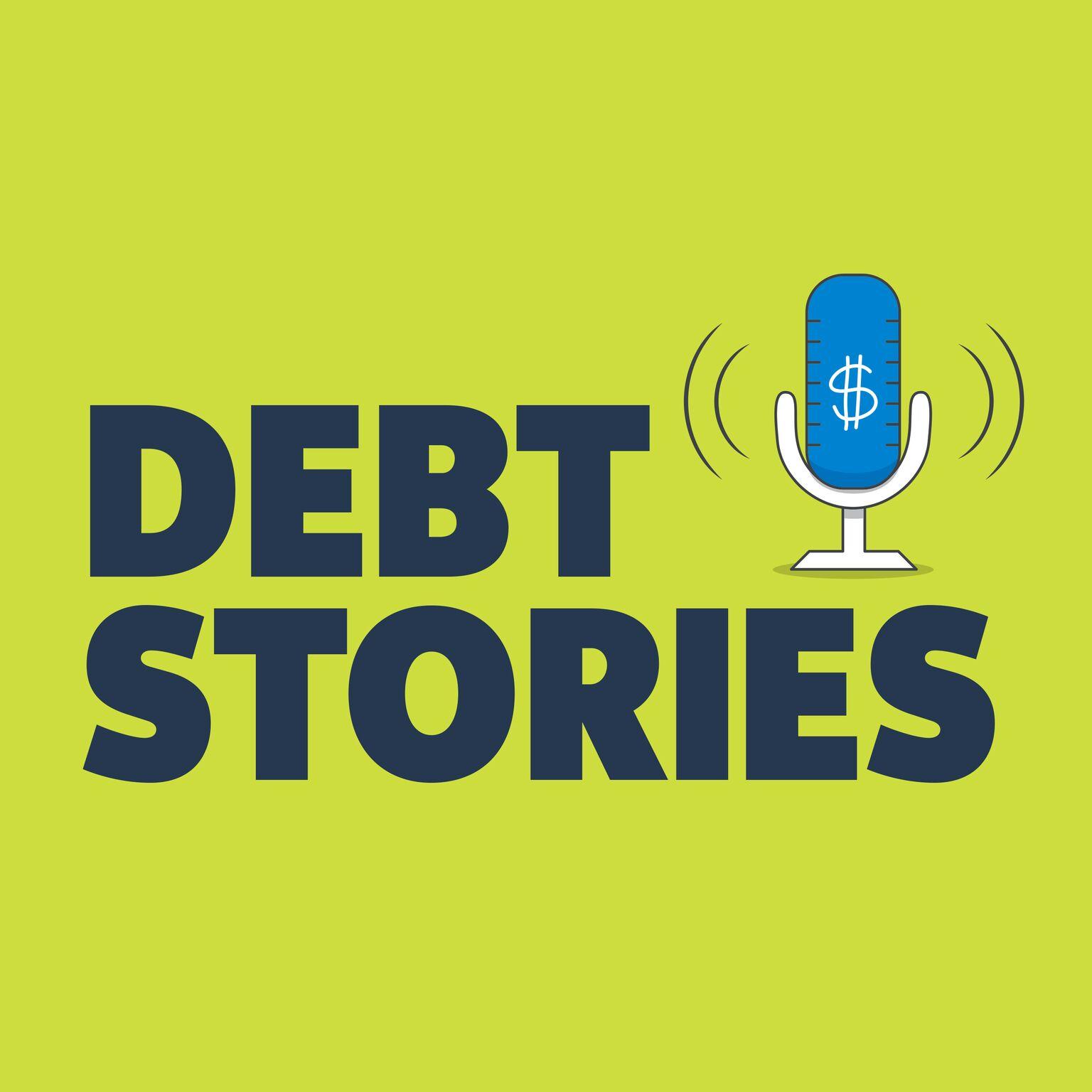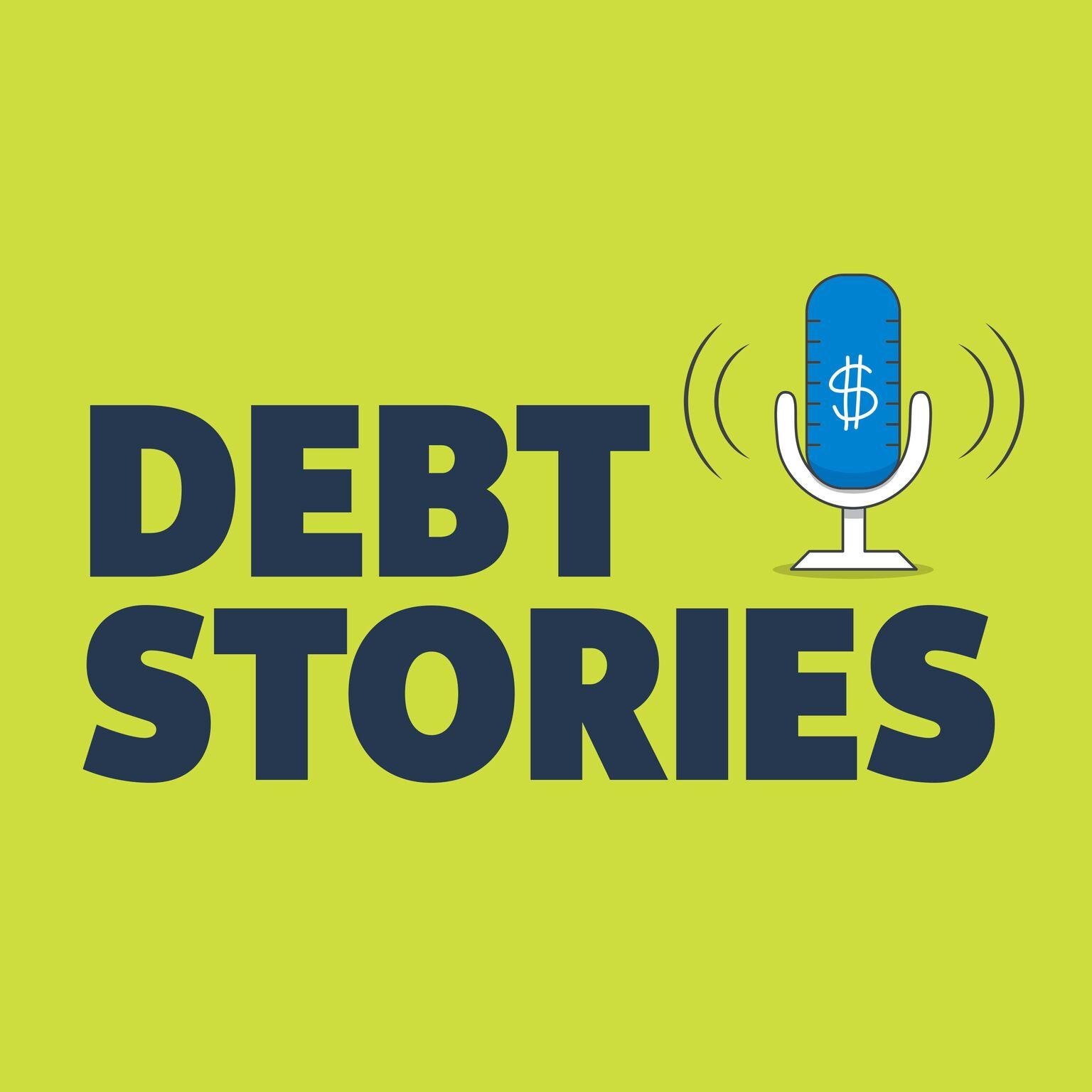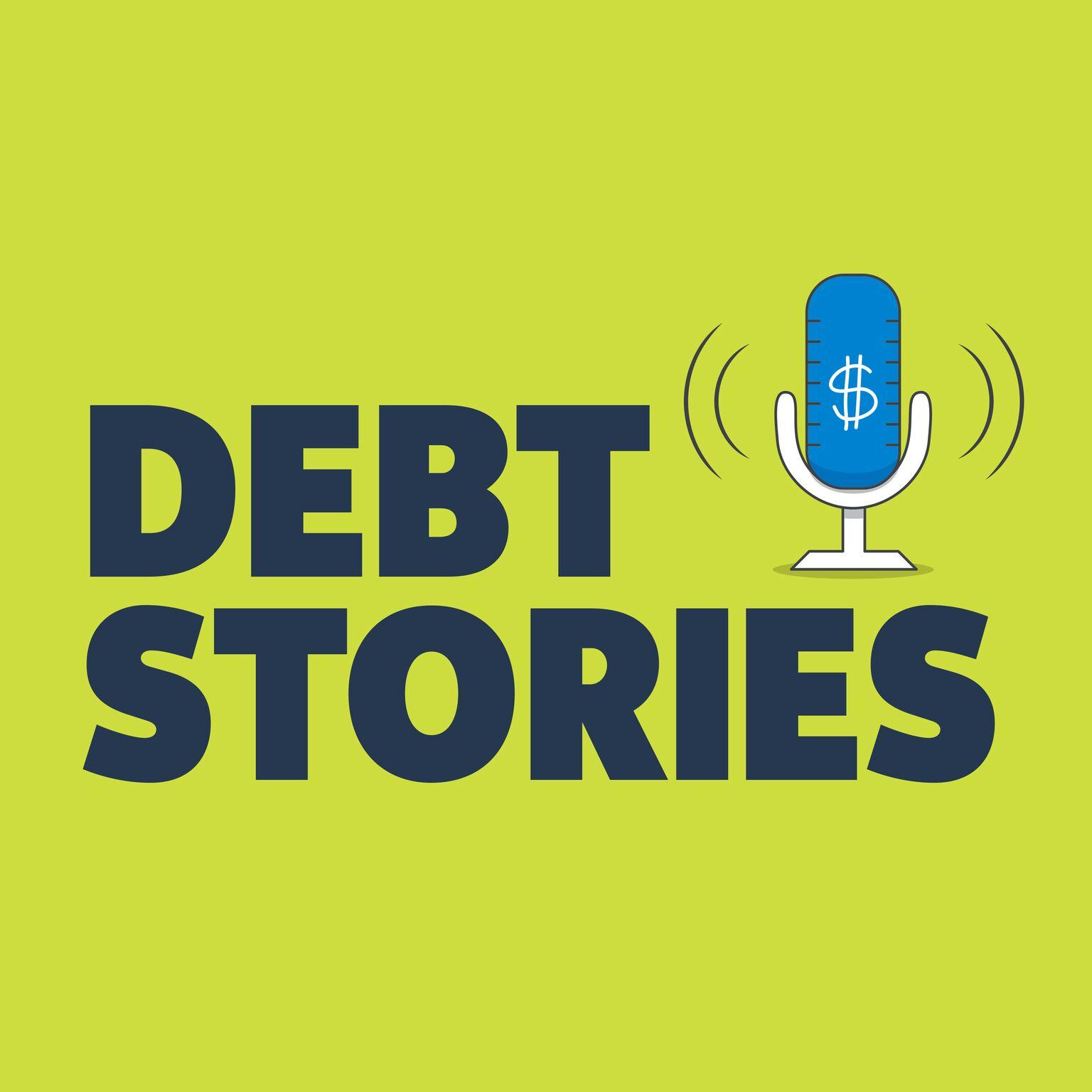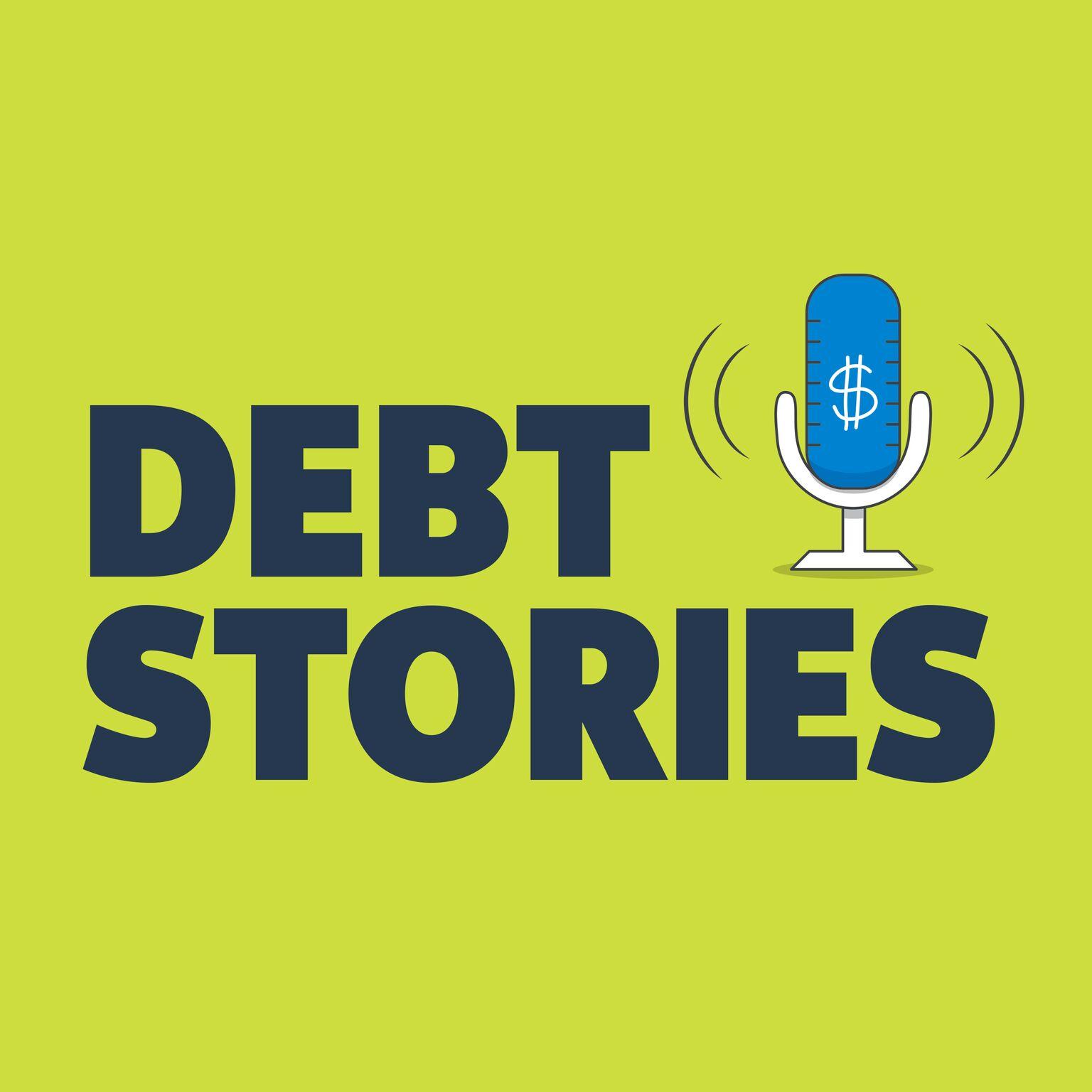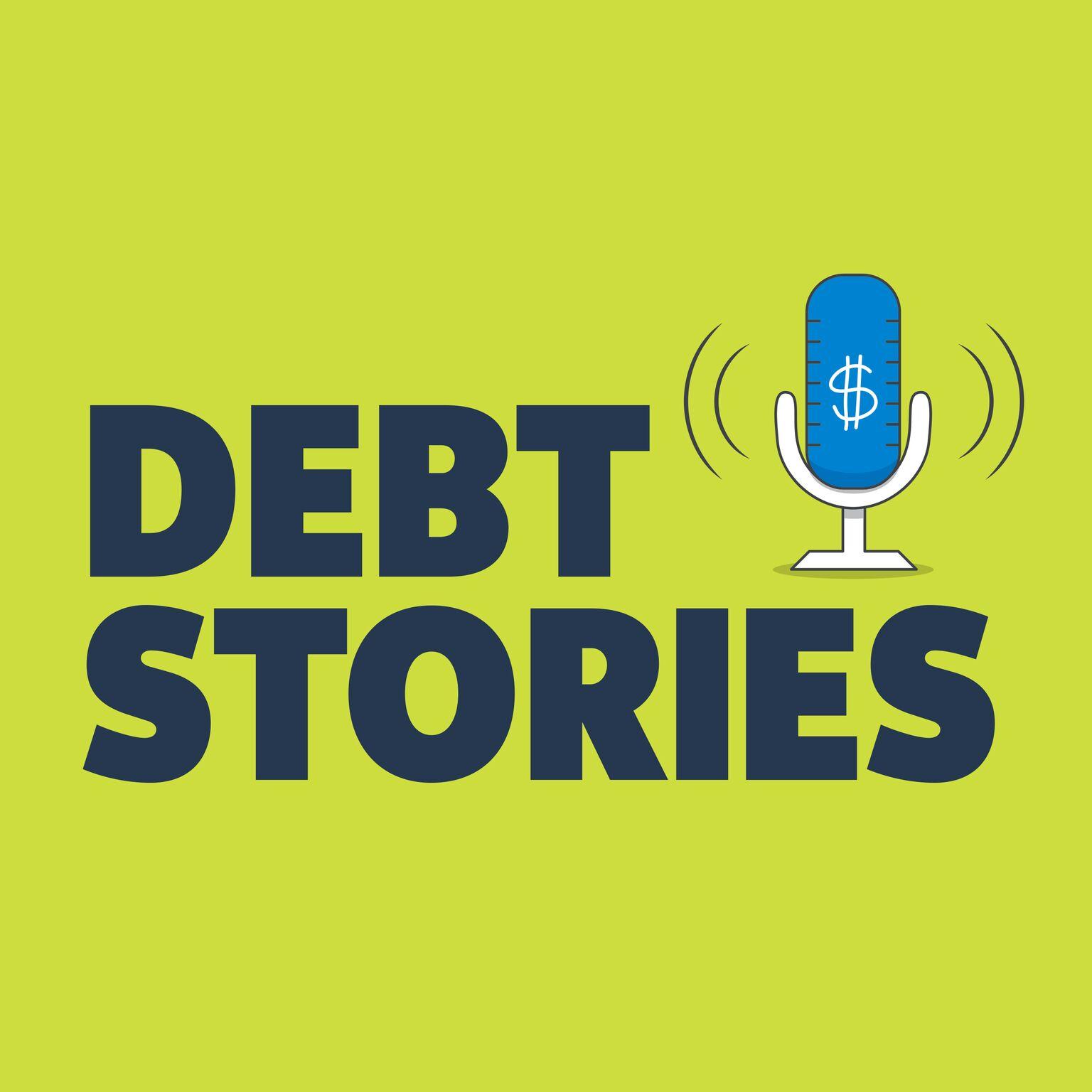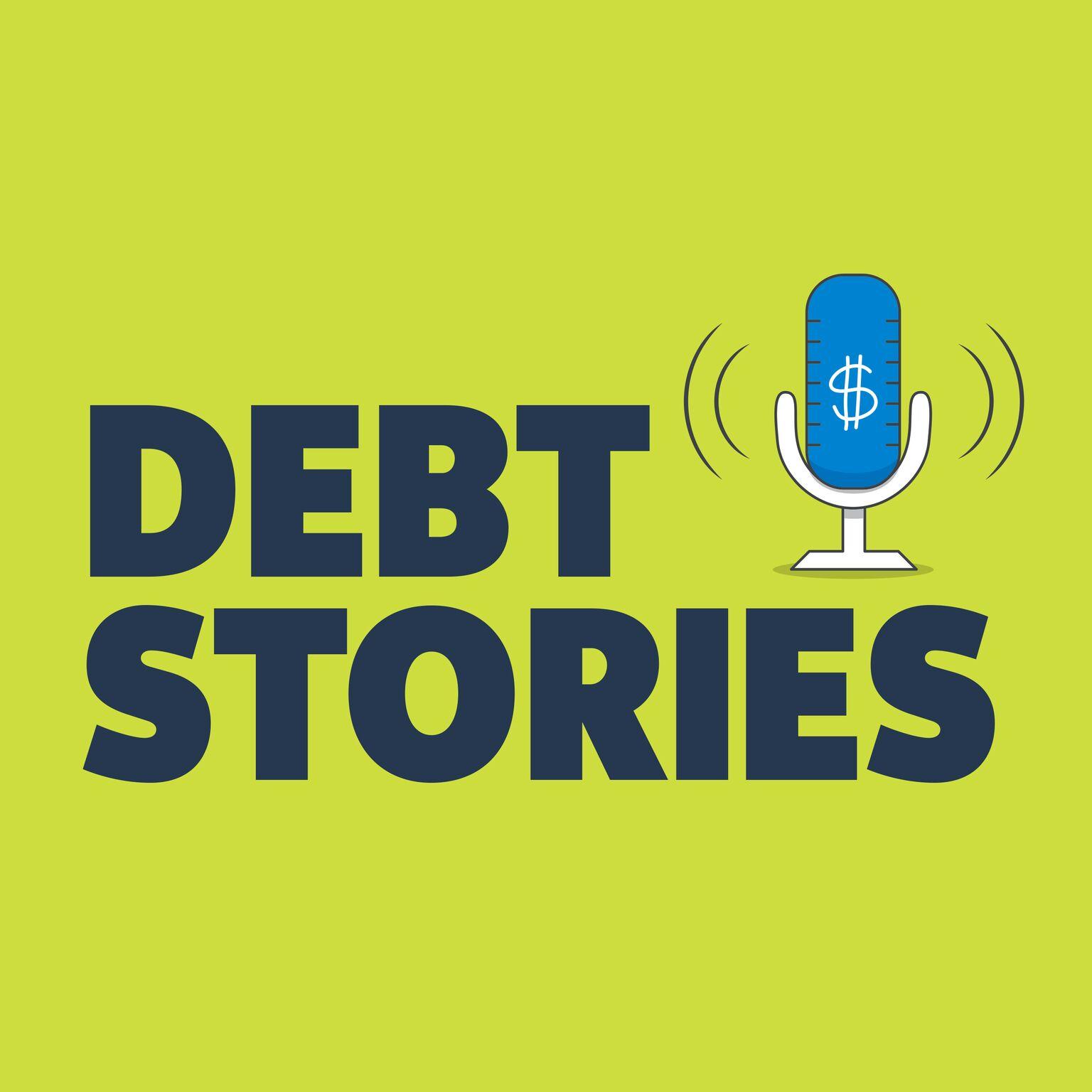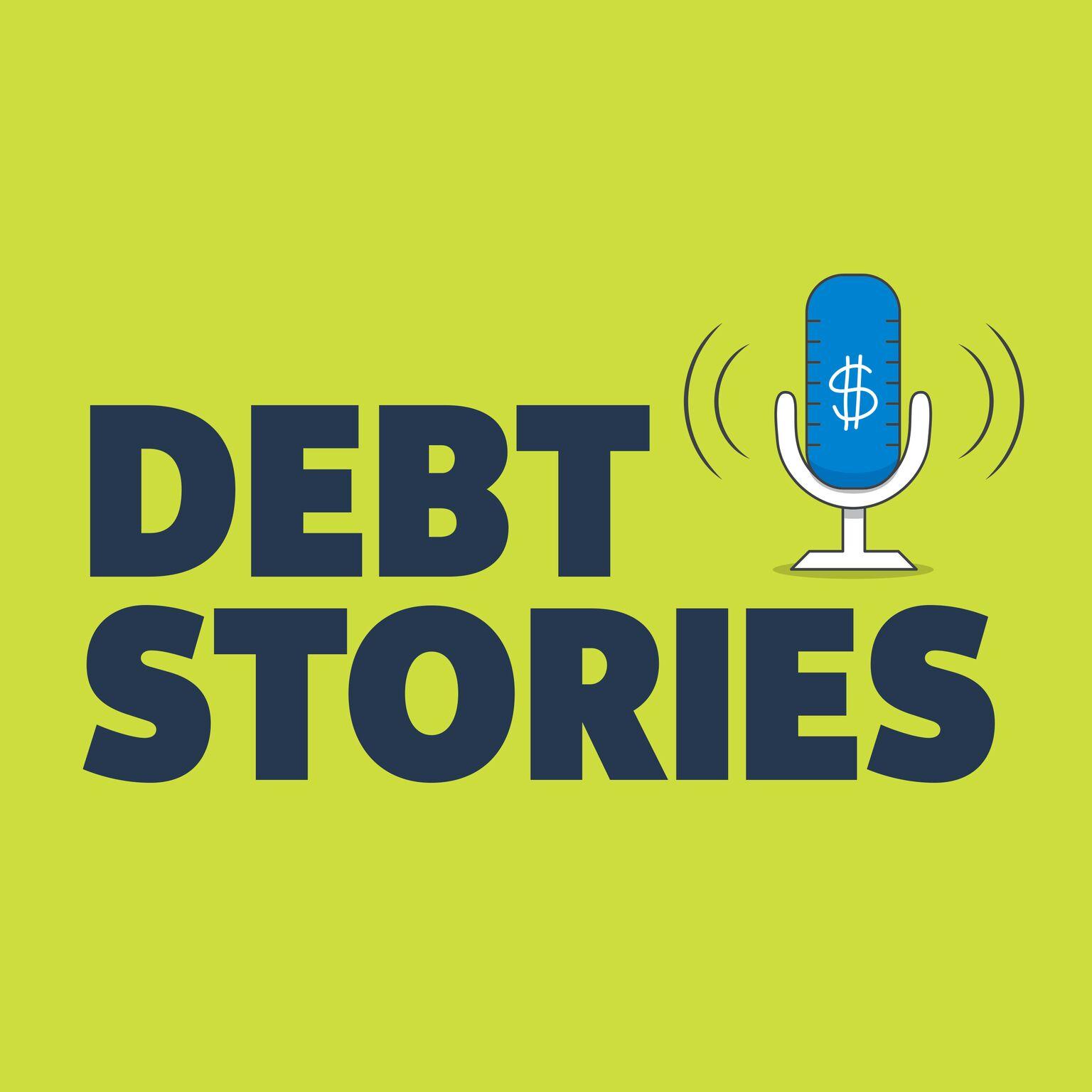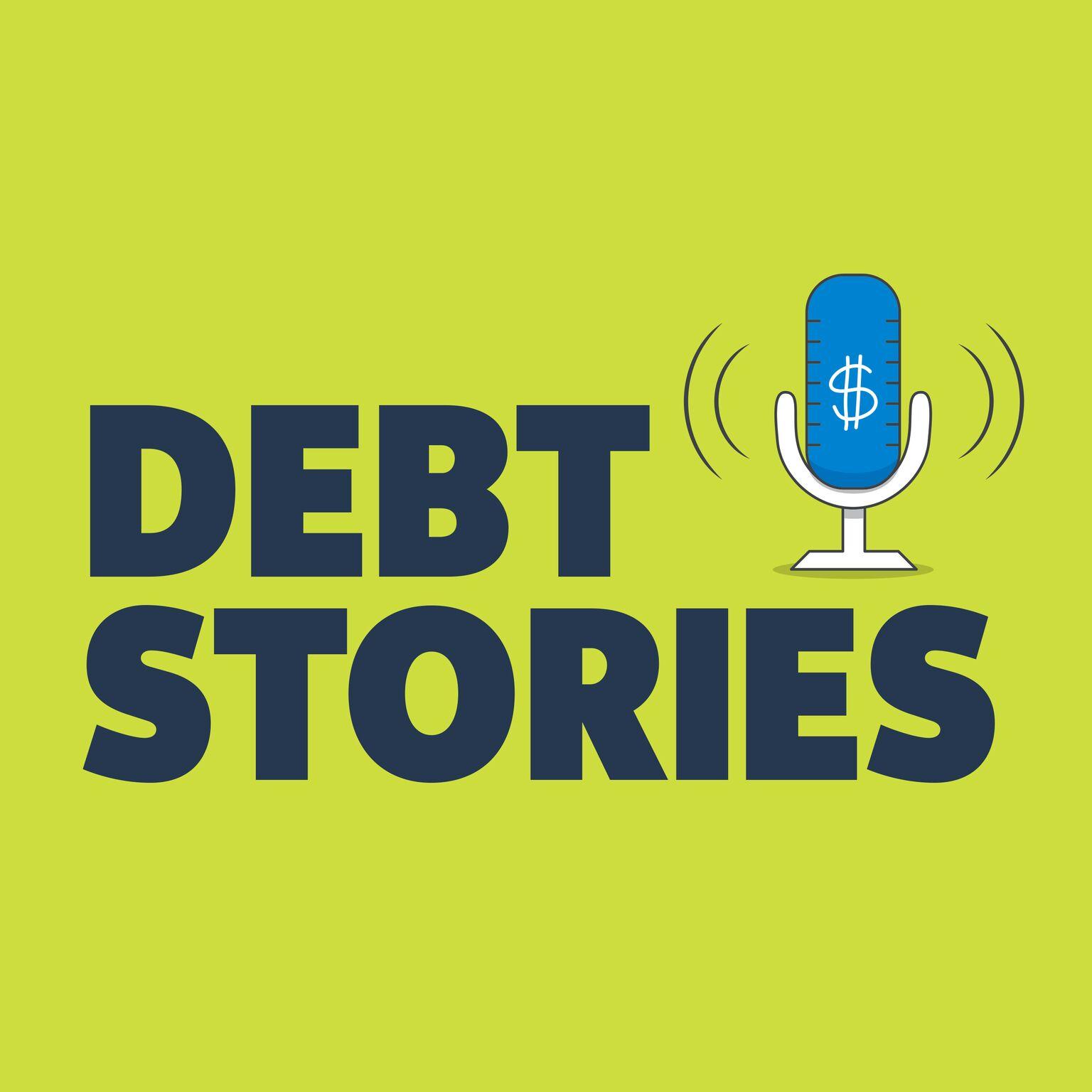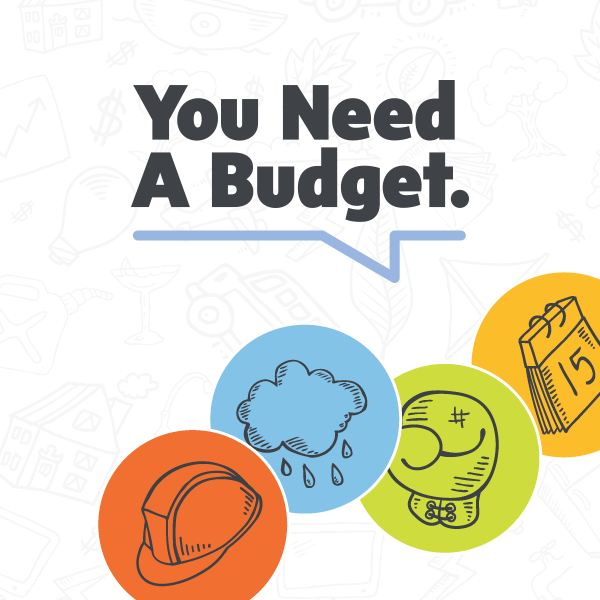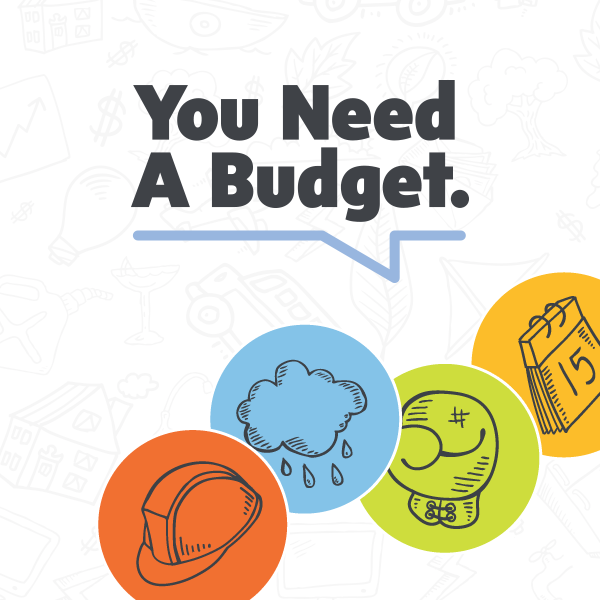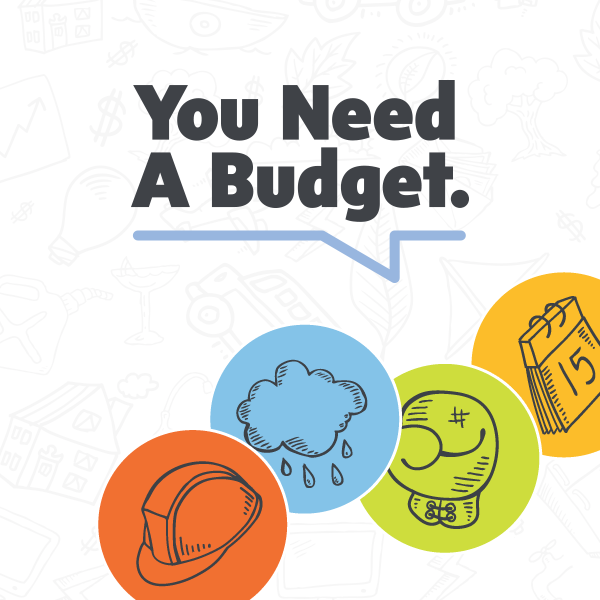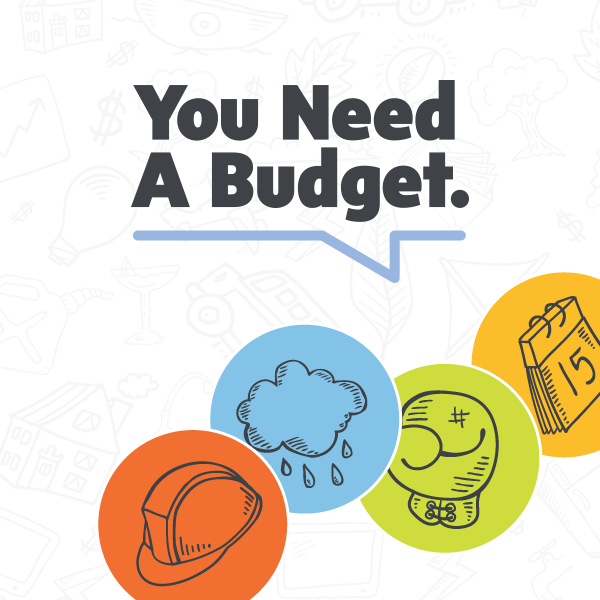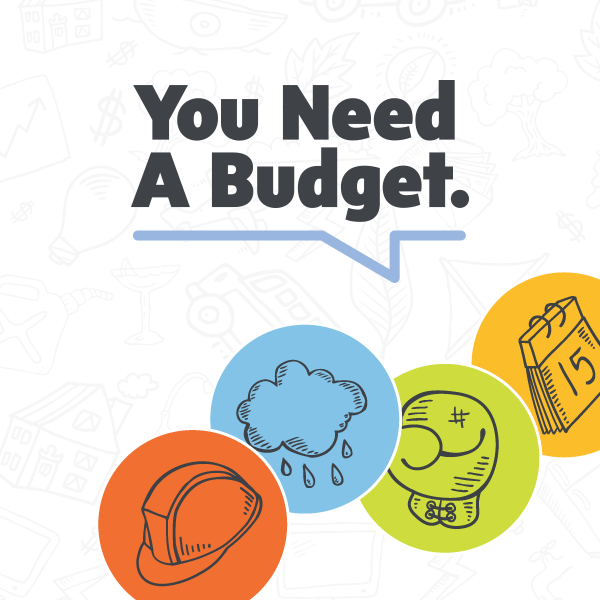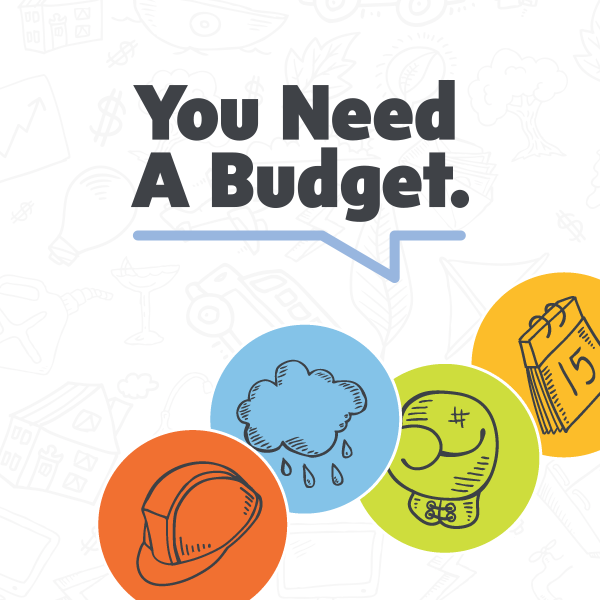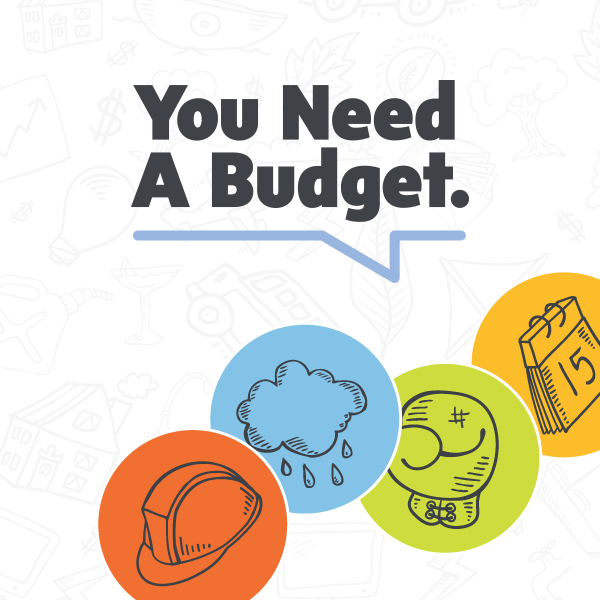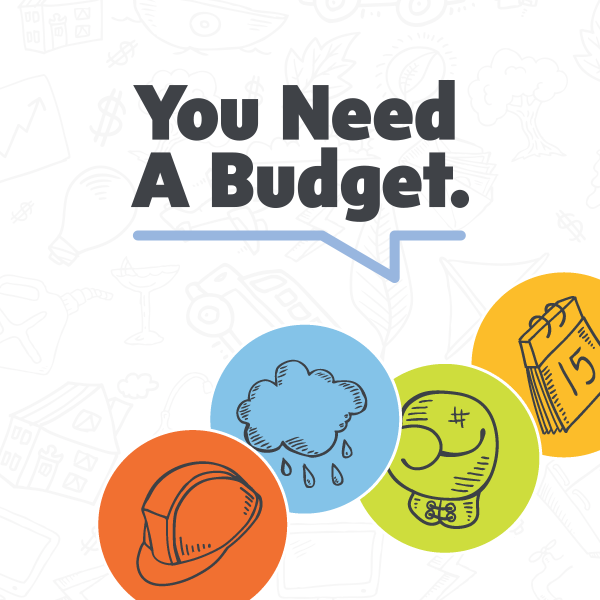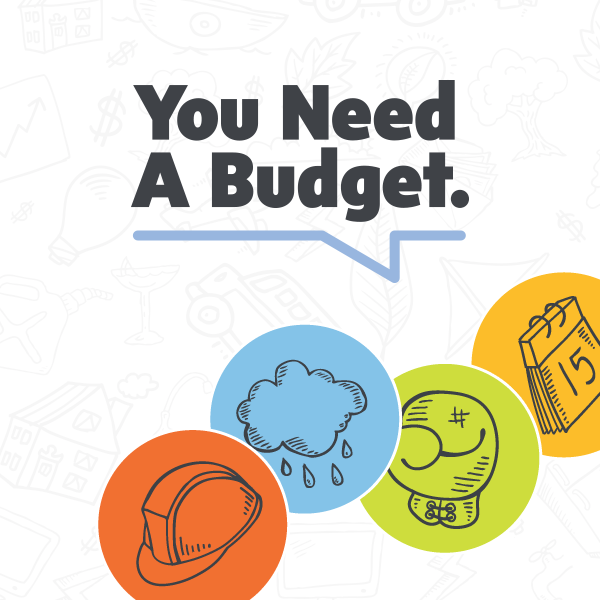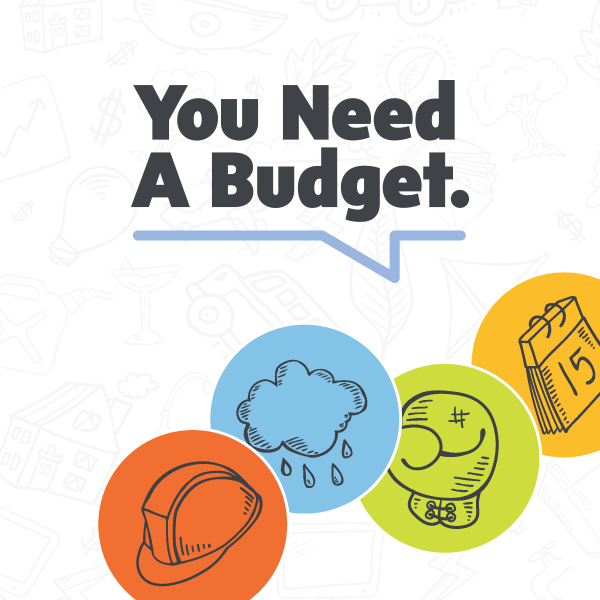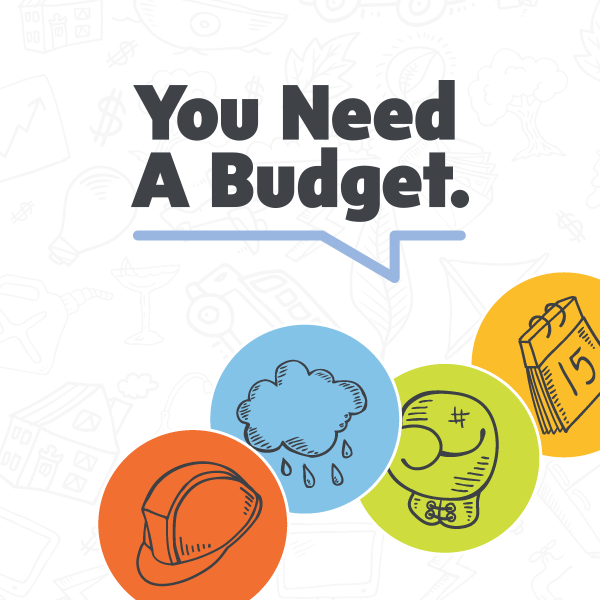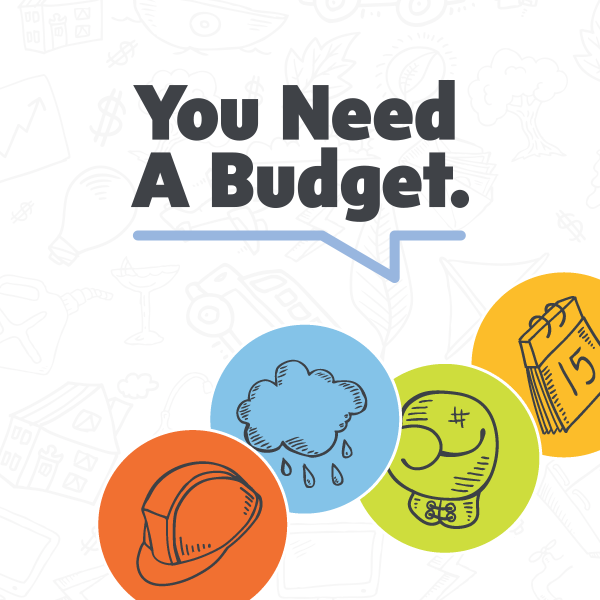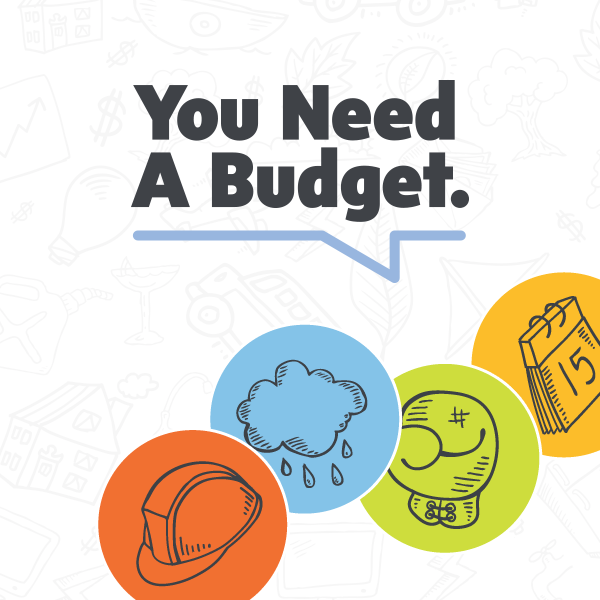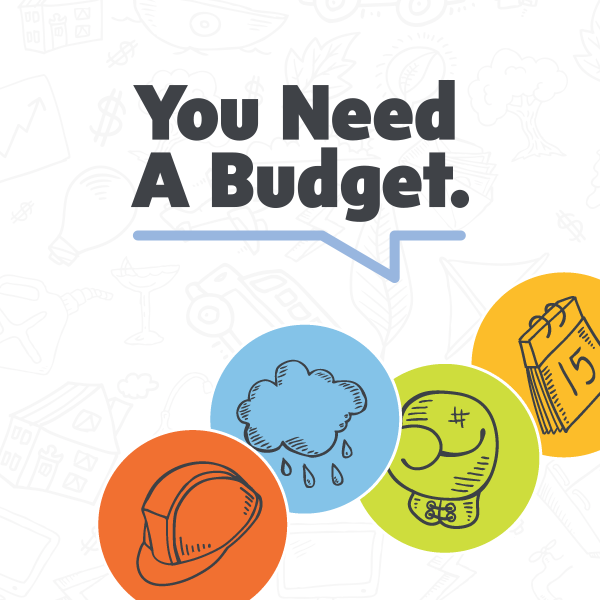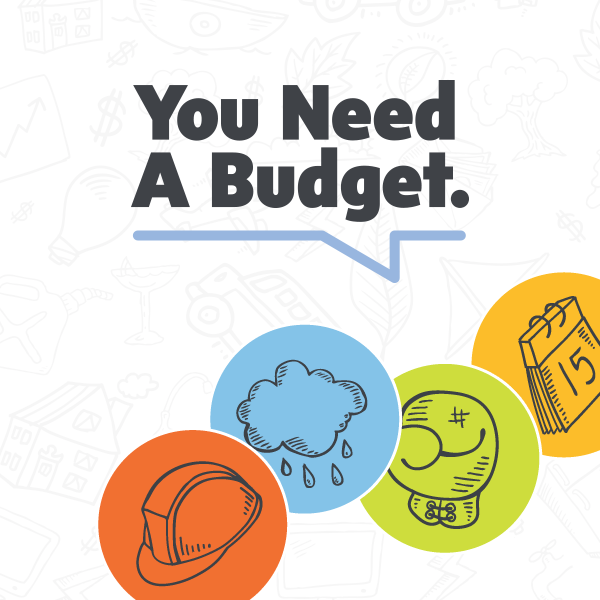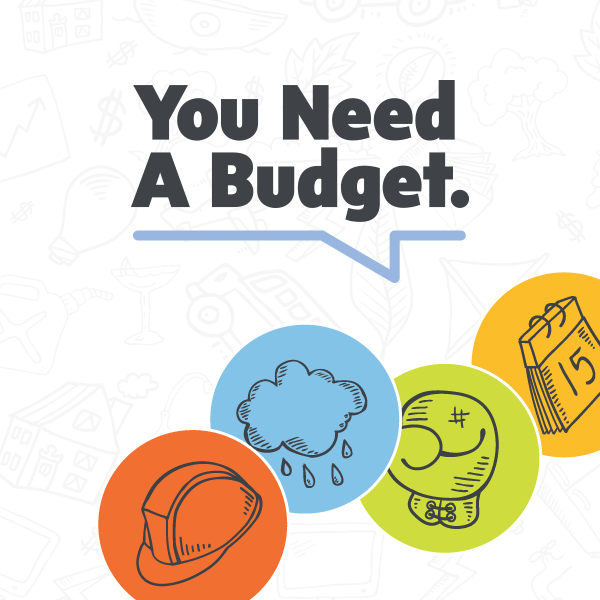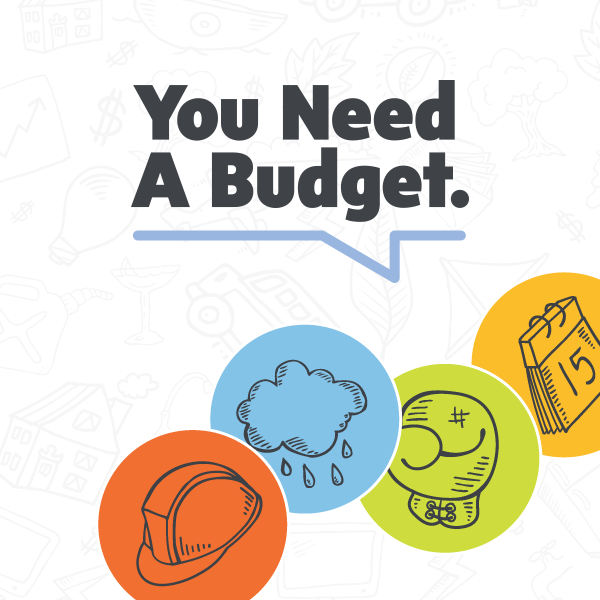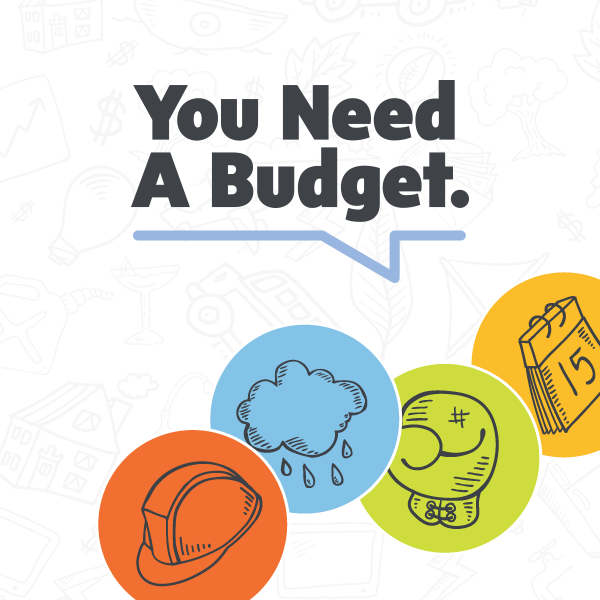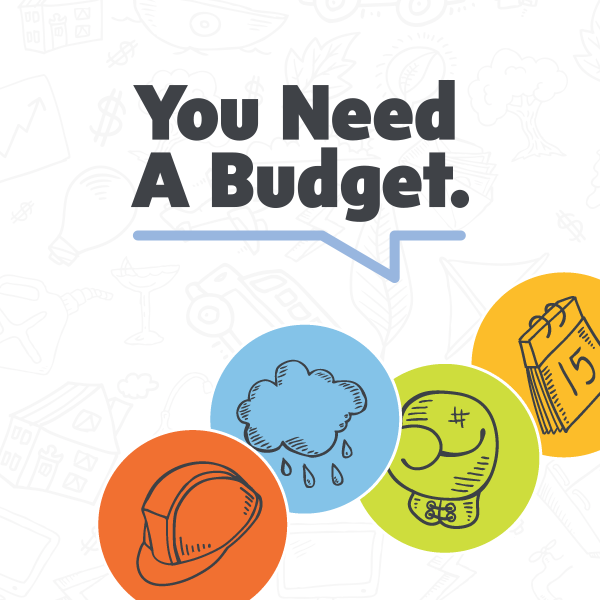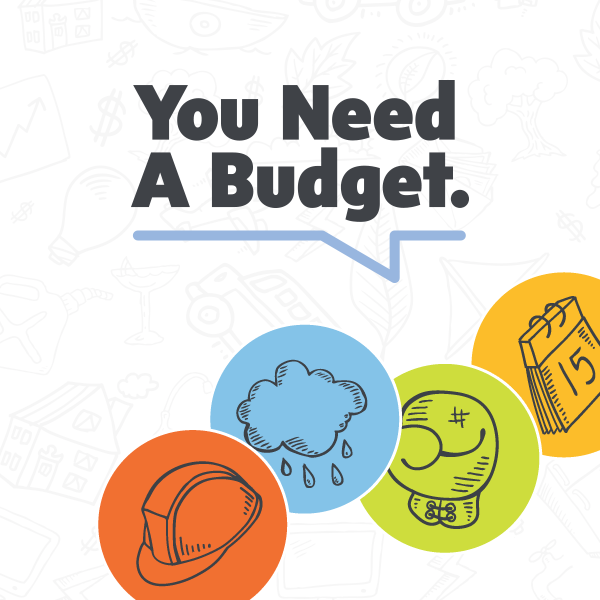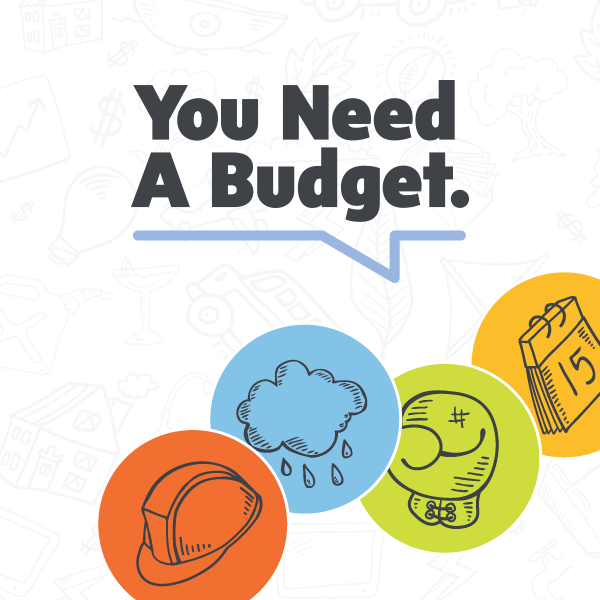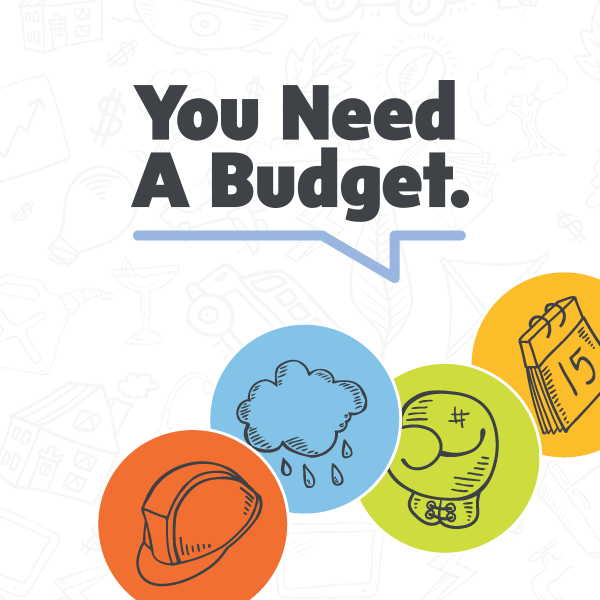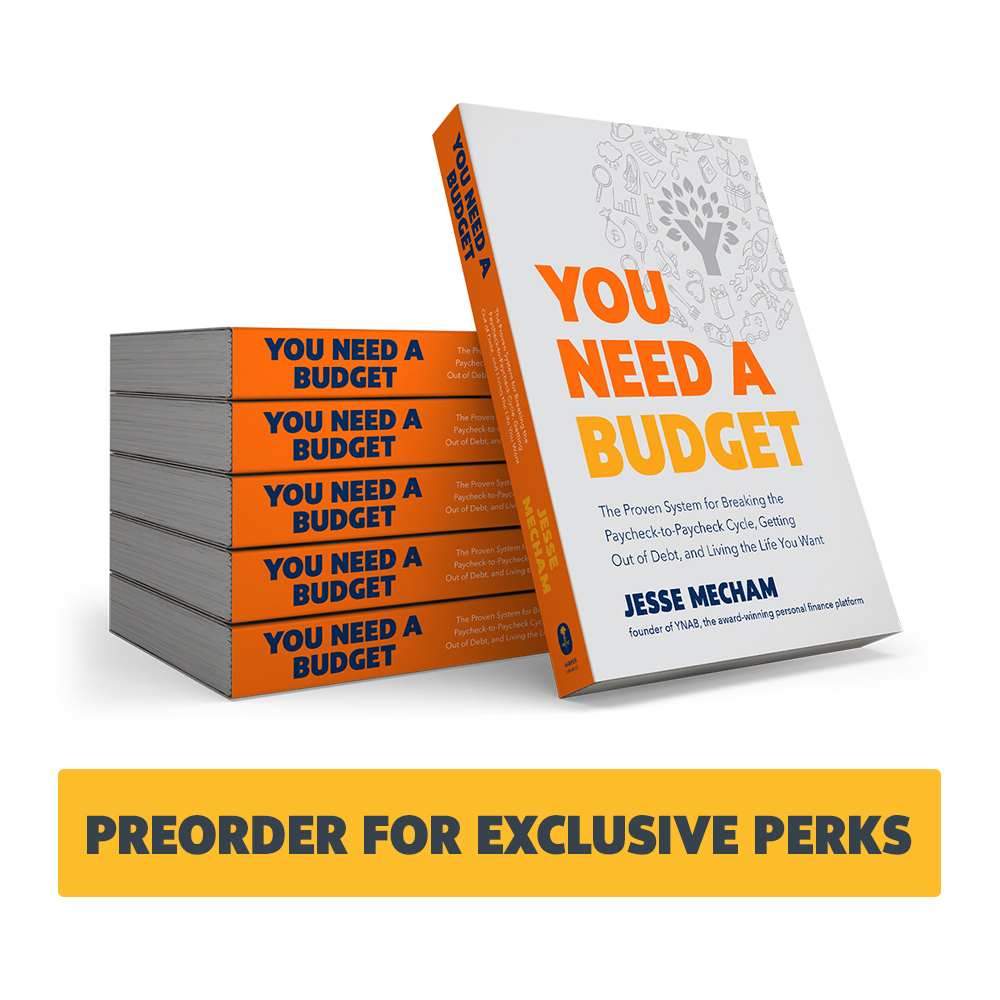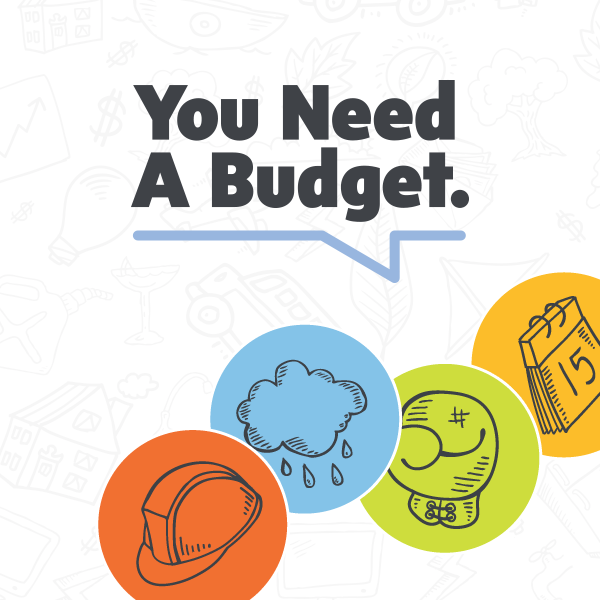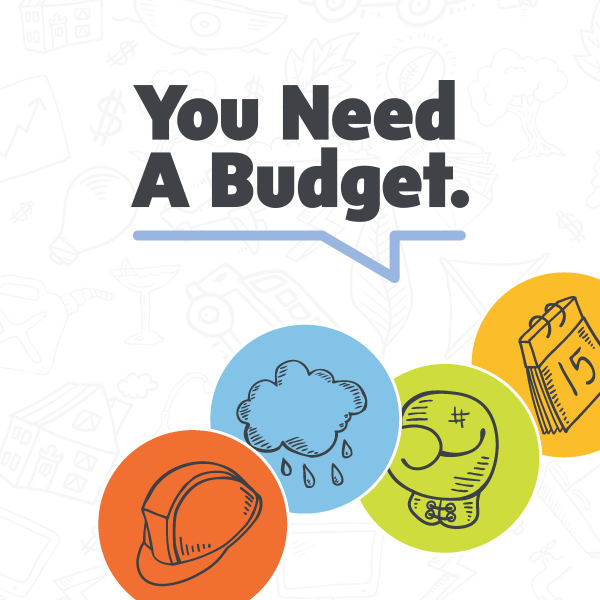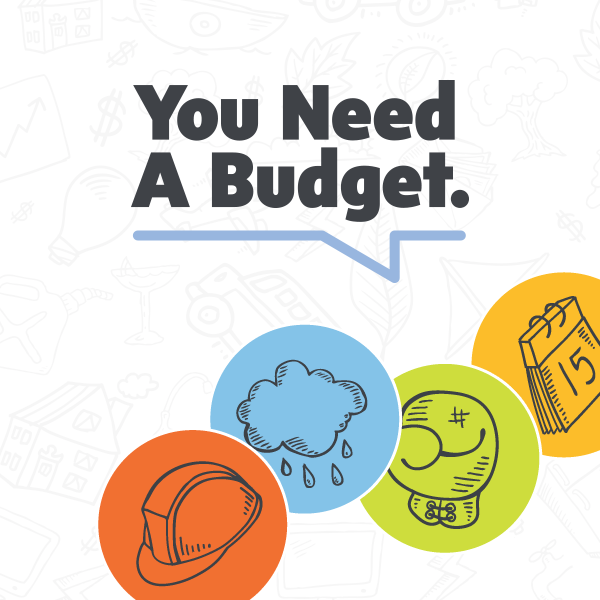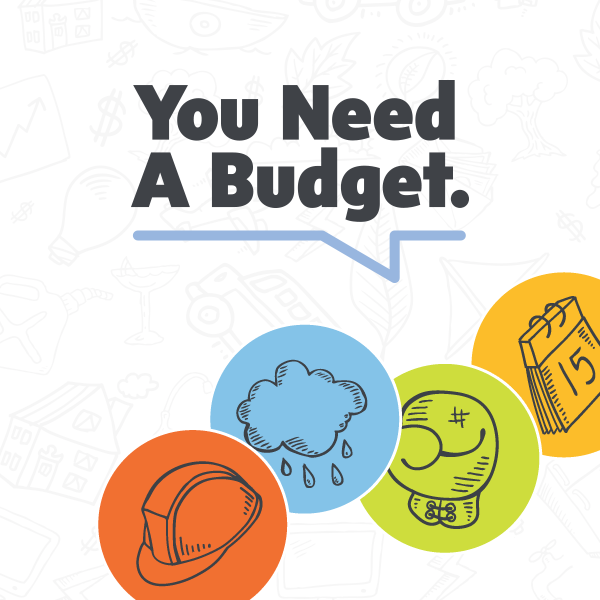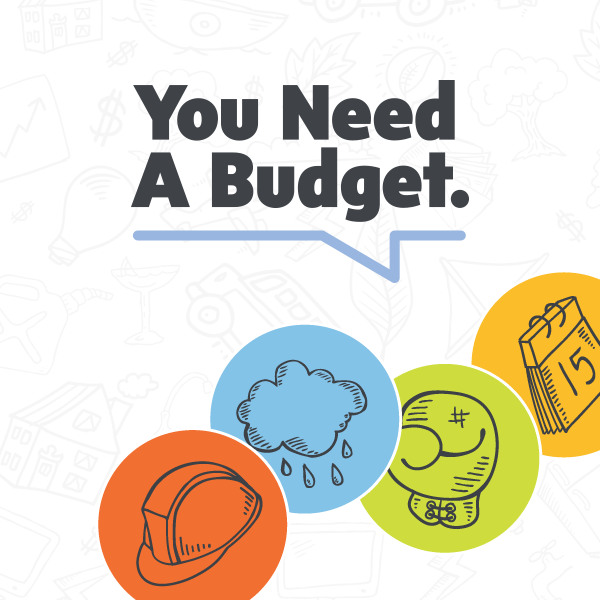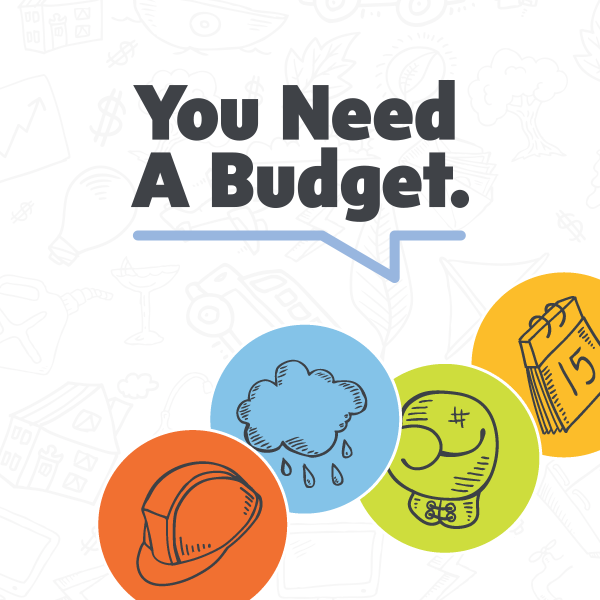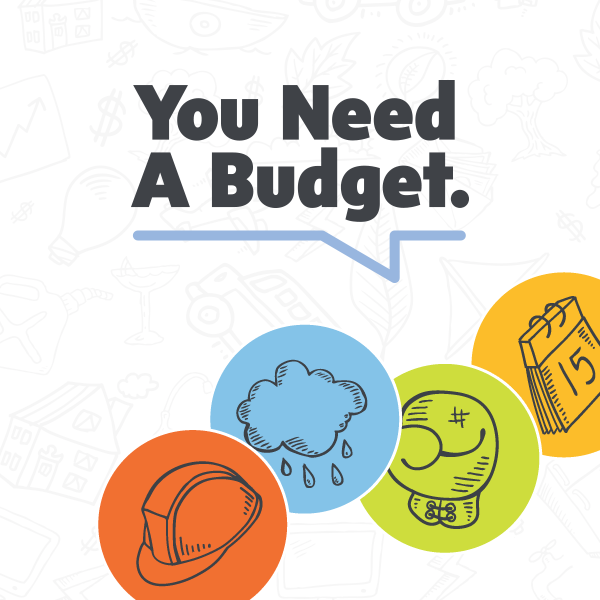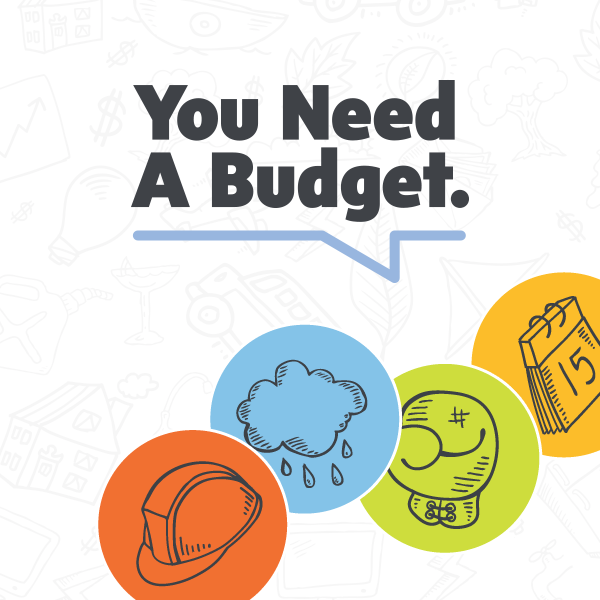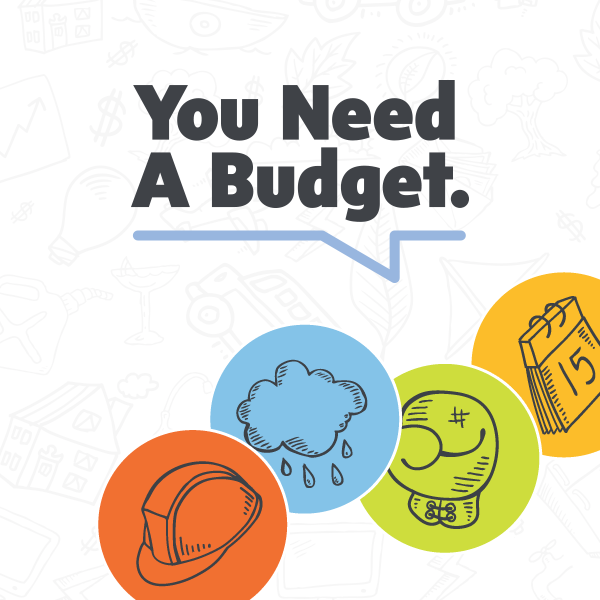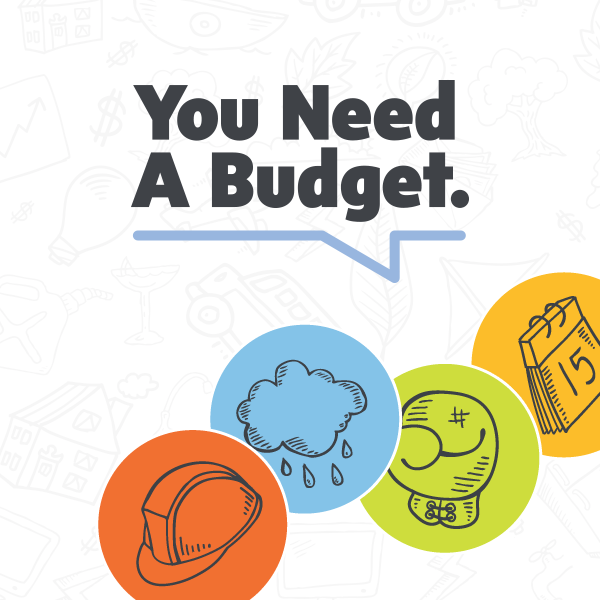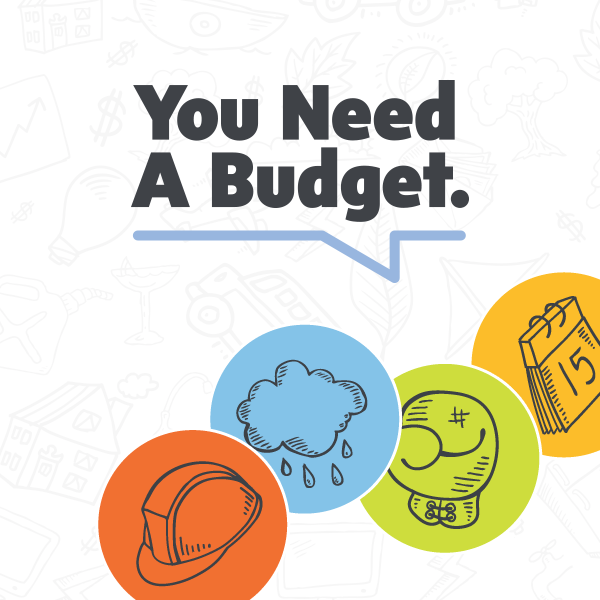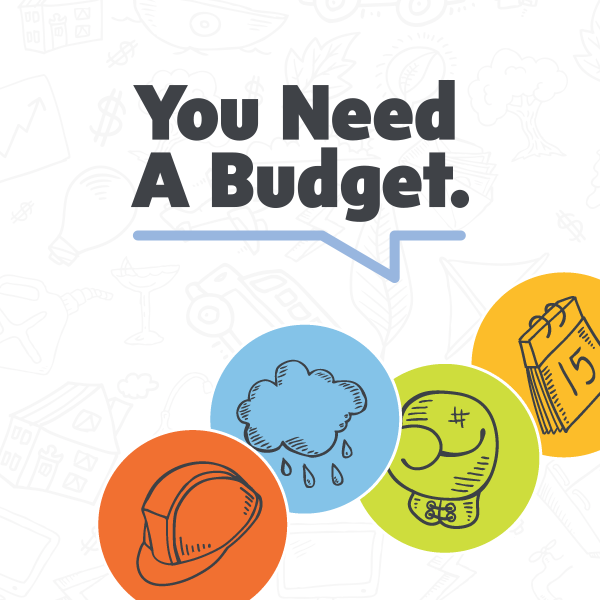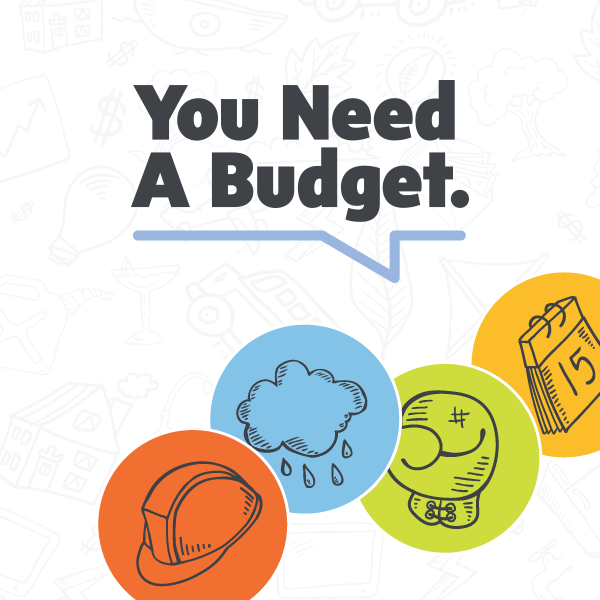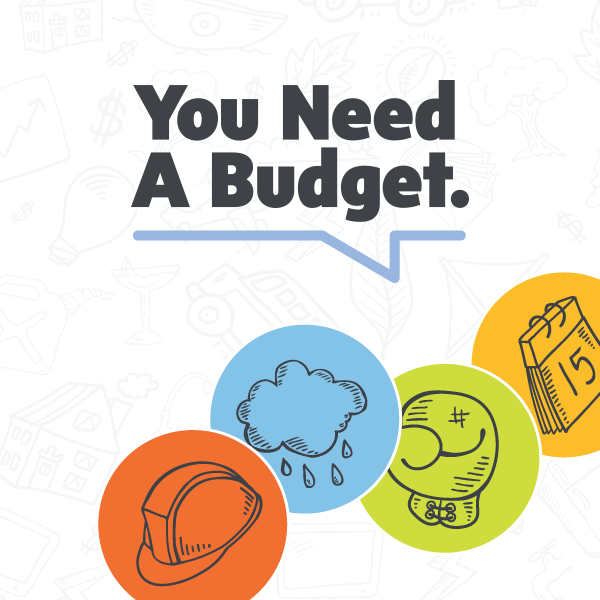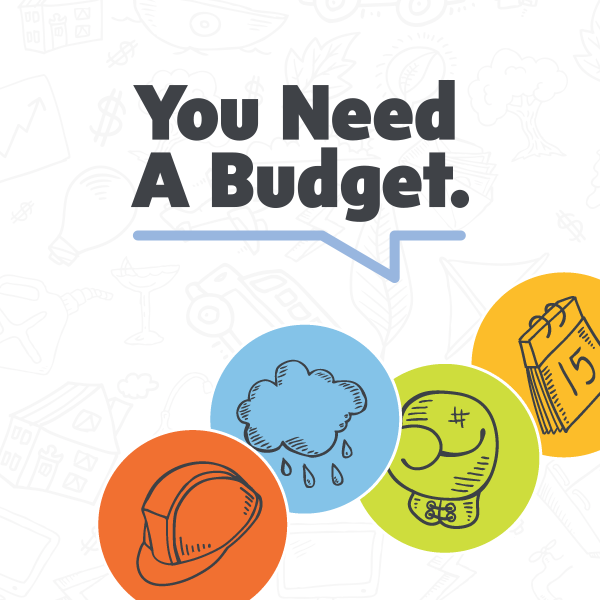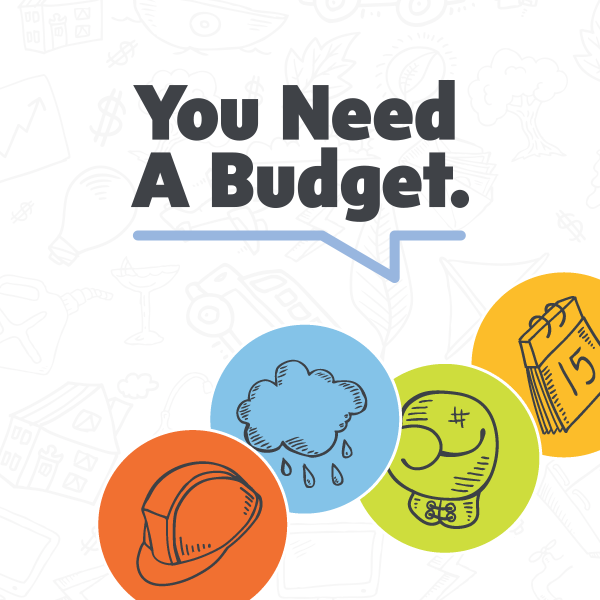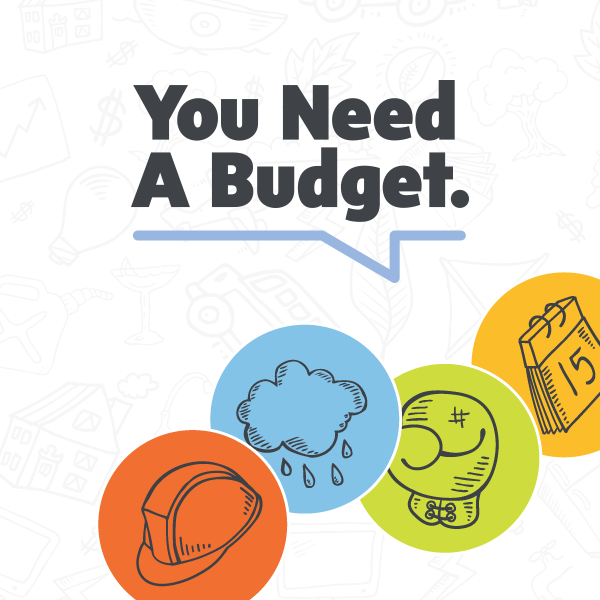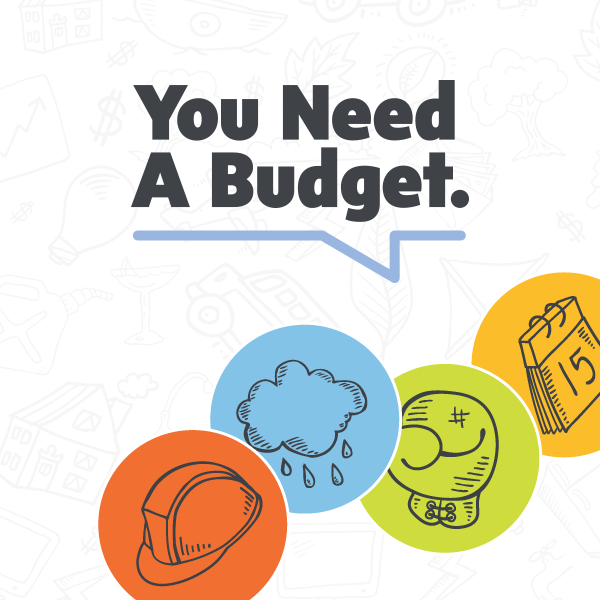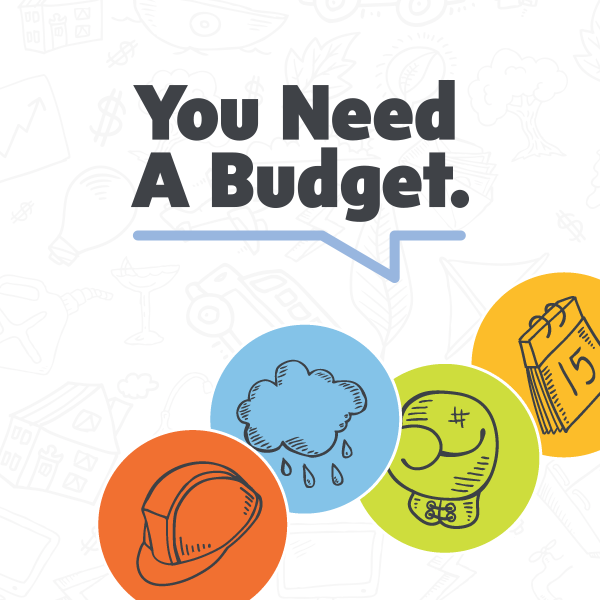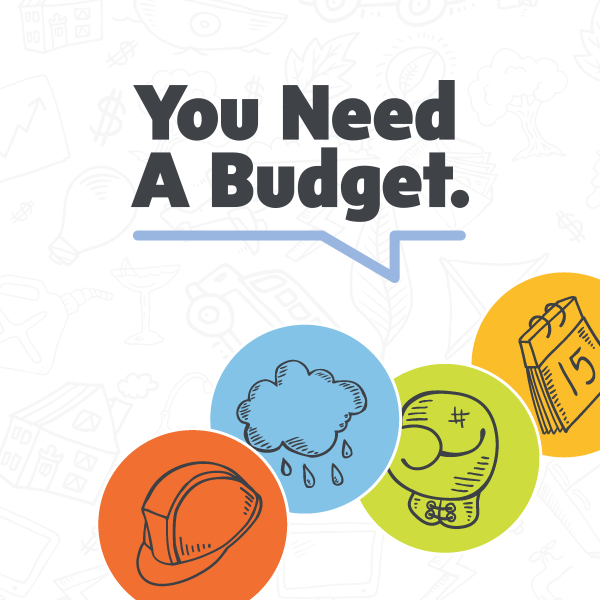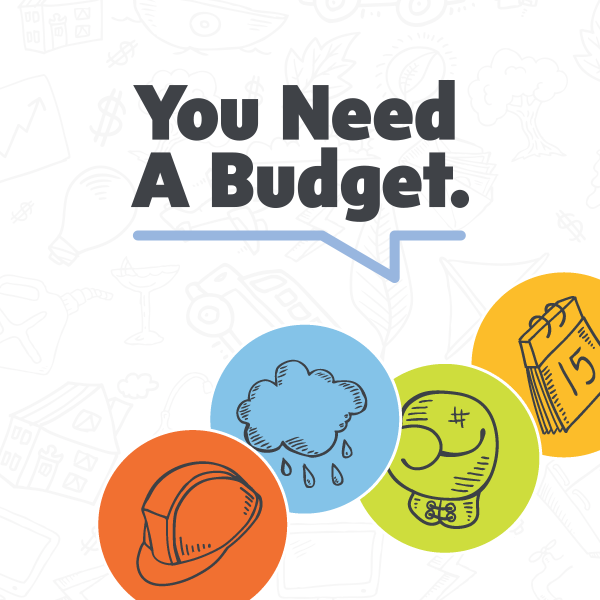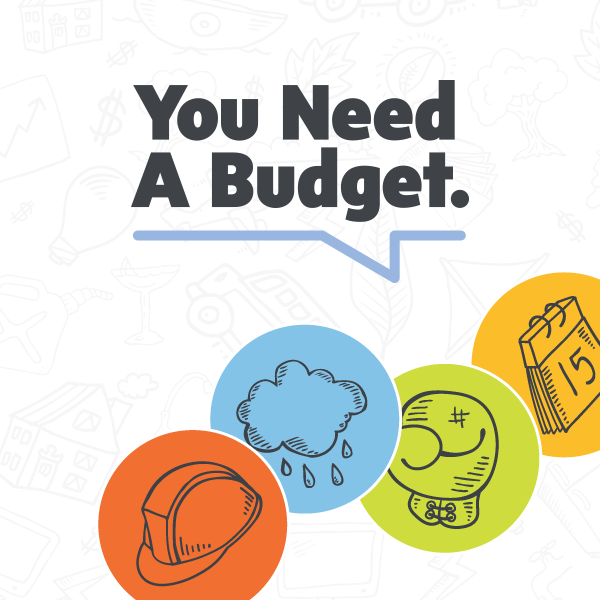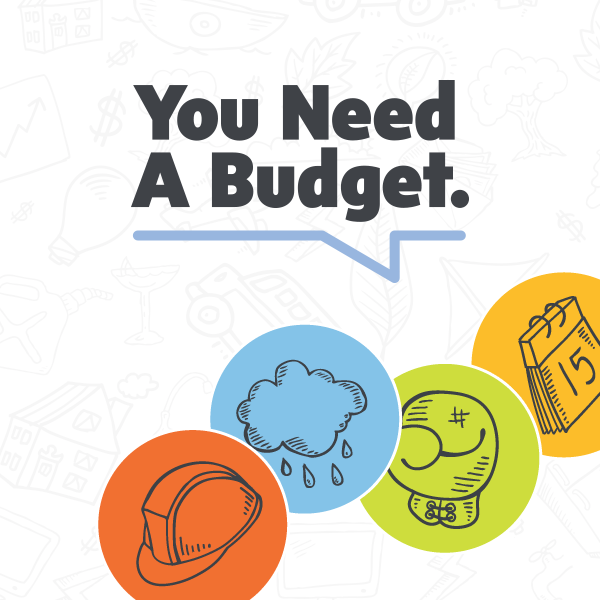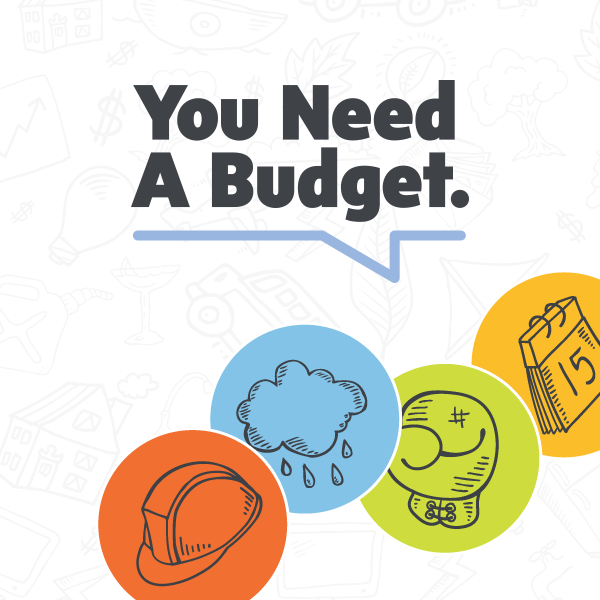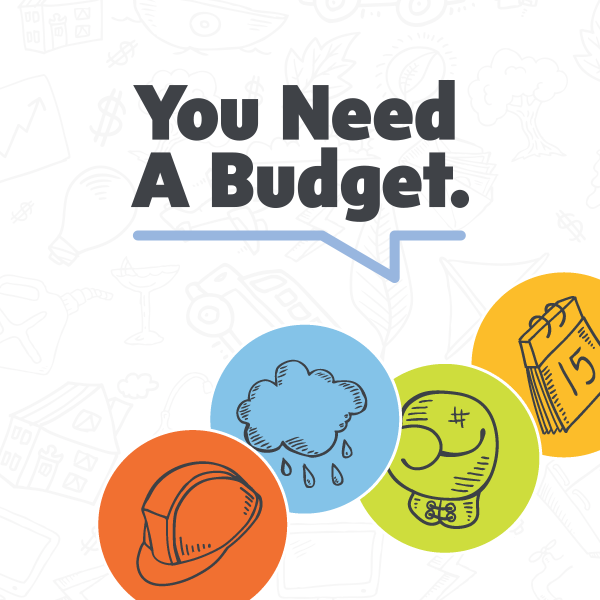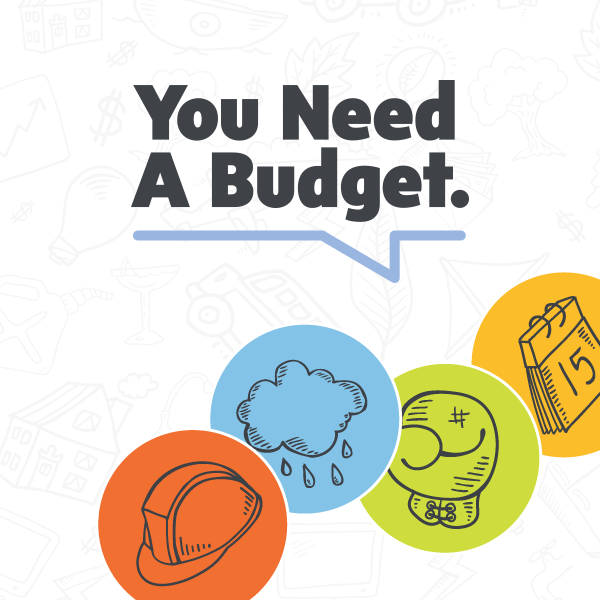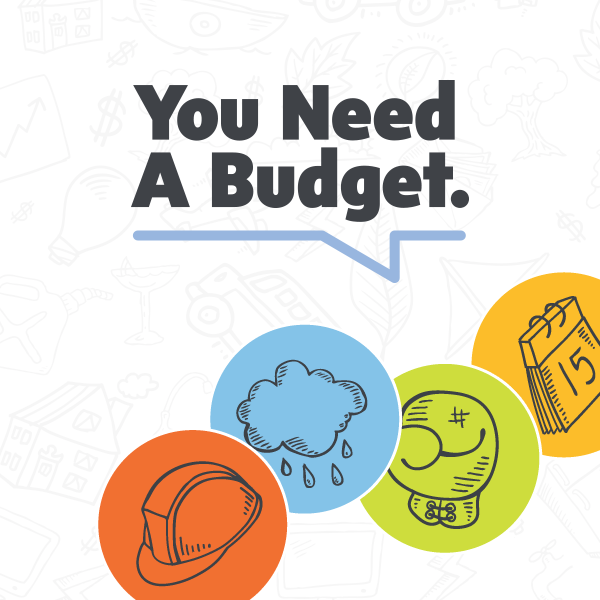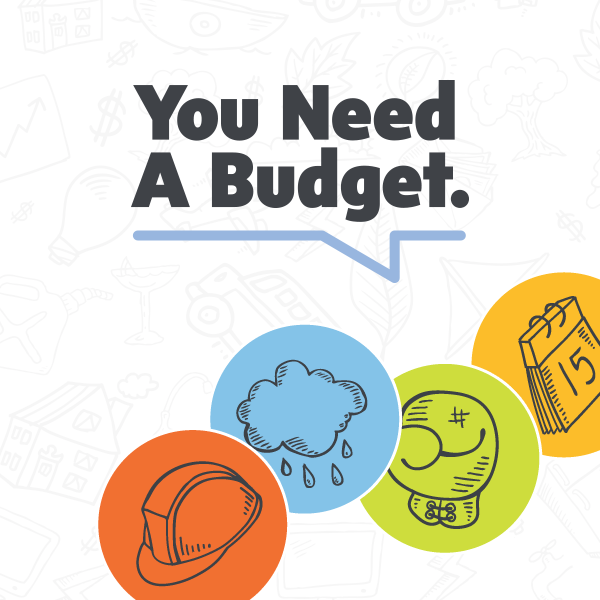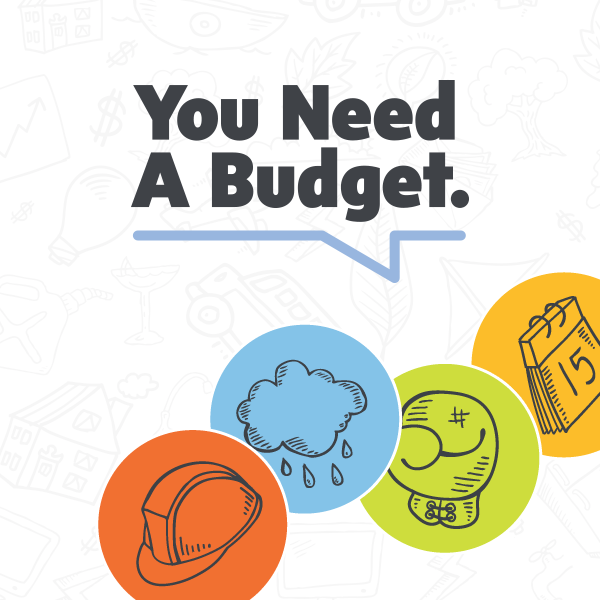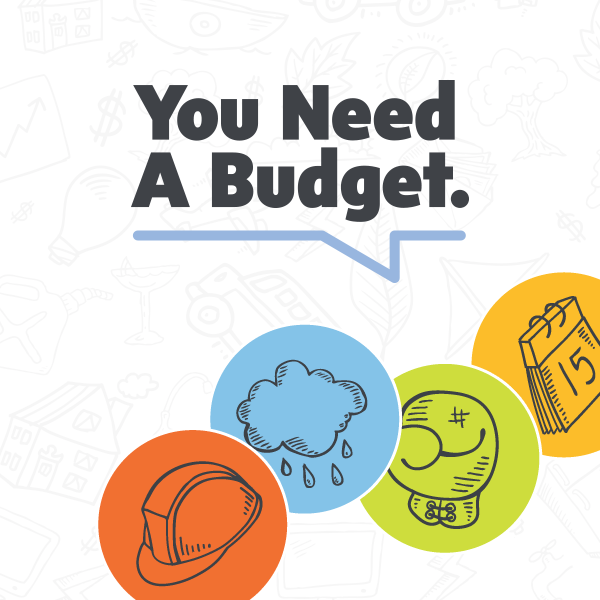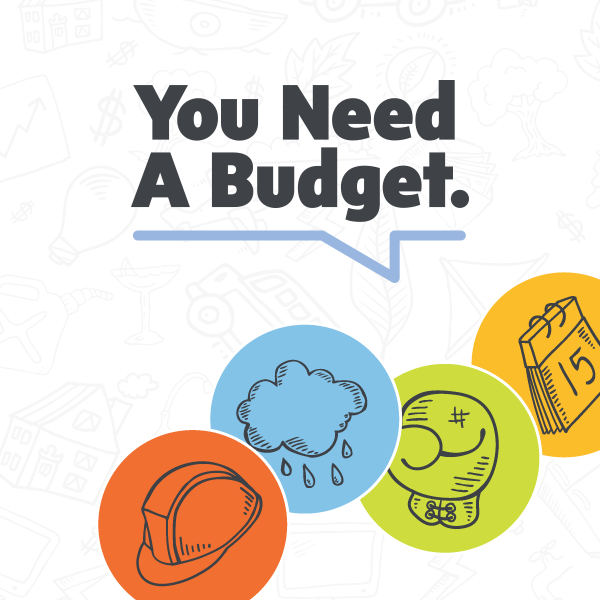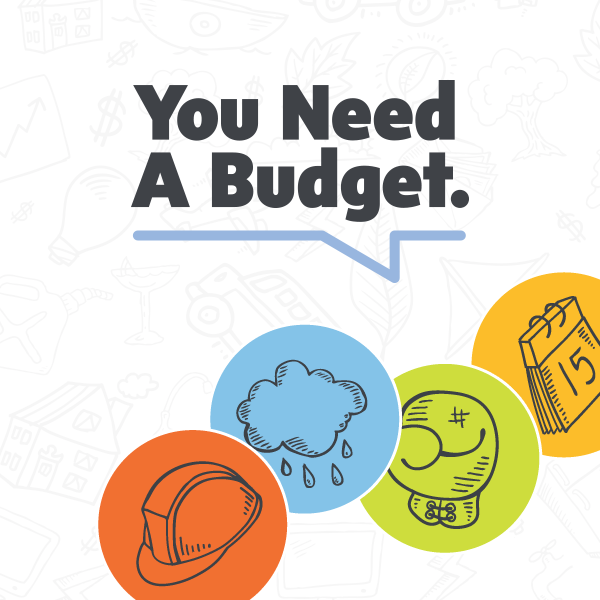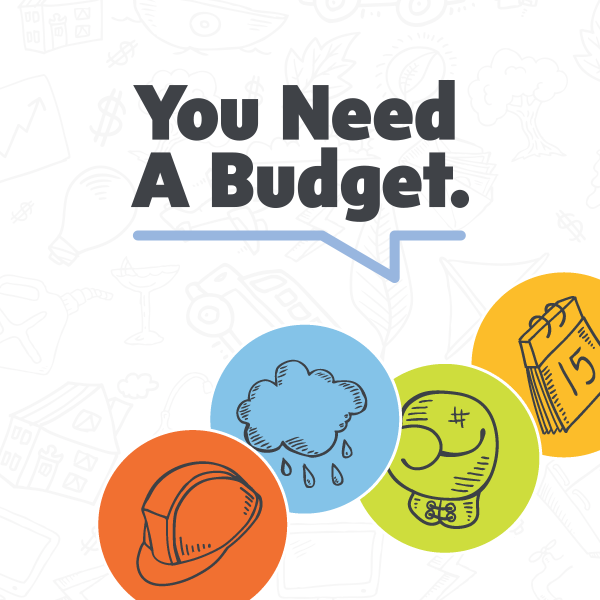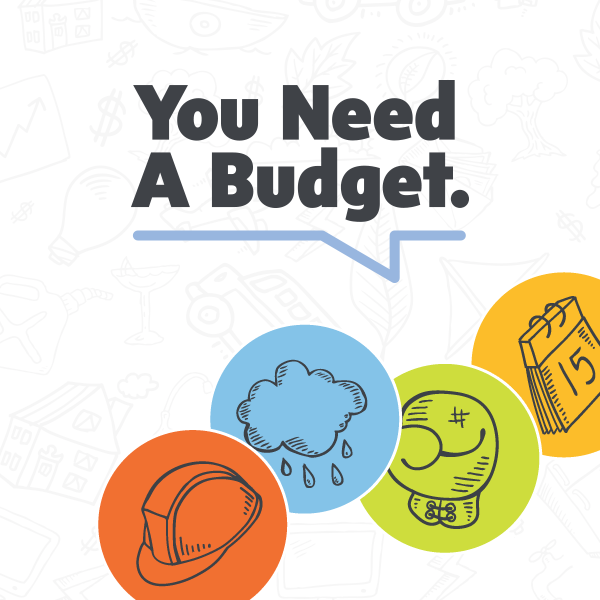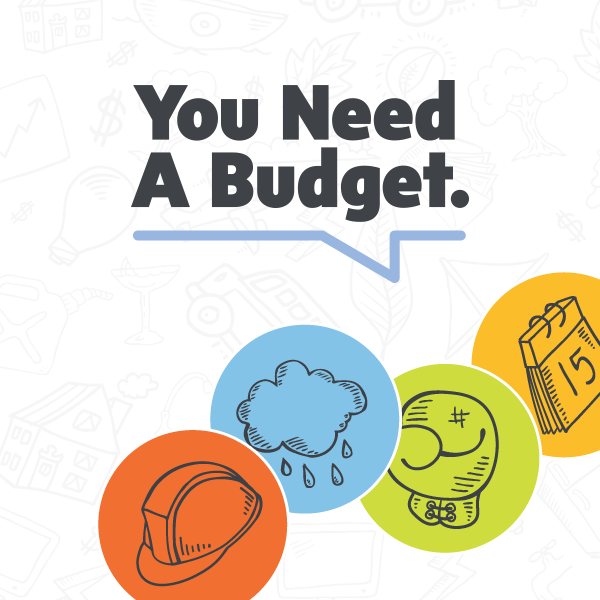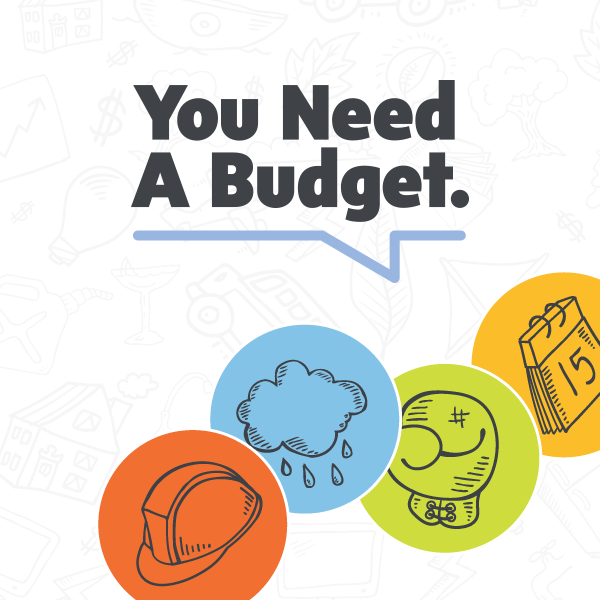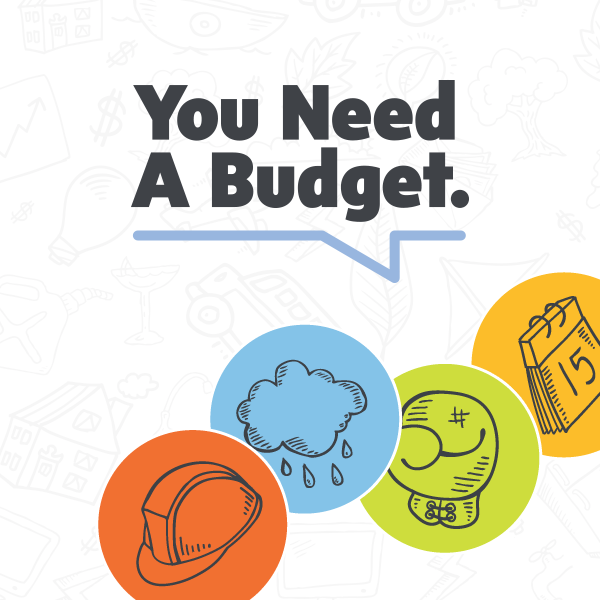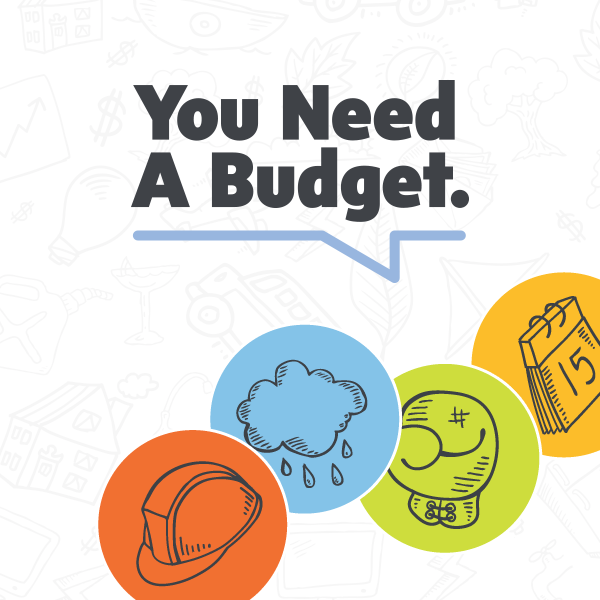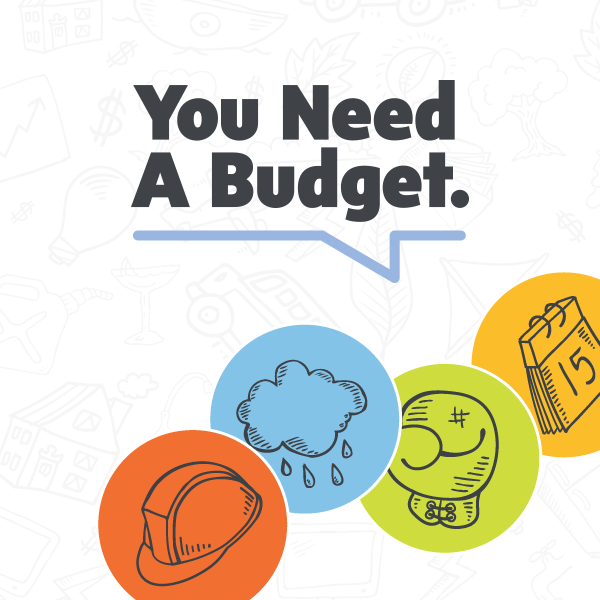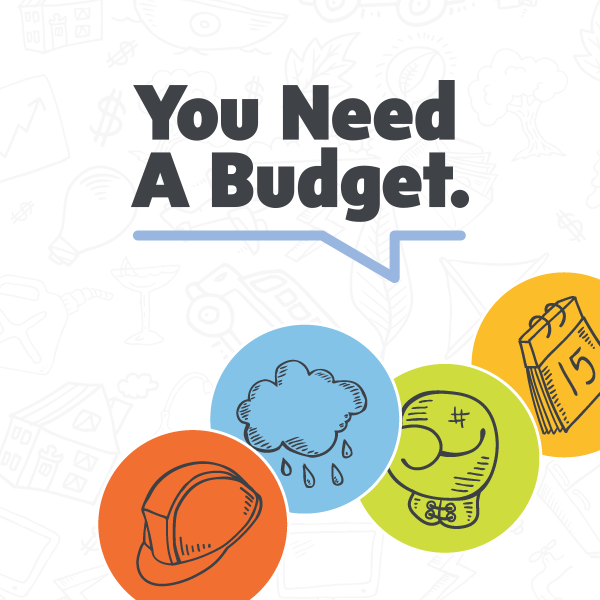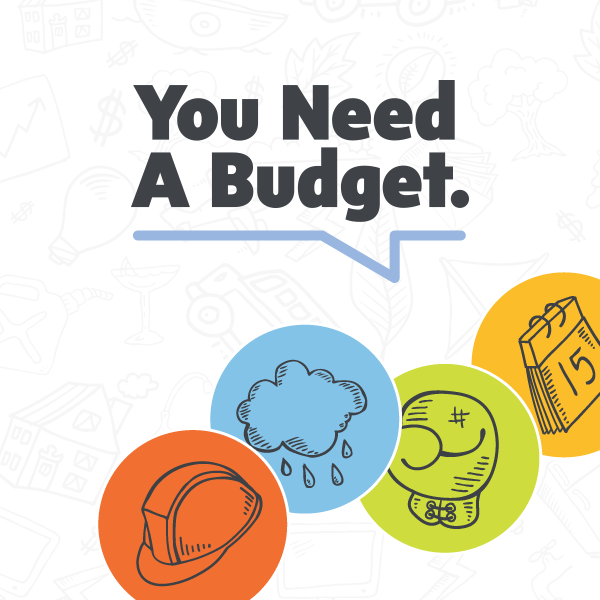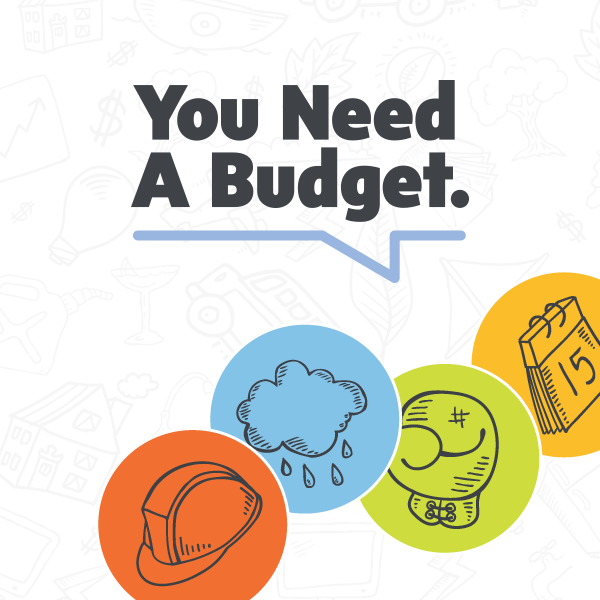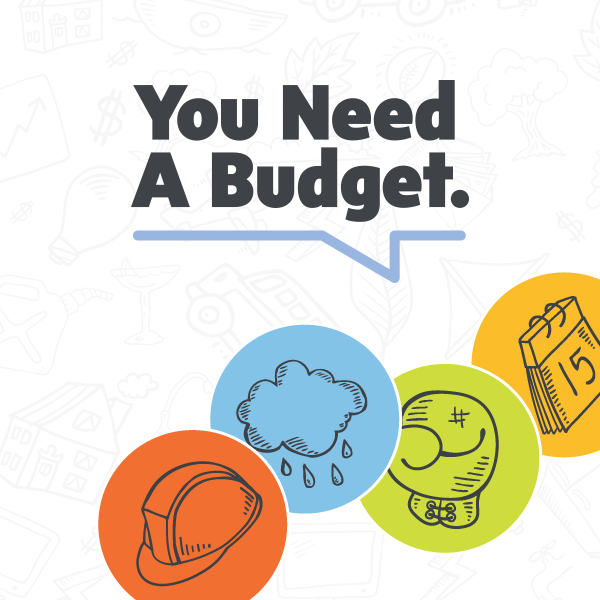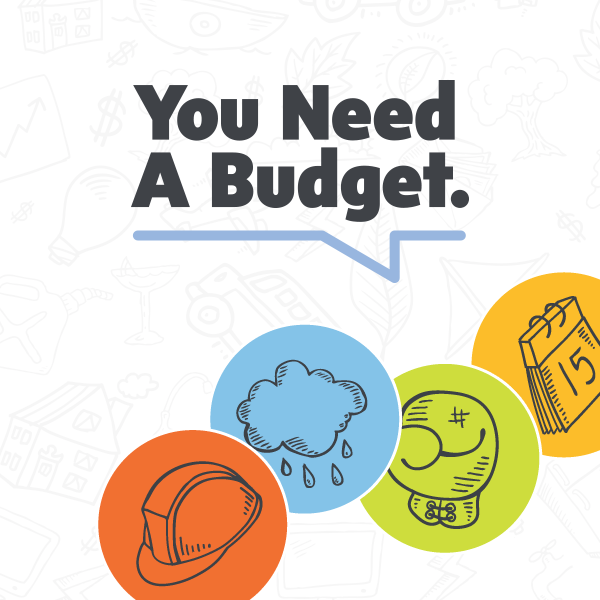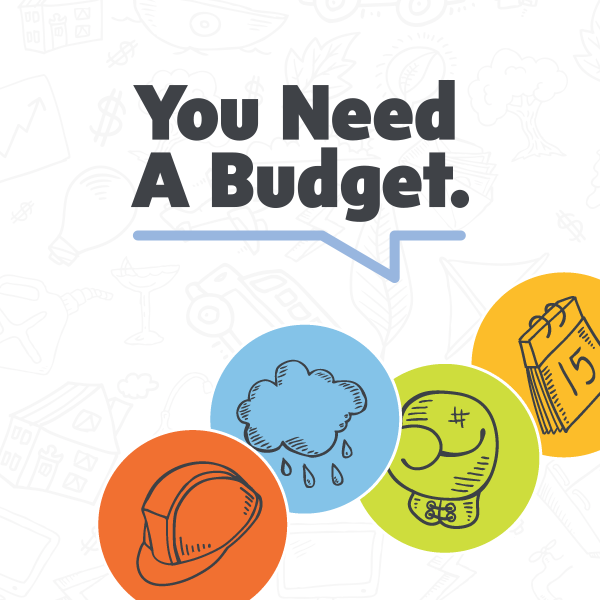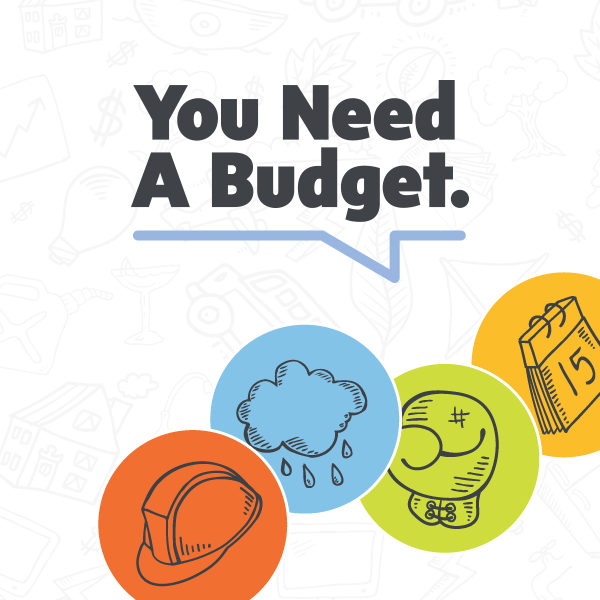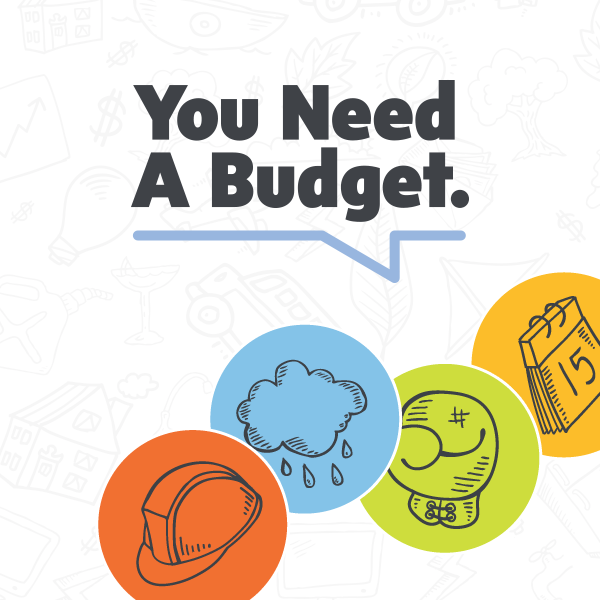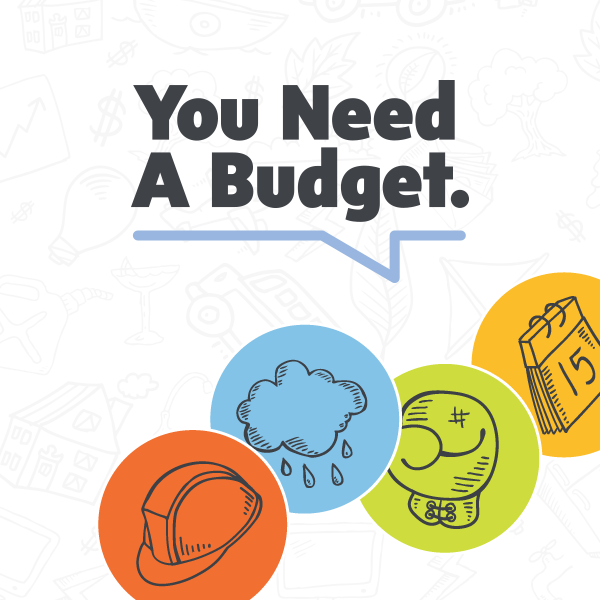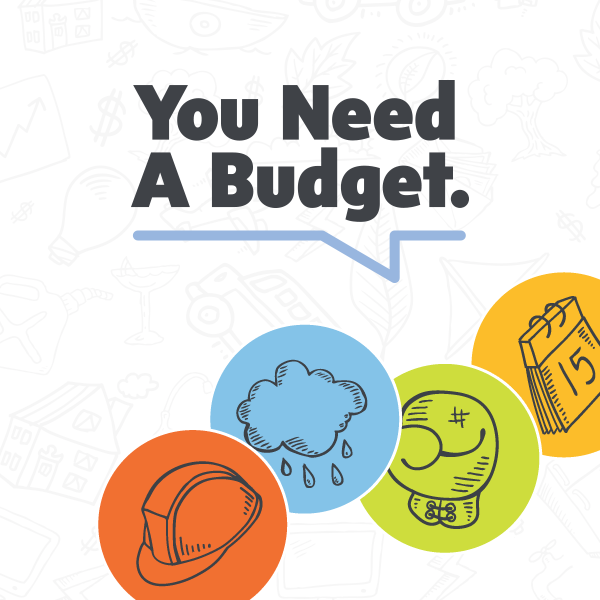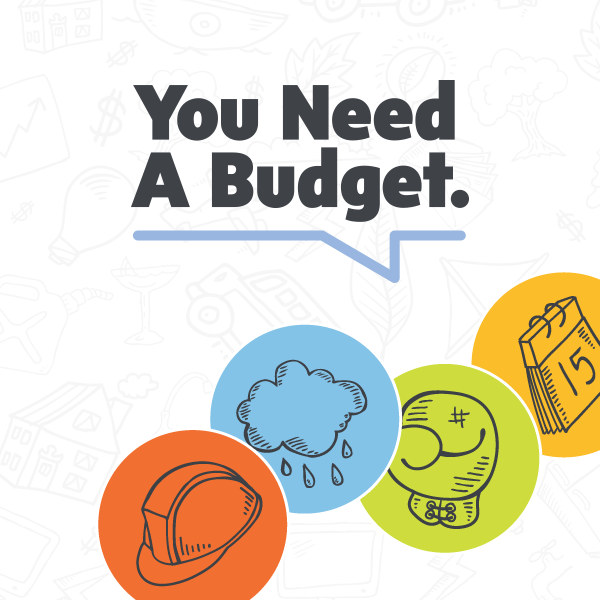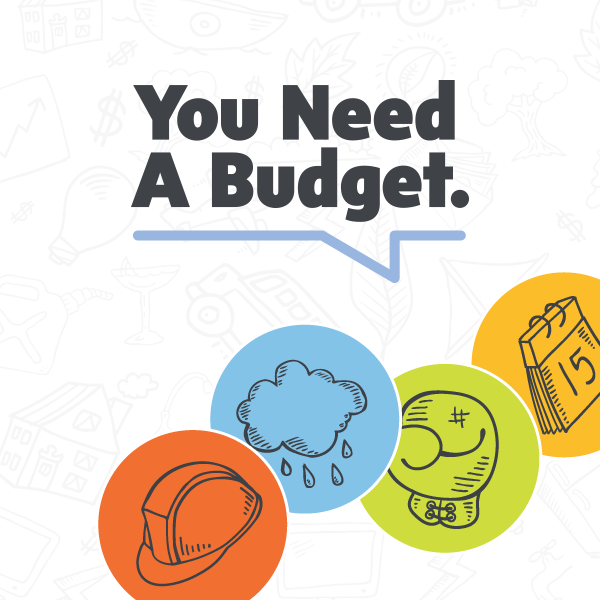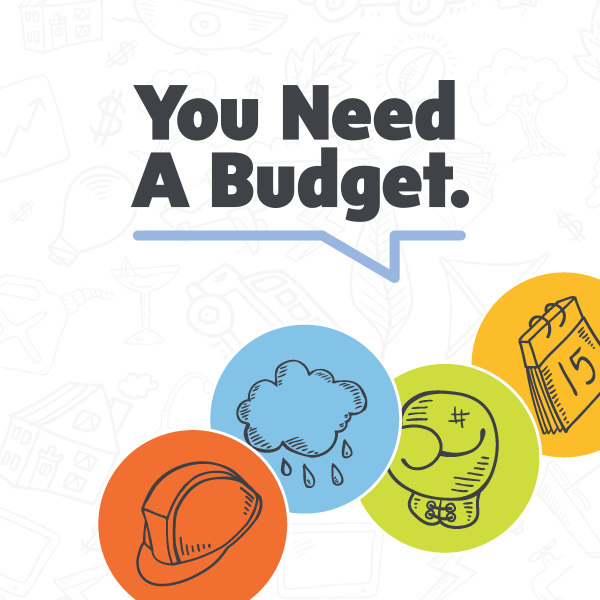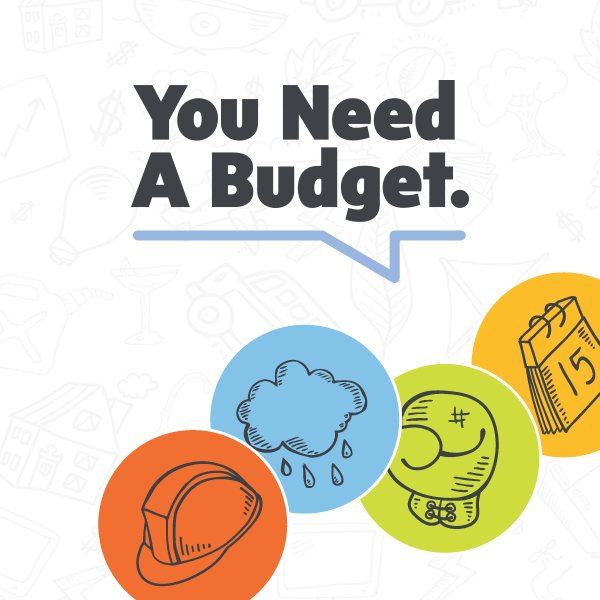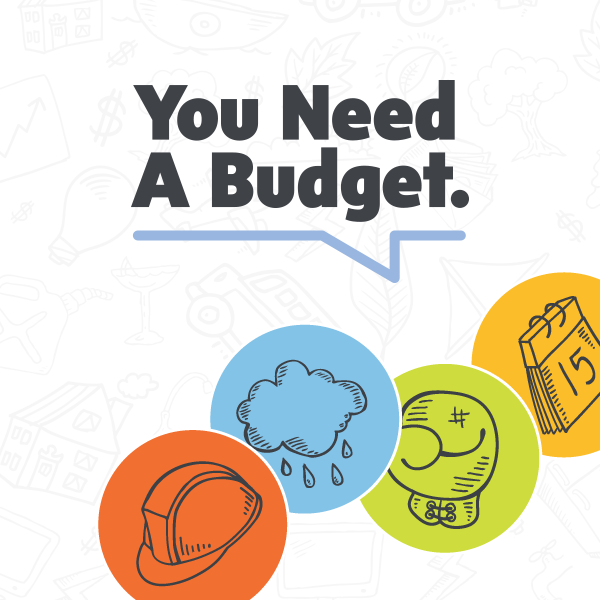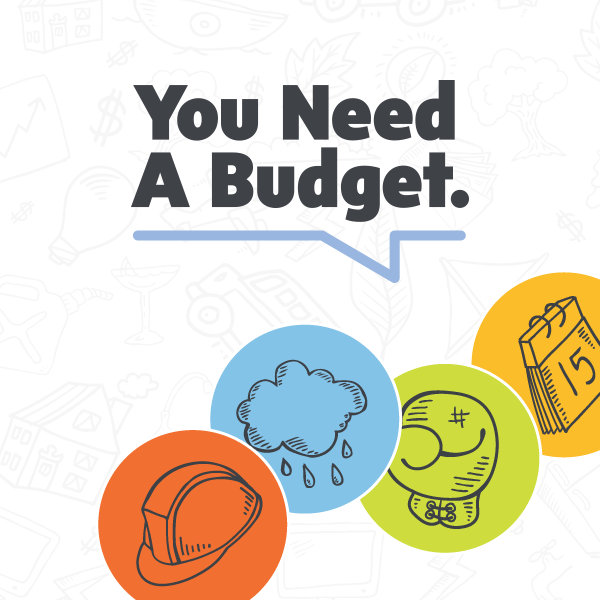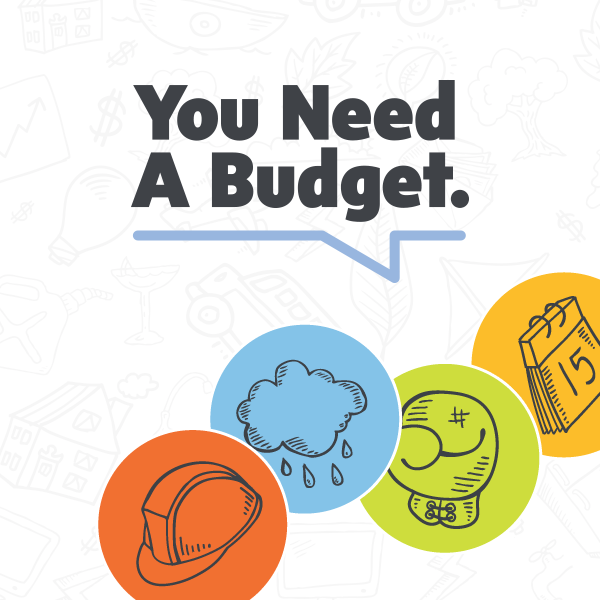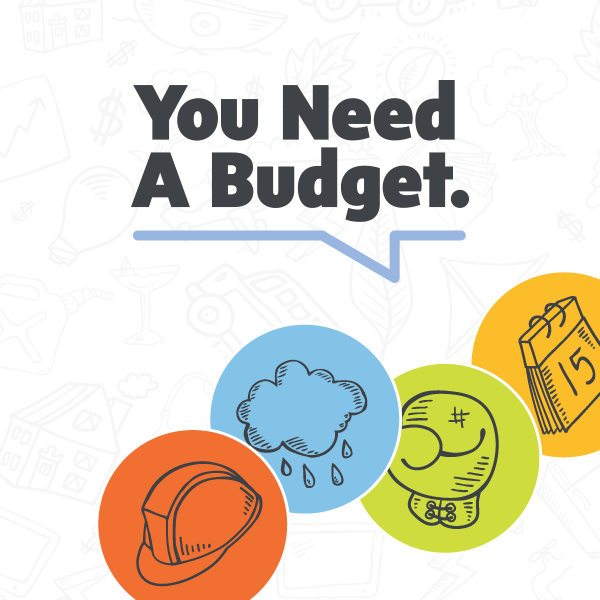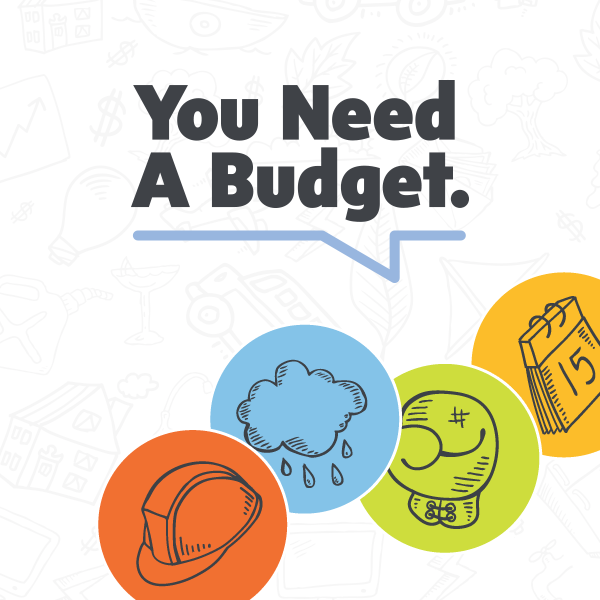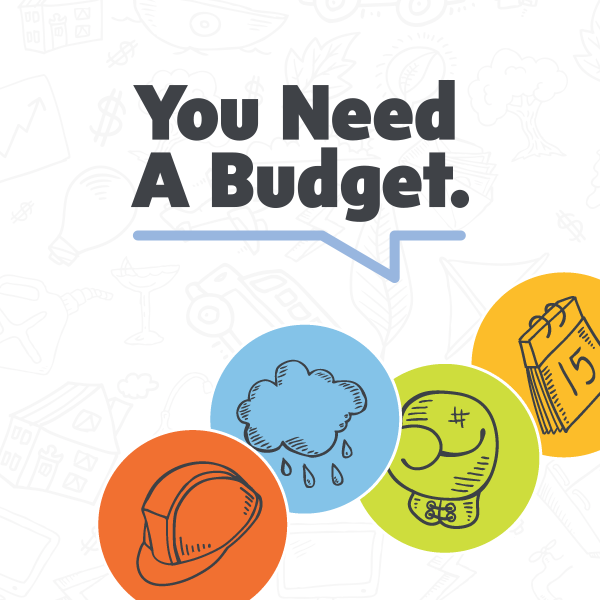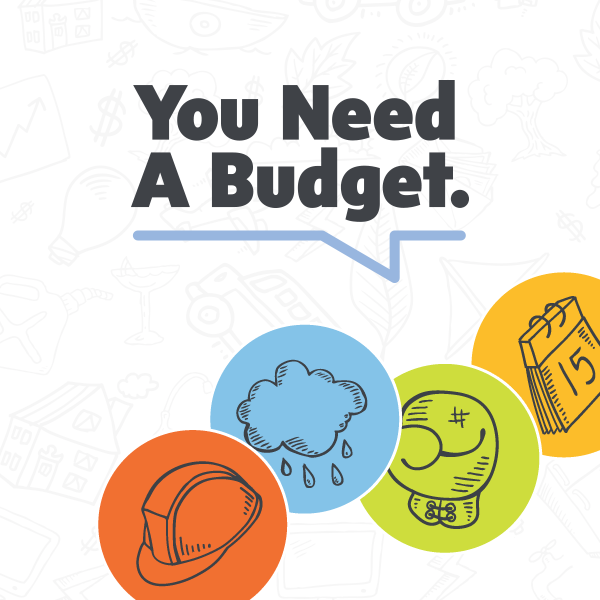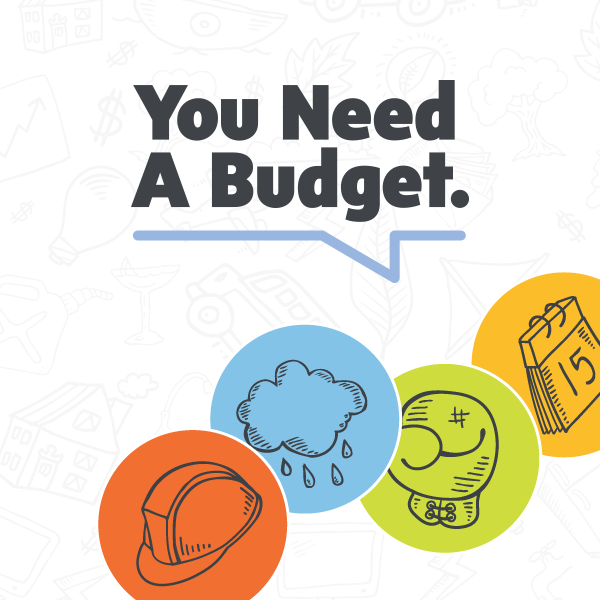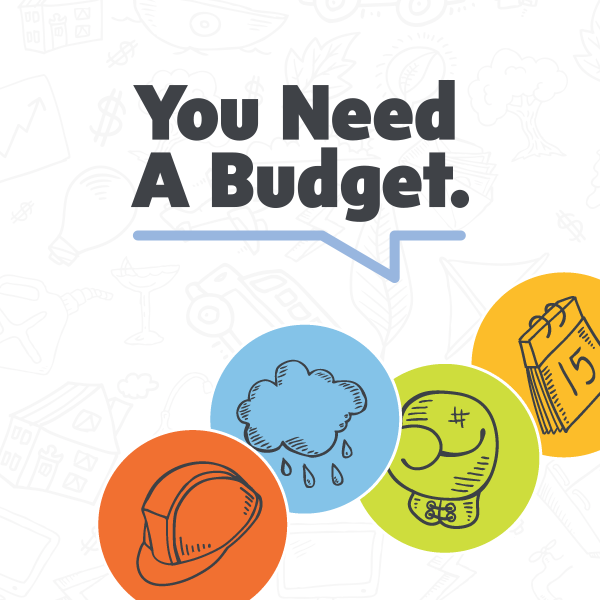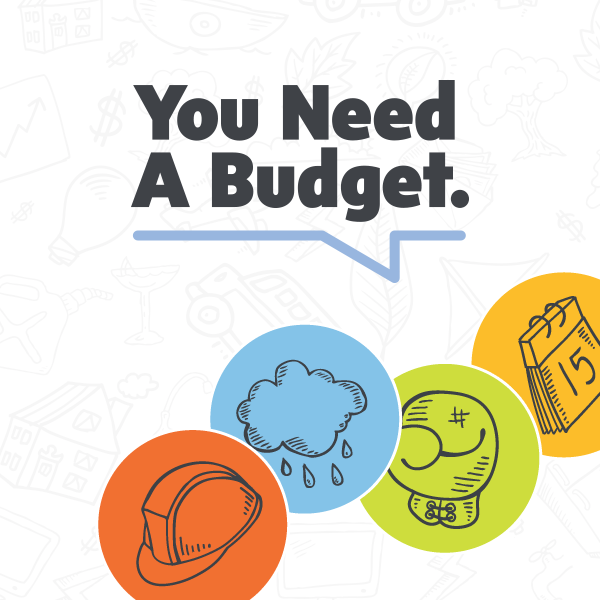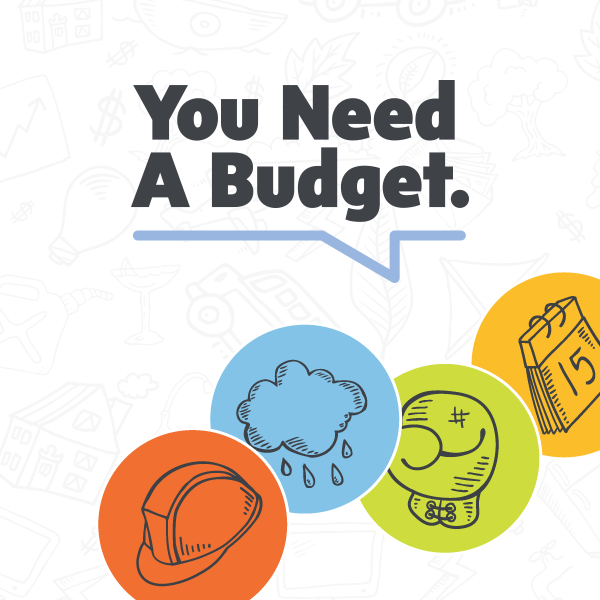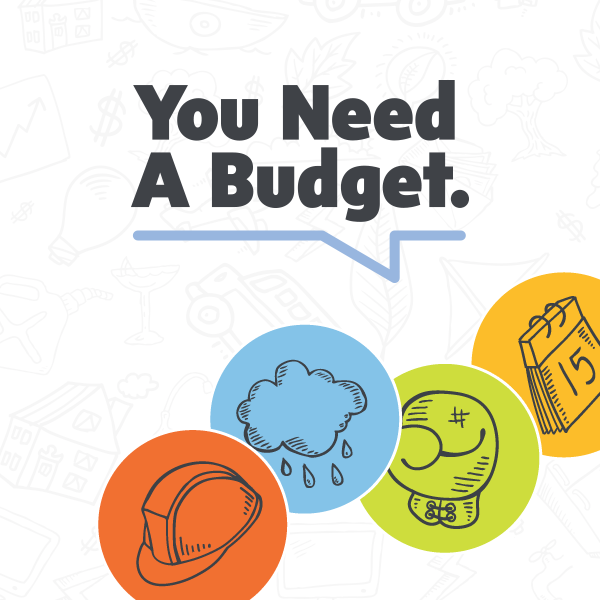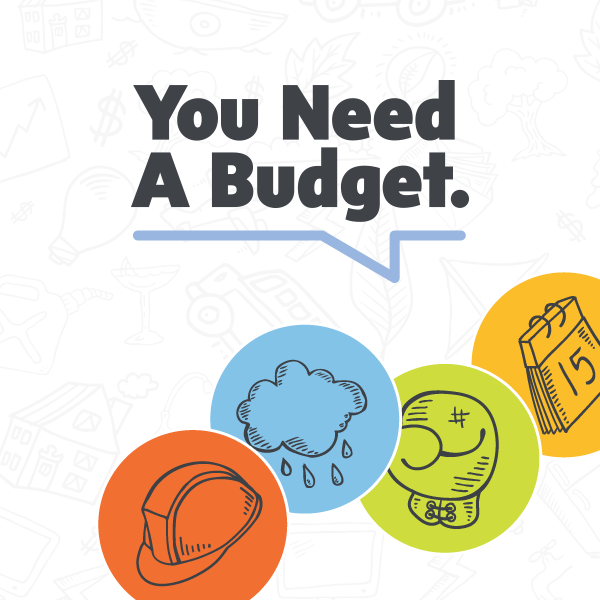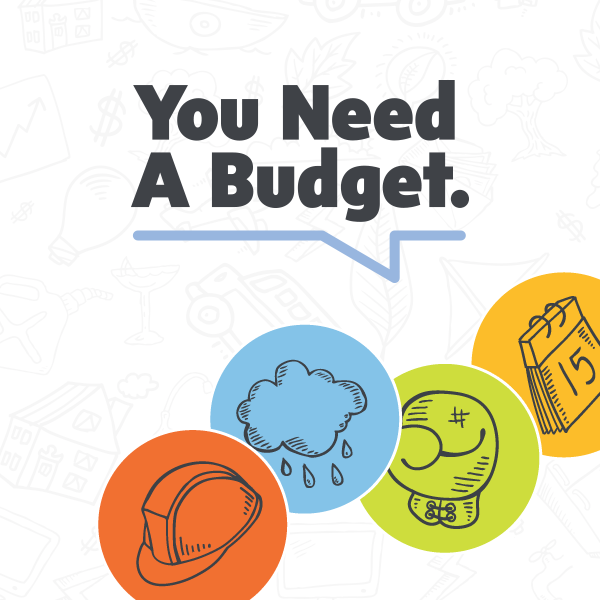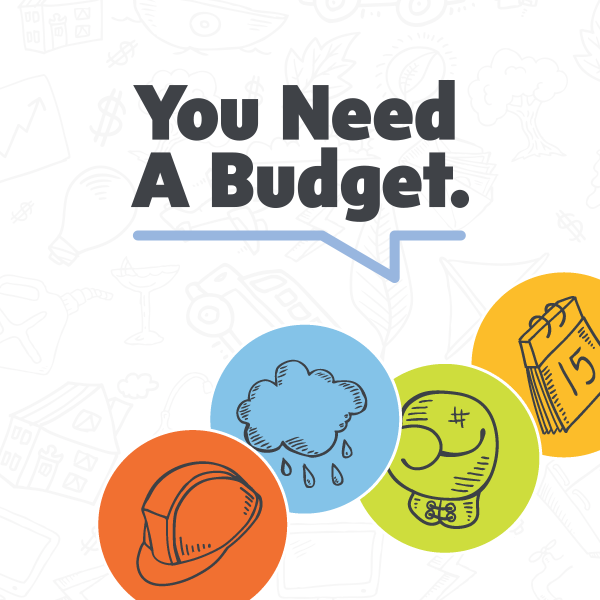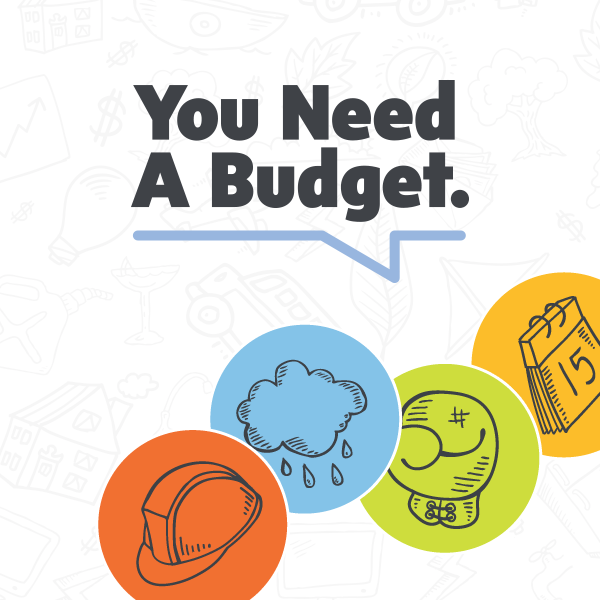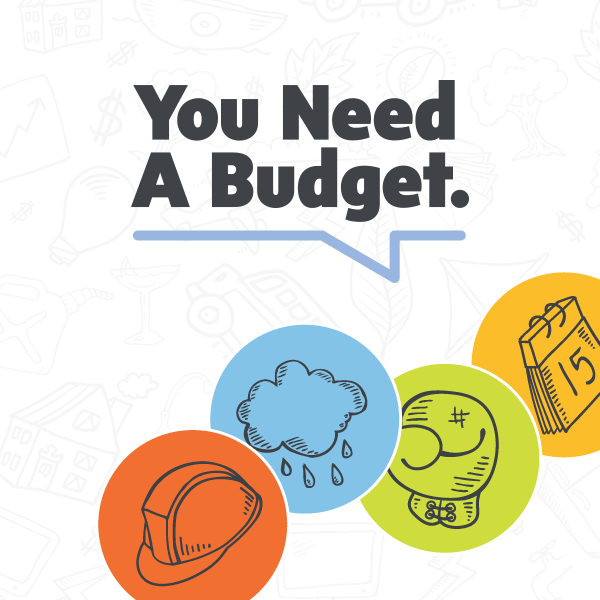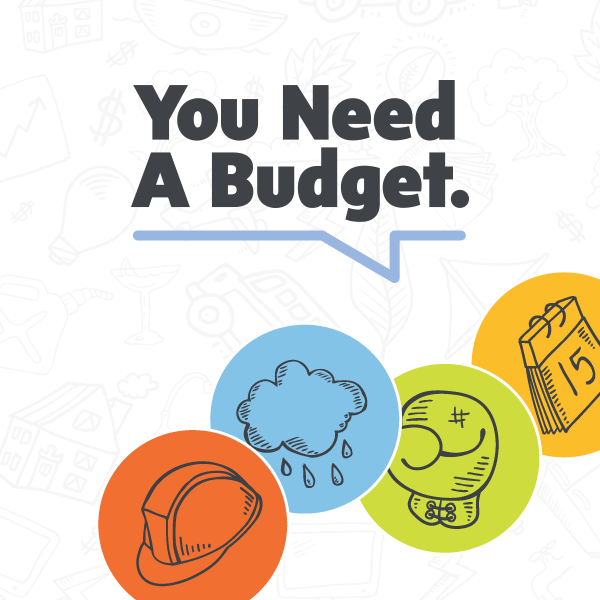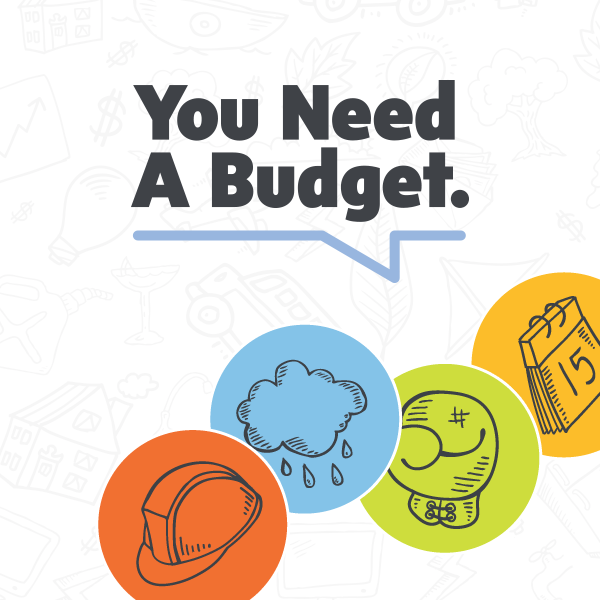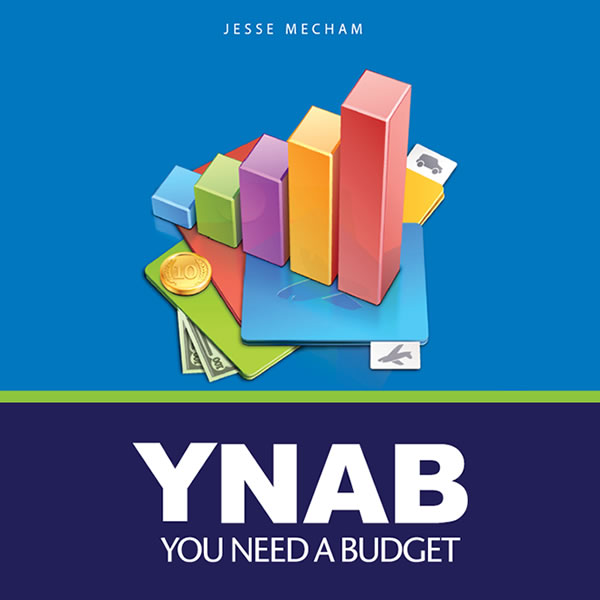You Need A Budget (YNAB)
A weekly dose of just the right medicine to help you get out of debt, save more money, and beat the paycheck to paycheck cycle.
Budgeting is spending; nothing more, nothing less.
Sign up for a free 34-day trial at www.youneedabudget.com
What does budgeting have to do with nutrition? A lot, actually, explains Kali Langevin, a nutritionist and Registered Dietitian who has spent 16 years working with athletes in United States Soccer Federation. Kali is also a long time YNAB user, and joins the podcast to explain how the Four Rules can be applied to nutrition. Much like Jesse encourages people to be mindful of their spending habits -- giving dollars jobs that accomplish the things that you value -- Kali encourages people to be mindful of their eating habits, being intentional with meal times and the rituals around food.
Kali on LinkedIn: https://www.linkedin.com/in/kalilangevin
Sign up for a free 34-day trial of YNAB at www.youneedabudget.com
This week's Money Story comes from the vivacious Diania Merriam, founder of the EconoMe Conference which brings together speakers in the FIRE movement (Financial Independence, Retire Early). After finding herself working for a decent salary in NYC but falling deeper into debt, Diania decided to pull her head out of the financial sand and figure out where her finances stood. Around the same time, a friend introduced her to the Mr. Money Mustache blog and the concept of FIRE.
Armed with these tools, she started cutting her expenses and aggressively paying off debt. Eventually, Diania managed to stash away 60% of her income, and pay off $30k of debt. Ever the life of the party, Diania attributes part of her success to realizing that her happiness lies in connecting with friends and shared experiences, not necessarily in spending money in exclusive clubs. After paying off her debt, she was also able to pursue her dream of hiking the Camino de Santiago in Spain.
Today Diania has reached CoastFI, having already saved enough to retire in the future at the standard age of 65 but still working, albeit at a more relaxed pace. Financial independence has allowed her to pursue more fulfilling work (like the EconoMe Conference) and engage in new adventures. This, she explains, is the real American Dream.
Optimal Finance Daily Podcast: https://oldpodcast.com/optimal-finance-daily-podcast/
EconoMe Conference: https://economeconference.com
Jesse chats with Geoff Woods, President of ProduKtive, the training company behind the bestselling book The ONE Thing by Gary Keller and Jay Papasan. After leaving a high-stress and ultimately unfulfilling job in medical device sales, Geoff set out to surround himself with successful mentors. Eventually Geoff found Gary Keller and Jay Papasan, and immersed himself in their philosophy of the "one thing," that is, the concept of relentlessly pursuing the single most impactful thing you can do in your day, and arranging your schedule to accomplish that thing first.
Geoff describes the one thing as a stack of dominoes. Accomplishing the one thing you can do first -- "can" is the operative word here, this task must be small and easily achievable today -- topples the first domino in the chain, which topples the next, and the next, and so forth. Most people never do the work to identify this one thing, however, and get stuck spending lots of time toppling individual dominoes without ever setting off this chain reaction.
The connection to budgeting is clear. Before you give every dollar a job, you need to know what it is your budget needs to do for you -- what you value, what you are trying to optimize for. Once you've identified this, you can assign your dollars jobs.
The ONE Thing Podcast: https://www.the1thing.com/podcasts/
Sign up for a free 34-day trial of YNAB at www.youneedabudget.com
Jesse attempts to give some advice on purchasing a car... before admitting that he has no advice to give! Well, maybe a bit of advice. Jesse reminds us that optimizing your budget involves optimizing for YOUR needs and wants. Jesse chooses to lease a Tesla to drive around in, because he wanted to have as little headaches with car maintenance as possible. That's important to him today, but ten years ago his needs and wants were totally different, and thus the things he chose to optimize his budget for were too.
So this episode is not about how to buy the most cost-effective used car, or how to get a good deal on a new car, or anything like that. It's about examining your own needs and shaping your budget around them.
Sign up for a free 34-day trial of YNAB at www.youneedabudget.com
Bestselling author Ian Morgan Cron introduces the Enneagram, a personality typing system which identifies nine different personality types, their motivations, strengths, and weaknesses. As Ian explains, understanding your enneagram can help you better understand your motivations for why you want to do the things you do, which has direct implications in budgeting. Understanding the motivations and perspectives of others, especially those with polar differences in personality, can help you mitigate conflict and reach compromise in your family relationships and in the workplace.
Ian Morgan Cron is a psychotherapist, Episcopal priest, and an accomplished author. His book The Road Back to You champions the Enneagram for people that seek to better "know thyself."
Jesse reminds us that the ideal budget... is the budget which helps you achieve your goals and values. And those goals and values can, and will, change over time!
Sign up for a free 34-day trial of YNAB at www.youneedabudget.com
Robert Leonard has been a uniquely driven person since a young age. Eyeing the professional ranks of motocross at age 14 (the minimum age to turn pro was 16), he competed all over the country. When his father discouraged his going pro, Robert started working various jobs and reading about investing. By the time he graduated college, he had already purchased his first piece of real estate and began "house hacking" -- leasing spare rooms to roommates to generate cash flow to cover the mortgage.
Over the years Robert has continued to house hack, selling properties and rolling the profits into the next investment. He now owns a portfolio of rental properties. On the side, he also invests in individual stocks as a value investor, and enjoys the process of digging through company financials and earnings to find undervalued companies to buy and hold.
Robert is also passionate about teaching other people how to get started with investing in both real estate and the stock market, and he hosts two podcasts on the topic. Check the links below to follow Robert, learn more about his philosophy, and his podcasts!
Robert on Instagram: https://www.instagram.com/therobertleonard/
Real Estate 101 Podcast: https://www.theinvestorspodcast.com/real-estate-101/
Millenial Investing Podcast: https://www.theinvestorspodcast.com/millennial-investing/
Sign up for a free 34-day trial of YNAB at www.youneedabudget.com
Sita Thomas is a woman of many talents, and many careers, having worked jobs ranging from massage therapy to data analytics. She has been using YNAB for over 8 years to help her reach her goals, including going back to school and making a career change, taking time off work to care for a terminally ill family member, and removing the day to day stresses of money from her life.
Sign up for a free 34-day trial of YNAB at www.youneedabudget.com
Jesse chats with professional coach and business strategist Kelsey Murphy about how she left a high profile -- yet unsatisfying -- corporate job to travel the world with her husband. During their travels Kelsey realized she had a gift for coaching and helping others put their visions and dreams into practice. Today she runs a successful coaching business doing just that.
Kelsey puts a lot of emphasis on her client's values, examining them through a very practical lens. What would you like to see or do first thing when you wake up in the morning? What kind of space do you imagine yourself working in? These are a couple of the questions Kelsey might ask. Once you understand your values in clear, tangible terms, then you can focus your attention on the important tasks that will bring you closer to your vision.
Learn more about Kelsey:
https://www.kelseymurphy.com/careerandlifecoaching
Whisky & Work Podcast:
https://www.kelseymurphy.com/podcast
Sign up for a free 34-day trial of YNAB at www.youneedabudget.com
Jesse answers your questions about small business in Q&A format. You can send Jesse your questions and comments at: podcast@youneedabudget.com
Sign up for a free 34-day trial of YNAB at www.youneedabudget.com
Jesse chats with Amir Salihefendic, CEO of Doist, the company behind the popular productivity tool Todoist. Between running a company and being a father, Amir has a very busy life. He explains how he keeps everything moving smoothly, including the importance of managing your energy throughout the day, not just your schedule.
Sign up for a free 34-day trial of YNAB at www.youneedabudget.com
Jesse chats with YNAB's manager of support hiring, Emma Rolls, about what it takes to get hired at YNAB, what type of person fits in with the company culture, and Emma's personal experience learning about YNAB and getting hired.
Sign up for a free 34-day trial of YNAB at www.youneedabudget.com
Jesse identifies four common traits in people who don't stress about money.
- They have a cadence for checking their money. These people regularly check-in with their budget and watch their money. It's not a panicky, reactionary review but a planned part of their week or month.
- They have regular conversations with themselves and/or significant others about money. These conversations are not highly charged, hostile engagements, but calm, rational discussions about what is going on day-to-day. Often these conversations aren't about money per se, but rather the things that the money is going towards. In that sense, the conversations are more about whether or not spending is happening in accordance with their values and goals.
- They have clarity about their priorities, values, and goals. They give their money a job, and know why they are spending.
- They have plenty of cash on hand.
Sign up for a free 34-day trial of YNAB at www.youneedabudget.com
Writer and entrepreneur Corbett Barr joins the podcast to discuss digital mindfulness, the pitfalls of social media and endless digital content, and his own quest to find peace as a digital creative.
Sign up for a free 34-day trial of YNAB at www.youneedabudget.com
Jesse interviews strength coach, former pro Strongman, and founder of Barbell Logic Online Coaching, Matt Reynolds, about the many analogs between strength training and budgeting.
Matt relates the Four Rules to the basic tenets of effective strength training -- consistency, small increases in weight each workout that add up to big results over time, and focusing on the things that will give you the greatest bang for your buck. Matt relates strength training to a "physical 401(k)," where the work that you do today to build you fitness and health can be drawn on later in life when the inevitabilities of aging and life events happen. Strong people are more resilient and more useful, especially in old age!
Matt's company, Barbell Logic Online Coaching, offers customized strength, conditioning, and nutrition coaching to individuals, pairing each trainee with their own highly trained Barbell Logic coach.
If you're interested in trying out Barbell Logic Online Coaching, you can get the first month totally free when you sign up. And, YNAB listeners can get an additional $10/mo off their future months. Sign up here:
https://store.barbell-logic.com/ynab/
Take the 34-day challenge:
https://www.youneedabudget.com/34dayreset/
If you've been doing the 34-Day Reset, you're in full sprint mode right now. And it might be tough! But the beauty of the reset is that it's just 34 days, and affords you some space to reflect on whether your money is working for you and helping you achieve your goals and values.
So stick with it, finish strong, and bask in the extra money you will have saved. You're almost there!
Take the challenge:
Jesse interviews Katie about her journey after college to Hawaii, where she went through a tough breakup and financially tenuous times. She persevered through those hard times, discovered YNAB (actually re-discovered, having first encountered YNAB in college) and began to get her budget back on track in a notoriously expensive state. The hard work paid off; Katie met her husband and was able to have a dream wedding in Hawaii, and the couple now enjoy a rich life... paid in cash!
Katie is quick to point out that she hasn't always made the financially optimal choice, but she is intentional about everything she does. She and her husband decided to hold off paying down their student loans in order to finance their wedding, for example. Katie has set aside money to buy her husband a new computer, and they leave room in their budget for their favorite hobbies and pursuits -- for Katie, her side business coaching women in personal finance and helping them avoid traps like MLM schemes; for her husband, collecting and competing in the Magic the Gathering card game.
While this approach may result in paying down debt slower, and not maximizing savings, it's a sustainable approach for them. As Katie reminds us, personal finance is personal!
Are you ready to take the challenge? https://www.youneedabudget.com/34dayreset/
Jesse offers three ways to stop spending money and kickstart your savings:
- Designate a "no spend" day. Pick a day of the week where you will deliberately spend NO money, and dutifully stick to that. Be realistic! If you usually have a date night on Friday, then pick another day. Maybe's it's a Tuesday, maybe it's a Sunday, but it should work with your schedule.
- Treat your savings as a purchase. In other words, change your mindset about what spending is. Instead of buying a good or service, treat your saving as "buying investments" or "buying back your debt." Some people turn buying small numbers of shares in an index fund into a game, where their investment brings them pleasure just like buying a coffee or a croissant at the local coffee shop.
- Identify your triggers. Pay attention when you have an impulse to buy something. Does it happen in certain places? Certain websites or forums? Perhaps on your way home from work? Find your spending "triggers," and work on ways to avoid them. Take a different route home, block or limit your access to certain websites... things you can do to help you avoid the impulse in the first place.
Are you ready for a financial reset?
Jesse talks with YNAB'er Liz about her recent conversion to the YNAB software, which she discovered through the social media network Tik Tok. In just six months with YNAB, Liz has already reversed her financial situation, paid off debt, and created financial security for her family.
Are you ready to take the challenge? https://www.youneedabudget.com/34dayreset/
Just like weight loss, there are some people who manage to pay off their debt through a burst of willpower and concerted effort... only to fall into debt again, usually slowly. Jesse points out that often this is a failure to follow Rule Two (Embracing Your True Expenses), and discusses how you can prevent slipping into old habits in the New Year.
Are you ready for a financial reset?
YNAB is bringing back the Debt Stories... but this time we're calling it "Money Stories." In this series, Jesse interviews YNAB users about their incredible stories using YNAB to pay off debt, plan for life, build their savings, and more.
In this episode, Jesse interviews 34-year old nurse Trish. Though very hard working and driven to succeed, Trish found herself in $50,000 of debt despite working multiple jobs. Her unusual work arrangement meant that she went long periods of time between paychecks -- sometimes receiving multiple paychecks at once, months apart -- during which time she began relying on credit cards to ensure she had enough money to cover emergencies and unexpected expenses.
The credit card balance continued to climb, however, and, when combined with her car note and student loans, the monthly payments began eating up a large portion of her cashflow. Fed up, Trish decided to make some changes.
Focusing her energy and work ethic on her money, Trish decided to make drastic moves to pay down her debt for good. She began by selling nearly everything she could in her flat on Facebook, netting nearly $3,000. In addition to her two or three regular jobs (besides nursing, she teaches at a university and works as a technician for a pottery studio), she took small jobs whenever she could: transcribing, dog walking, etc. It was an intense experience, and she knew she could not sustain it long term, but harnessing her energy in these bursts jumpstarted her savings.
Are you ready to take the challenge? https://www.youneedabudget.com/34dayreset/
Jesse issues a New Years' challenge for YNAB'ers. For the next 34 days, abide by just three rules:
- Write down every single thing you spend money on. You can do this in YNAB, or on a sheet of paper, but it must include every penny spent!
- Purchase ONLY essentials. Essential means you must have it to live.
- Do not eat out, or order take-in from restaurants. No restaurant spending, full stop. It's only 34 days, you can do it!
YNAB's data and experience has shown that people often find hundreds, even a thousand, extra dollars in their budget by doing these three things. In particular, eating out has proven to be the number one most common drain on the budget.
Remember, this is only for a short time! It's a small amount of hardship to endure, that can provide a major boost your savings and financial health to start the New Year.
Start the reset today: https://www.youneedabudget.com/34dayreset/
Jesse reflects on budgeting for the Christmas season. While YNAB is all for getting your savings in order so that you can cash flow your Christmas spending without going into debt, the holiday season is about much more than presents. Recalling his childhood, Jesse can't actually remember much about the gifts he received. What he does remember is the time he spent with family, and the memories he made with them.
Sign up for a free 34-day trial of YNAB at www.youneedabudget.com
Jesse interviews his friend and realtor Terry Bickmore about Terry's introduction to YNAB and how it helped transform his business and personal life. Terry offers some advice for first-time homebuyers, based on YNAB's Four Rules.
Sign up for a free 34-day trial of YNAB at www.youneedabudget.com
Jesse reflects on learning to relax about spending money, especially on the "black box" line items -- unspecified purchases from Amazon that don't fit neatly into any other category, or purchases that he simply doesn't want to look up and re-categorize. Part of learning to relax about these expenditures is realizing that as long as you are achieving your primary goals -- funding an emergency fund, saving for retirement, saving for a house perhaps -- then it doesn't really matter what happens to the rest of your money. It's another way of looking at the big picture.
Sign up for a free 34-day trial of YNAB at www.youneedabudget.com
The end of the year is nigh, and 2020 has been one of the most stressful in recent memory. Jesse offers some advice for those dealing with fear and anxiety during these times.
During times of fear and uncertainty, Jesse draws on Stephen R. Covey's seminal book The 7 Habits of Highly Effective People. The first habit is to be proactive and take responsibility for your reactions to events. To that end, Covey asks readers to consider their circle of influence -- What do you control? Where do you not have control? Drawing a very clear picture of your circle of influence, and defining what you don't control, can help with realizing what things you ought to be fear and what things are outside your influence, and thus should be outside your concern (or at least unworthy of spending mental bandwidth on). When people start budgeting, they often can't control what they make, but they can control some of things they spend on. So focusing on spending, giving their money a job, and following the four steps brings their attention to concrete, actionable things within their circle of influence.
Secondly, Jesse recommends learning more about the things you are fearful of. What information could you gather about a topic that would help you better understand it? If you are fearful about money, how about understanding how much you have in your checking account right now? Then take another step. What does that money need to do between now and the next time you get paid? Gathering data points and information about the things causing you fear and anxiety can help make them seem more manageable.
Sign up for a free 34-day trial of YNAB at www.youneedabudget.com
Jesse and Taylor Brown, YNAB's Chief Technology Officer, celebrate the company being named Fortune's #1 Best Place to Work in Small Business in 2020. Jesse and Taylor take a walk down memory lane, reminiscing about the very early days of YNAB and how they much they've grown since, both as a company and as leaders within the business. The moniker "best place to work" doesn't just happen, but rather is a consequence of Jesse and Taylor's work in defining their company and employee values and consistently acting on those principles over the years.
Of course winning this honor is due to the work of everyone at YNAB, especially the operations team (lead by COO Chance Gurr) whose responsibility is making sure YNAB is a rewarding place to work. So, Jesse and Taylor wish to thank everyone at YNAB for their hard work and for embodying the company's values every day.
Sign up for a free 34-day trial of YNAB at www.youneedabudget.com
Jesse sits down with acclaimed finance writer and entrepreneur Ramit Sethi for a long chat about the mindset of financial success, how to think like an entrepreneur, and why the most important question about personal finance you need to be able to answer is... "Why?".
Ramit is the author of the 2009 New York Times Best Seller, I Will Teach You to Be Rich, and the founder of Earnable, a community of entrepreneurs in which he coaches people how to think like entrepreneurs, develop viable business ventures, and market effectively to grow their business.
Sign up for a free 34-day trial of YNAB at www.youneedabudget.com
Jesse interviews wellness expert, educator, and entrepreneur Robyn Conley Downs about applying her strategies for wellness to making lasting change in budgeting.
You can find Robyn here:
Real Food Whole Life: https://realfoodwholelife.com/about/
Sign up for a free 34-day trial of YNAB at www.youneedabudget.com
In the world of cost accounting, there's a concept known as contribution margin. Basically, it's how much you make on a product or service after you consider how much it cost to make that thing. The formula is revenue less the variable costs that go into making the product. Contribution margin is an important metric for businesses because it tells you whether you are making a profit on the things you sell. After all, it would do no good to sell a bunch of t-shirts for $18 a piece, if each of them costs you $20 to make!
Now, Jesse asks, what if we apply this concept to our life? We have jobs that earn us revenue. What do they cost to do? Time, obviously, but perhaps also driving/commuting, stress? The point is, the things that earn us money have a non-zero cost associated with them, and it's wise to keep track of that cost and make sure, at the end of the day, that we are using our time in a profitable manner.
Sign up for a free 34-day trial of YNAB at www.youneedabudget.com
It's not a dirty word, so let's say it together -- wealth! At YNAB, we often use the words "save money," and it's a more approachable concept, something that seems achievable in the short term. Wealth can seem like such a far-off concept sometimes. But at the end of the day, that's what we're all trying to do, is to build wealth that will allow us to do more of what we want to do in life.
Sign up for a free 34-day trial of YNAB at www.youneedabudget.com
While canning tomatoes from a bumper crop, Jesse realized the process was going to take a looooooong time. His wife advised him, simply, to "just settle in." Anything that yields great results in the future takes both upfront effort and perseverance. Whether it's gardening, putting up vegetables for the winter, or budgeting, you have to settle in.
Sign up for a free 34-day trial of YNAB at www.youneedabudget.com
Jesse lays out a strategy for managing unknown expenses without continually dipping into your emergency fund. Traditional budgeting advice tells you to create an emergency fund for dealing with unforeseen expenses, but often people end up using their emergency funds for irregular, but foreseeable expenses -- things like new tires, new cars, A/C repair, etc. They don't happen regularly, maybe only every several years, but if you look into the future you know they are coming.
For YNAB'ers that are following Rule #2, Embracing Your True Expenses, these aren't true emergencies, and they are already covered in the budget. In the rare event of a true emergency that catches you off guard, Jesse recommends that rather than spending money out of your global emergency fund, set up a new category for that expense. Maybe it's a house repair that you had never encountered before. Make a new category for that type of repair, and start a new sinking fund for it like you do for other Rule #2 expenses.
Over time, this strategy will give you useful data about your true expenses, so that you can be more prepared for next time.
Sign up for a free 34-day trial of YNAB at www.youneedabudget.com
Jesse tackles the defeatist attitude some people develop that they are just no good with money. As they say, comparison is the thief of joy, and we should add, it's very misleading when it comes to money! Watching what other people do with their money isn't particularly helpful or relevant to your own situation.
Bottom line, being smart with your money simply means knowing what you want your money to do, and allowing it do that for you. This is something anyone can do!
Sign up for a free 34-day trial of YNAB at www.youneedabudget.com
Recently someone asked Jesse about his thoughts on preventing lifestyle creep, a major supposed gremlin of budgeting. Jesse doesn't even like the question, and discusses why worrying about lifestyle creep is looking at budgeting in the wrong light.
Sign up for a free 34-day trial of YNAB at www.youneedabudget.com
Recently Jesse received an email from a woman who claimed YNAB was really a program about mindfulness... just using money and budgeting as the entry point. So Jesse invited this woman onto the podcast to talk about the connection between mindfulness, meditation, and money. Welcome to Kathleen Slattery-Moschkau, a mindfulness expert, yoga instructor, and filmmaker currently residing in Madison, WI where she runs The Studio.
The Studio: https://www.thestudiomadison.com/about-us-2/
Sign up for a free 34-day trial of YNAB at www.youneedabudget.com
Let's face it, it feels good to buy things. That's not necessarily a bad thing, either. Spending on hobbies or other things that bring you value -- maybe a date with your partner -- makes you feel good for a good reason.
However, from time to time we need to check the rationale behind our purchases. Maybe you intend to start a new exercise regime, so you buy new shoes and clothes and perhaps a new journal as well to document your progress. But have you actually started the program yet?
Often simply purchasing something related to your goals can make you feel like you've made progress.... when, unfortunately, that's not really the case! Jesse calls these "progress purchases," and warns you to watch out for them!
Sign up for a free 34-day trial of YNAB at www.youneedabudget.com
We're all familiar with the situation. A person reads a book, learns a new skill, or discovers a method, and gets REALLY INTO IT. Brimming with enthusiasm, they share it with their partner and try to get them involved, only to be met by reluctance and intransigence. The reluctant partner is a common trope, even when it comes budgeting!
The idea that your partner is dragging their feet because they don't share your goals about budgeting and personal finance, however, is a false one. In Jesse's and the YNAB team's experience, the reluctant partner is often simply overwhelmed. They usually want to share the goals and aspirations of their partner, and share in the process of attaining them, but the speed and intensity of the habit changes may be too much.
So if you're just getting into YNAB, break it gently to your partner. Talk about your goals, get on the same page about your finances, then start talking about the process of getting there. Small steps are the key to change!
Sign up for a free 34-day trial of YNAB at www.youneedabudget.com
By popular request, Jesse flips through his office bookshelves and discusses the books he's read recently... and, well, some that he hasn't but is getting around to!
This week he covers books in the “business” category, ranging from marketing, advertising, management theory, team building, and customer service. Many of these books have had an influence on the way YNAB operates and its success.
Sign up for a free 34-day trial of YNAB at www.youneedabudget.com
By popular request, Jesse scans though his office bookshelf and discusses the books he's read recently... and, well, some that he hasn't but is getting around to!
This week he covers books in the "general" category, basically anything that isn't specifically about business. Next week he will cover the books on his business shelf.
Sign up for a free 34-day trial of YNAB at www.youneedabudget.com
Jesse interviews a YNAB'er, nurse practitioner Naseema, about how she used YNAB and the four rules to pay off an extraordinary $200k of debt in just under two years, all while going through some tough life transitions.
Sign up for a free 34-day trial of YNAB at www.youneedabudget.com
YNAB'er Elizabeth wrote into the podcast asking for clarification of Rule Three -- can you use it too often?
Simply put, If you aren't reaching your goals, Jesse says, you're misusing Rule Three. If you aren't saving the money you thing you should be saving, then Rule Three has become an escape hatch for your budget, instead of an empowering tool.
Scarcity is a powerful motivator for budgeting. Embracing the fact that you have limited dollars, and that you cannot rob from your future self to pay unexpected expenses today, means you will have to become comfortable saying "no."
If you'd like to write into the show, email Jesse your questions at podcast@youneedabudget.com.
Sign up for a free 34-day trial of YNAB at www.youneedabudget.com
With everything that has transpired this year, we could all use some positive news. Today Jesse highlights a couple of positive stories from YNAB users who have managed to save money and stabilize their financial situation despite job loss and salary cuts due to COVID.
Follow the four rules, and things will get better. Budgeting isn't the end-all-be-all, it's not the solution for everything, but it will help you make your financial situation better. Budgeting simply works!
Sign up for a free 34-day trial of YNAB at www.youneedabudget.com
In light of the terrible events that have transpired in 2020, YNAB is launching a new initiative to help those in need. YNAB is partnering with non-profit organizations that work with marginalized communities on personal financial and financial resource issues. YNAB is offering licenses for its software for free to these non-profits, so those in need can benefit from YNAB's powerful budgeting tools.
If you work for a non-profit or know of one who could benefit from this program, visit https://www.youneedabudget.com/good for more details and how to sign up for the program.
Jesse wraps up the Atomic Budgeting series, based on the ideas in James Clear’s book Atomic Habits, with a look into how our environment shapes our decision making.
The world is awash in advertisements — billboards, store displays, TV, YouTube, etc — which aim to subtly influence us to buy products and services. It’s hard to avoid them, especially when you spend time in areas or websites where targeted ads can pique your interests and potentially cause you to buy things you otherwise wouldn’t have sought out. Even our social groups can influence our purchasing decisions. Whether your friends and neighbors are conspicuous spenders or frugal, their collective habits will become the normal behavior in your social circle.
So the last step in “atomic budgeting” is to be aware of your environment, and choose your friends and social circles wisely.
“Join a community where the normal behavior is the behavior you want.”
Sign up for a free 34-day trial of YNAB at www.youneedabudget.com
Jesse discusses James Clear's "laws" of how people make lasting changes to their behaviors and how they might apply to the YNAB'er looking to improve their budgeting habits.
Sign up for a free 34-day trial of YNAB at www.youneedabudget.com
In the third installment of the atomic budgeting series, in which Jesse applies the principles in James Clear's book Atomic Habits to budgeting and personal finance, Jesse discusses the concept of becoming the person who has the traits you wish to have.
Typically when we think of making personal change, we set goals and then a process to achieve that goal. Yet, once we achieve the goal (if we do), does the change we made to achieve it continue on? Are the new habits long-lasting, or do we revert to our old ways? Too often, the latter proves true!
As Clear says, "every action you take is a vote for the type of person you wish to become." If you want to become a person who is smart with money, who is rarely stressed with financial concerns, and budgets with ease... then you must start identifying yourself as that type of person. Then prove it with your actions.
If you're a weightlifter, you lift weights. If you're a writer, you write. You cannot be the person you claim to be without doing the things that type of person does. Budgeting is no different!
Sign up for a free 34-day trial of YNAB at www.youneedabudget.com
Jesse continues with part two of the Atomic Budgeting series, applying the concepts in James Clear's Atomic Habits to budgeting and the pursuit of financial freedom.
One of the key concepts in Clear's book is focusing on building effective systems for achieving your goals, rather than on the goal itself. Goals are great things, but without a logical, replicable, and flexible system, you are unlikely to consistently achieve your goals.
YNAB's Four Rules comprise a simple, flexible, and replicable system for achieving the goal of freeing up financial resources to handle unexpected events and do more of the things you want to do in life. The Four Rules don't ask you to come up with a solid number of dollars to save each month, or a percentage; rather, they ask you to follow certain processes (like giving every dollar a job) that ultimately help you achieve the goal of saving money. By staying process-focused rather than goal or number focused, YNAB allows you "roll with the punches" and adjust as your life circumstances change and unexpected expenses arise.
So whether it's budgeting, improving your fitness, reading books, or something else, the next time you set a goal focus your attention on your system for achieving that goal, and learn to love the process!
Sign up for a free 34-day trial of YNAB at www.youneedabudget.com
Jesse has become a fan of James Clear's Atomic Habits, in which Clear explains how small changes to your habits can build up to big changes in your life. Naturally, Jesse saw how atomic habits could work for budgeting too.
So for the next few weeks, Jesse will be covering several aspects of "atomic budgeting," starting with the power of compounding interest.
Atomic Habits by James Clear:
Sign up for a free 34-day trial of YNAB at www.youneedabudget.com
Jesse and the YNAB team are excited to announce a new service: financial wellness for businesses and their employees! For any company, big or small, YNAB will educate your employees on the most important yet often overlooked aspect of financial wellbeing… budgeting of course.
Financially stress-free employees are good employees. They are empowered, they have freedom to be creative in their life, and they are more productive as a result.
This is a FREE service for the business. You can find out more by going to:
The attentive gardener notices the small things. The way plants grow, flourish, and wither on a daily basis. He knows that weeds are easily dispatched when pulled daily. The gardener plays a long game, but sees each move in detail.
Budgeting is no different. The attentive budgeter notices small things, finds small efficiencies there, because she checks in often. She knows that it's easier to correct course when her budget is moving in the wrong direction, because she watches carefully and often. The daily reconciliation becomes a joy, not a chore.
Sign up for a free 34-day trial of YNAB at www.youneedabudget.com
It's a common refrain in times of crisis. We must do something. But inaction is, in fact, always an option. Many times, especially when it comes to finances, it is a great option! Jesse reminds us that, in light of current economic conditions, it's perfectly OK to do nothing.
Sign up for a free 34-day trial of YNAB at www.youneedabudget.com
There's something growing at the Mecham household... and it's in the backyard! Jesse confesses he spent a good portion of his paternity leave preparing a garden with a handful of chicks, fruit trees, and a garden full of asparagus, cantaloupes, and other goodies.
As always, while exercising his green thumb Jesse was thinking about budgeting. Immediate gratification is rare in the natural world. Nearly everything worth having takes time, effort, and care to grow and develop. Chicks need to be fed and kept safe and healthy before they can grow into egg-laying hens. Fruit trees take years before they bear their first fruits. Yet these things, once harvested, can be so much more satisfying than, say, a generic carton of eggs at the store.
Budgeting is no exception to the rules of Nature. Good things come to those who wait, and steward their money well. But the good things are worth it.
Sign up for a free 34-day trial of YNAB at www.youneedabudget.com
After receiving several questions about what to do with windfall money during times of economic uncertainty (like these), Jesse tackles the topic in today’s episode. As always, but especially true nowadays, cash is king!
Sign up for a free 34-day trial of YNAB at www.youneedabudget.com
Freshly returned from paternity leave, Jesse discusses how YNAB has handled the coronavirus pandemic as a company. As always, his focus and the company's focus has been on giving the best budgeting advice they can.
Additionally, the YNAB team has written articles exploring how people can weather the financial storm in the wake of COVID-19. You can read the blog entries here:
https://www.youneedabudget.com/blog/
Sign up for a free 34-day trial of YNAB at www.youneedabudget.com
Jesse examines how the recent panic buying of food, home goods, and other staples highlights the intrinsic value of certain things that we take for granted. When demand for historically safe assets like bonds and gold falls, yet demand for household goods like flour and toilet paper soar, it shines some light on the practical value of things. In short, you can eat flour, but you can't eat a bar of gold!
In the future, Jesse encourages us to consider saving not only for future expenses and retirement, but also for some staples and basic goods for unexpected times.
Sign up for a free 34-day trial of YNAB at www.youneedabudget.com
Jesse muses on the impact the coronavirus will ultimately have on people and their habits. When society reopens, will people return to their previous habits? Or will they grow, having spent their time in isolation examining themselves and their priorities, their Rule Zero?
Jesse hopes that people do use this time to reflect, to re-examine their life and rediscover their priorities, and, most importantly, write down the wisdom that comes from that process!
Sign up for a free 34-day trial of YNAB at www.youneedabudget.com
Last week Jesse discussed the importance of Rule #1, giving every dollar a job. Rule one is always important, but in uncertain times like these it takes on renewed significance. Jesse has often talked about the rule before the rule, though, the so-called Rule Zero.
Rule Zero is understanding what's important to you, why you're bothering to give your dollars a job in the first place. At the end of the day, to what end are you budgeting? What's the purpose?
In the wake of the pandemic and economic woes gripping the country, consider whether the answer to Rule Zero has become clearer to you. Perhaps in these times you can find not only the resolve to budget like you've never budgeted before, but also to clarify why you're budgeting in the first place.
Sign up for a free 34-day trial of YNAB at www.youneedabudget.com
With the world at a standstill due to the COVID-19 pandemic, one thing is certain. We’ve never budgeted at a time like this!
Jesse offers some comforting words in this time of crisis, and reminds us to follow Rule #1: Give Every Dollar A Job. Never stop budgeting. Even if it’s only a week ahead, a day ahead, staying engaged and continually planning will give you the best chance to survive financially in these times, and, eventually, thrive. Budgeting is one area of our lives that we can control, in the midst of so many things we cannot.
Sign up for a free 34-day trial of YNAB at www.youneedabudget.com
At YNAB there is a document called the Vision Doc, which spells out the “commander’s intent” for the company, how to behave and act on the company’s behalf. Employees must make many decisions on a day to day basis, but with a clear commander’s intent they have the freedom to make those smaller decisions while adhering to the company’s greater goal.
It’s useful to develop the same commander’s intent for your budget. With a clear goal and aim for the budget, it becomes easier to make those small, day to day money decisions that, as we know, can add up to big dollars over the course of a year!
Sign up for a free 34-day trial of YNAB at www.youneedabudget.com
Jesse reads an excerpt from the book The End of Average by Todd Rose. In the late 1940's the Air Force had a dangerous problem on its hands -- aircraft of all kinds were malfunctioning and crashing at alarming rates. The Air Force brought in scientist Lt Gilbert S Daniels to diagnose the problem. Daniels discovered that the Air Force had designed cockpits based on thousands of physical measurements taken from its ranks of pilots, then averaged. Daniels ascertained that despite the rigor and breadth of the measurements, not a single active pilot in the Air Force actually matched up with all the averages. In short, the Air Force had designed their planes around an average pilot that didn't actually exist, causing pilots to have trouble controlling their planes.
We can take a lesson from Lt. Daniels discovery when it comes to our budgets. It's tempting to come up with an average for each line item, and compare your budget to someone else's or perhaps even a regional or national "average." Designing your budget around averages may not actually fit your life, and, going back to Episode 420, may leave your budget rigid and inflexible.
Sign up for a free 34-day trial of YNAB at www.youneedabudget.com
We often talk about the budget as if it’s a noun. Is it “in the budget”? Did you check the budget? When you treat the budget as a noun it takes on a rigid, inflexible quality, like the budget is set on stone tablets.
But what if we thought about “budget” as a verb? As an action, an activity, budgeting becomes a process, a thing which can change and evolve with each iteration.
Jesse discusses the importance of budgeting and not just setting a “budget.” Thanks to Hannah who shared this revelation in her video My 5 YNAB Beginner Mistakes on the YNAB YouTube Channel.
Sign up for a free 34-day trial of YNAB at www.youneedabudget.com
Money is made to spend. We all want something, and that something usually costs money. Some of the “wants” are fleeting desires, spurred by mood or peer pressure or perhaps just a whim. Other “wants” are genuine desires and items or experiences that actually add value to your life.
Whichever it is, Jesse argues that you should wait. Wait before you buy anything, even the genuine wants. For one thing, waiting helps you parse out the genuine from the ephemeral.
Jesse keeps a running list of wants on his phone. If he wants something, he adds it to the list rather than buying it right away. If he still wants it when he checks the list again later, he buys it. Many times, however, he will find things on the list that he hasn’t thought about in a while, and that he really doesn’t want. So the list can act as a simple filter and a sanity check for purchases.
Sign up for a free 34-day trial of YNAB at www.youneedabudget.com
Also, go to https://www.youneedabudget.com/bootcamp/ to sign up for the YNAB Debt Bootcamp!
There's a cliche in TV and film whenever something bad happens in a crowd of people, inevitably someone in the crowd shouts "why doesn't someone do something!" This is usually the cue for the superhero to enter stage right. We hear this sentiment all the time, not just in bad cinema, but in real life. Anytime a problem reaches a level of widespread concern -- whether it's a local neighborhood issue or a national one -- something must be done about it.
Some problems have no easy answers, and we often forget that inaction is a valid response. The same goes for our budgets! Not every budget problem can be solved right now. Sometimes you don't have the right information, or enough of it, to fix every issue in your budget. That's OK. Sometimes your budget is working just fine, and there's no reason to tinker with it. That's OK too. Don't fix it if it ain't broke!
Whatever your situation, remember doing nothing is still doing something.
Sign up for a free 34-day trial of YNAB at www.youneedabudget.com
Also, go to https://www.youneedabudget.com/bootcamp/ to sign up for the YNAB Debt Bootcamp!
They are prepared for emergencies, for setbacks, for unexpected life changes. In fact emergencies don’t seem to happen as often to them. YNAB’ers are a lucky set, it seems, but maybe there’s more to the truth than a roll of the dice.
Survivorship bias is a logical fallacy in which you focus on a group of people or things that made it past a selection process, without considering those that failed. This bias can lead to a number of erroneous conclusions. In finance, survivorship bias occurs when evaluating the returns of, say, companies in a certain sector of the economy. If you only look at current technology firms, you might look at the technology sector and determine that it radically outperforms the market… but those same returns may look very different if you consider all the technology firms within the same time period that went bankrupt.
Survivorship bias appears everywhere in life, and YNAB’ers are no exception. At first glance it may seem like those in good financial health just didn’t have the same number of setbacks that those in poor financial health did. But maybe it’s not just luck. Maybe those with good financial health stay that way because they budget responsibly.
Sign up for a free 34-day trial of YNAB at www.youneedabudget.com
Also, go to https://www.youneedabudget.com/bootcamp/ to sign up for the YNAB Debt Bootcamp!
In episode 411, Jesse decried the ubiquity of credit cards and the fact that they enjoy a number of benefits that plain old debit cards do not... at the risk of getting yourself in debt. Since then, he's learned of a few strategies for managing fraud risk with debit cards.
Sign up for a free 34-day trial of YNAB at www.youneedabudget.com
Also, go to https://www.youneedabudget.com/bootcamp/ to sign up for the YNAB Debt Bootcamp!
Jesse admits he's got an itch to scratch. He likes to invest gamble in the stock market from time to time, using an app that allows him to trade at the swipe of a finger.
At least he's honest -- it's gambling with fun money, not investing. And that's the key. It's money he can afford to lose, and it's not much.
Sign up for a free 34-day trial of YNAB at www.youneedabudget.com
Also, go to https://www.youneedabudget.com/bootcamp/ to sign up for the YNAB Debt Bootcamp!
Wealth is not a dirty word. After all, wealth can allow us to do many interesting and fulfilling things with our lives. At the very least, it provides options, opening up the range of possibilities before us. Simply put, wealth can allow us to live the life we want to live.
The only problem is that the accumulation of wealth is often followed by increasing expenses. Some of these are obvious -- a bigger, newer house usually costs more than a smaller, older one -- while others are insidious. A larger house requires more energy to heat and cool, more time and effort to clean and landscape, and more things to fill it up. That's just one example. We could say the same about cars!
Left unchecked, these growing expenses can once again eat into our wealth, robbing us of the optionality of wealth. As Thoreau once wrote, "he who owns little is little owned."
Sign up for a free 34-day trial of YNAB at www.youneedabudget.com
Also, go to https://www.youneedabudget.com/bootcamp/ to sign up for the YNAB Debt Bootcamp!
Save money for known future expenses, or pay down debt? It's a challenge many people face while trying to eliminate their debt. It's a conundrum too -- you could take your savings and pay down debt now, or hold onto to those savings for the new tires you know your car needs next month, or the Christmas gifts you want to buy for the family. If you do that, though, the debt balance stays the same while you continue to pay interest...
Jesse argues that optionality is the key here. Obeying rule #2 -- embracing your true expenses -- means setting aside money for those known expenses and eventualities in your life. It's tempting to pay down as much debt as you can now, but setting aside cash for your true expenses gives you options.
What if your true expenses are bigger than you anticipated? What if you get hit with unexpected expenses on top of that? If you've set aside the cash, you are in a position to handle those expenses when they come. If you've already used the cash to pay down debt, then you won't have any to cover unexpected expenses. This makes you much more likely to put those on the credit card and then... now you are in debt again.
Jesse often meets people whose finances look like their diets -- they yoyo in and out of debt constantly. It's a mentally and emotionally draining prospect. But by giving yourself options, you can have it both ways. You can prepare to pay your true expenses in the future AND pay down debt. And you'll be more likely to stay out of debt, which is the ultimate goal!
Sign up for a free 34-day trial of YNAB at www.youneedabudget.com
Also, go to https://www.youneedabudget.com/bootcamp/ to sign up for the YNAB Debt Bootcamp!
Jesse reflects on a Senate bill -- now signed into law as the Setting Every Community Up for Retirement Enhancement (SECURE) Act -- which will require a greater amount of employers to offer 401(k) plans to employees. The new law also makes it easier for annuities to be included in 401(k) offerings by easing the fiduciary rules around fees and expense ratios.
401k) plans are excellent vehicles for saving for retirement because they allow employees to put away a lot of money every year -- up to $19,500 in 2020. Some employers offer matching on 401(k) contributions, further boosting savings rates.
However, the inclusion of more annuities in 401(k) plans has a darker motivation. Annuities typically charge higher fees than mutual funds and index funds -- sometimes a percentage point or more -- making them an inefficient and expensive way to save for retirement for most people. On the other hand, they are very profitable for insurance companies! Not surprisingly, insurance companies lobbied hard for the relaxation of fiduciary rules in the SECURE Act.
Just like Jesse discussed in last week's episode #411, wherever there are incentives, there are people making money. The wise investor follows the money!
Sign up for a free 34-day trial of YNAB at www.youneedabudget.com
Also, go to https://www.youneedabudget.com/bootcamp/ to sign up for the YNAB Debt Bootcamp!
For better or worse (probably worse), credit cards are a major part of our financial world now. Cash is becoming less and less convenient to use every year, and debit cards continue to lack the same level of fraud protection that credit cards enjoy.
This isn't coincidence either. Jesse attended a "payments trends" conference in 2019, where the main topic was how to make payments easier, to remove as much friction as possible from the process of buying things. Why? Simply put, when you spend more money, more often, payment vendors make more money.
The problem is, you can't win the credit card game. Not only do payment vendors make money when you spend, the banks that underwrite credit card debt know (because they have studied human behavior) that when you swipe a credit card, you tend to spend more money. Credit card points and rewards are carefully designed to entice you to spend more money, because banks know that you will likely carry higher debt levels with a credit card.
So if you can't win the game, maybe the solution is just to opt out.
Sign up for a free 34-day trial of YNAB at www.youneedabudget.com
Also, go to https://www.youneedabudget.com/bootcamp/ to sign up for the YNAB Debt Bootcamp!
It's time to blow it all up! Every January, Jesse takes time with his family to "blow up" his budget and all the assumptions that drive it. He takes a fresh look at the dollars in the budget, and starts to question everything.
Need to set aside $400 for a new set of tires in March? That's a responsible Rule #2 line of thinking. But the burndown is your chance to think deeper... do we even need a car? Could we sell it and ride our bikes to work instead?
This is your time to think big, re-evaluate your priorities and life goals, and then question everything about your money. Nothing should be off the table at this point, because you're just talking. In the process, you may discover that your priorities have shifted, and it's time to take some new steps with your budget.
Sign up for a free 34-day trial of YNAB at www.youneedabudget.com
Also, go to https://www.youneedabudget.com/bootcamp/ to sign up for the YNAB Debt Bootcamp!
If you made it through the last few weeks, you know why Jesse hates debt and why you should too!
Start the New Year by putting those feelings into action. Jesse has created a "debt bootcamp" for YNAB users to help you get serious about getting rid of your debt for good. Best of all, it's FREE for all YNAB software subscribers.
The Debt Bootcamp will be an intense, 8-week challenge to get rid of as much debt as possible. The camp will be run through a private Facebook group where you can stay accountable with other YNAB'ers and share your successes and challenges.
Go to https://www.youneedabudget.com/bootcamp/ to sign up now!
The corporations are playing a game, and you can't win. So opt out and stop playing the game! In the part 4 of the "Why I Hate Debt" miniseries, Jesse explains how behind every credit card is a clever system of points, travel miles, and other "free" rewards designed to keep you spending and in debt.
Credit cards are a very profitable industry. Would banks and finance companies be giving away rewards if they weren't making a profit from it? Of course not! They've got the data, they've studied the statistics, and they know people will drive themselves into debt, where they can rack up fees and interest.
So join Jesse, stop playing the game, and start hating debt!
Sign up for a free 34-day trial of YNAB at www.youneedabudget.com
Jesse hates debt, and you should too! In Part 3 of anti-debt miniseries, Jesse argues that debt is not just a drain on our cash flow and creativity, it also restricts our future opportunities!
The burden of debt keeps us from realizing our full potential in many ways -- starting a business, taking a lower paying job for more fulfilling work, moving to a new state or country -- often in the early phases of life when we are most energetic and open to growth.
Sign up for a free 34-day trial of YNAB at www.youneedabudget.com
In Part 2 of the Why I Hate Debt miniseries, Jesse explains why debt is a non-negotiable for him, and why is should be for you too.
At 22 years old, trying to finish his Masters degree and expecting his first child, Jesse found himself caught between two non-negotiables: 1.) Living without debt, and 2.) Allowing his wife to quit work to focus on raising their child. The problem? They didn’t have enough money to last until Jesse started working his new job after graduation, even living a very frugal existence.
At this point, it would have been so easy to simply sign for a student loan to cover the shortfall. It was only about $7,000. Other students around him were borrowing far more. The interest rates were low, the payback period would be short… debt was the easy way out.
But choosing to borrow would have blinded Jesse to the possibility of another solution, another way to make up the shortfall. The constraints of his non-negotiables led him to start selling his budgeting spreadsheet, which eventually turned into You Need A Budget.
Sign up for a free 34-day trial of YNAB at www.youneedabudget.com
Jesse hates debt, and you should too. Debt service constricts our cash flow, limits out ability to do other things like savings and investing, and generally introduces more stress into our lives. In this first part of a mini-series on debt, Jesse makes a case for living completely debt-free.
Sign up for a free 34-day trial of YNAB at www.youneedabudget.com
Some of you may be thinking, YNAB sounds great, but what if I don't get a regular paycheck? How am I supposed to budget with that?
Well, first off, you definitely need a budget! Planning to fund your expenses in future months becomes more critical the more variable your income is.
Sign up for a free 34-day trial of YNAB at www.youneedabudget.com
Jesse is thinking about launching a separate podcast to discuss small business, internet marketing, and how you can use YNAB to manage your business cash flow, and he wants to know what you think!
Would you be interested in a business-focused podcast? What kind of topics would you like to hear about?
Email Jesse at podcast@youneedabudget.com and share your thoughts!
Sign up for a free 34-day trial of YNAB at www.youneedabudget.com
Jesse asks the most important question about your reasons for getting out of debt, saving money, and achieving your financial goals. Why?
Why do you do it? What's the reason behind the goals? If you could write a mission statement for your life, what would it say? Answering the simple question "Why?" might be the most important thing you do after you complete the blocking and tackling of paying off debt and building an emergency fund.
Sign up for a free 34-day trial of YNAB at www.youneedabudget.com
"FI" is an acronym that has steadily grown in popularity over the last decade, though the concept is much older than that. It stands for financial independence -- some people call it early retirement (the longer acronym FIRE stands for financial independence, retire early) -- but the idea is simple. Live below your means, drastically increase your savings rate and accumulate enough wealth to "retire" or perhaps better said, until you can do what you want to do.
Time and savings rate are the key components of financial independence. What if you could save half of everything you make? What if you started doing that from the beginning? Jesse shares some lessons he's trying to instill in his kids as they take their first steps toward financial independence.
Sign up for a free 34-day trial of YNAB at www.youneedabudget.com
It's common to set milestones for paying down debt. They're usually big, round numbers like $500, $1k, $5k, $10k. At the end of the day though, the goals are arbitrary. It's just a number, a stepping stone, toward the greater goal.
So if the day to day grind of fiscal responsibility is getting to you, change your milestones! Maybe it's $749, or $362.54. It's all arbitrary, right? Have fun with the game, and make it work for you. Set a new milestone -- whatever you like -- and celebrate when you reach that new number.
Sign up for a free 34-day trial of YNAB at www.youneedabudget.com
How do you order your categories? What's on top? What's on bottom? And how did you decide that?
Categories are easy to order once you understand your priorities. Rent, utilities, food -- these are non-negotiable. You can and should, however, drill down into the details of each category and ask yourself whether you could live without some of the expenses in that category. You need utilities to live, clearly, but if pushed, what would you keep and what would you cut? Could you live without internet if you had to?
Once you understand which categories sit above the line (necessities) and which sit below the line, then you can total up how much you spend on "below the line" items. Then ask yourself: do you want any of this money to go to above the line items?
Try this exercise to clarify your budget and see whether your budget is in line with your priorities.
Sign up for a free 34-day trial of YNAB at www.youneedabudget.com
Why do we become desensitized to the upticks in price of just about everything?
Sign up for a free 34-day trial of YNAB at www.youneedabudget.com
"We could spend less if we wanted to."
Sign up for a free 34-day trial of YNAB at www.youneedabudget.com
New feature alert: two factor authentication
Sign up for a free 34-day trial of YNAB at www.youneedabudget.com
Everyone is getting into the lending money game.
Sign up for a free 34-day trial of YNAB at www.youneedabudget.com
Jesse discusses payroll advance apps.
Sign up for a free 34-day trial of YNAB at www.youneedabudget.com
Jesse discusses payroll advances in relation to age of money.
Sign up for a free 34-day trial of YNAB at www.youneedabudget.com
Jesse goes back to basics and breaks down YNAB's Rule Four: Age Your Money
Sign up for a free 34-day trial of YNAB at www.youneedabudget.com
Jesse goes back to basics and breaks down YNAB's Rule Three: Roll With The Punches
Sign up for a free 34-day trial of YNAB at www.youneedabudget.com
Jesse goes back to basics and breaks down YNAB's Rule Two: Embrace Your True Expenses
Sign up for a free 34-day trial of YNAB at www.youneedabudget.com
Jesse goes back to basics and breaks down YNAB's Rule One: Give Every Dollar A Job.
Sign up for a free 34-day trial of YNAB at www.youneedabudget.com
How do we curb the immediacy bias with DIY?
Sign up for a free 34-day trial of YNAB at www.youneedabudget.com
How many dollars are you sending to your retirement fund?
Sign up for a free 34-day trial of YNAB at www.youneedabudget.com
Jesse reviews the automated investing app, Acorns.
Sign up for a free 34-day trial of YNAB at www.youneedabudget.com
The rock solid measure of whether or not you're succeeding
Sign up for a free 34-day trial of YNAB at www.youneedabudget.com
Jesse takes issue with a phrase we use when it comes to spending money on children.
Sign up for a free 34-day trial of YNAB at www.youneedabudget.com
Jesse interview's authors and married couple Kristy Shen, Bryce Leung about their book—available today—Quit Like a Millionaire: No Gimmicks, Luck, or Trust Fund Required.
Sign up for a free 34-day trial of YNAB at www.youneedabudget.com
One simple question—should you start your budget over?
Sign up for a free 34-day trial of YNAB at www.youneedabudget.com
A follow up to episode 331, Sacreligious Budgeting.
Sign up for a free 34-day trial of YNAB at www.youneedabudget.com
Data and the ideal budget.
Sign up for a free 34-day trial of YNAB at www.youneedabudget.com
A follow up to episode to 365 on manually entering transactions.
Sign up for a free 34-day trial of YNAB at www.youneedabudget.com
How is a budget like strength training?
Sign up for a free 34-day trial of YNAB at www.youneedabudget.com
There are two sides to every slice of cheese.
Sign up for a free 34-day trial of YNAB at www.youneedabudget.com
Simple benchmarks for budgeting progress
Sign up for a free 34-day trial of YNAB at www.youneedabudget.com
A road trip, a Tesla and a story about Mr. Money Mustache
Sign up for a free 34-day trial of YNAB at www.youneedabudget.com
Jesse interview's author Ramit Sethi about the update of his 10 year old book, I Will Teach You To Be Rich.
Sign up for a free 34-day trial of YNAB at www.youneedabudget.com
Ladies and gentlemen, as we start this episode, please make sure your seat backs and tray tables are in their full upright position
Sign up for a free 34-day trial of YNAB at www.youneedabudget.com
Stand up for your nonnegotiables.
Sign up for a free 34-day trial of YNAB at www.youneedabudget.com
Tips for getting over the hurdle of learning to budget.
Sign up for a free 34-day trial of YNAB at www.youneedabudget.com
A simple look at the approach to investing vs budgeting
Sign up for a free 34-day trial of YNAB at www.youneedabudget.com
The upside to renting.
Sign up for a free 34-day trial of YNAB at www.youneedabudget.com
How is a budget like swearing?
Sign up for a free 34-day trial of YNAB at www.youneedabudget.com
We're introducing a new service!
Sign up for a free 34-day trial of YNAB at www.youneedabudget.com
A message for the budgeting nerds
Sign up for a free 34-day trial of YNAB at www.youneedabudget.com
Check out our book! - www.ynab.com/book
Jonathan and Miranda were college sweethearts with $52k in student loans. This is the story of how they paid it all off in just 21 months … and started their family.
A message for the free spirit budgeter
Sign up for a free 34-day trial of YNAB at www.youneedabudget.com
A little behind the scenes at YNAB and Jesse asks listeners a favor
Sign up for a free 34-day trial of YNAB at www.youneedabudget.com
When Tanya and her husband became parents for the first time, suddenly their financial priorities clicked into place—and, within just 12 months, they’d paid off $31,000 of debt so that they could truly enjoy life with their new son.
Taking another stab at entering transactions one at a time the old fashioned way.
Sign up for a free 34-day trial of YNAB at www.youneedabudget.com
Stash some cash
Sign up for a free 34-day trial of YNAB at www.youneedabudget.com
Siobhan came to YNAB looking for a solution to her debt—$60k+ in student loans and $16k+ in credit card debt. Flash forward, and she’s on track to pay the last $30k off by next year. What a difference a couple of years can make!
This is a tinfoil PSA ... perhaps
Sign up for a free 34-day trial of YNAB at www.youneedabudget.com
Day-old money is stressful!
Sign up for a free 34-day trial of YNAB at www.youneedabudget.com
Erin thought that she’d never be able to retire, much less do it comfortably on half of the amount than she previously thought ... but then she found YNAB.
How is a budget like a college football game?
Sign up for a free 34-day trial of YNAB at www.youneedabudget.com
How is a budget like a visit from the in-laws?
Sign up for a free 34-day trial of YNAB at www.youneedabudget.com
How is a budget like a clock?
Sign up for a free 34-day trial of YNAB at www.youneedabudget.com
Jesse gets back to basic budgeting talk with a discussion on priorities.
Sign up for a free 34-day trial of YNAB at www.youneedabudget.com
Chelsea and her husband had the wedding of their dreams in Hawaii ... then reality hit. They were $215,000 in debt! Find out how they teamed up to fix their finances.
Some advice on annual goals.
Sign up for a free 34-day trial of YNAB at www.youneedabudget.com
This is a story of $9 salads and a $12,000 C-Section—and it’s proof that you can fix five-figure debt by paying attention to the little things. It all adds up
A technique to get those resolutions and goals to stick.
Sign up for a free 34-day trial of YNAB at www.youneedabudget.com
Is there an opportunity this season for you to try something briefly unsustainable to reach a goal?
Sign up for a free 34-day trial of YNAB at www.youneedabudget.com
December is a very busy month.
Sign up for a free 34-day trial of YNAB at www.youneedabudget.com
Jesse interviews Dr. Ryan Law, professor of financial counseling at Utah Valley University. They discuss student loan debt.
Sign up for a free 34-day trial of YNAB at www.youneedabudget.com
Breaking news: take a news break.
Sign up for a free 34-day trial of YNAB at www.youneedabudget.com
Buy, buy, buy and find out why.
Sign up for a free 34-day trial of YNAB at www.youneedabudget.com
Jesse encourages you to try a writing exercise this holiday.
Sign up for a free 34-day trial of YNAB at www.youneedabudget.com
Pay yourself first ... and forever
Sign up for a free 34-day trial of YNAB at www.youneedabudget.com
A simpler approach to big goals
Sign up for a free 34-day trial of YNAB at www.youneedabudget.com
The problem with forecasting money you don't have yet.
Sign up for a free 34-day trial of YNAB at www.youneedabudget.com
Subscriptions, subscriptions, subscriptions.
Sign up for a free 34-day trial of YNAB at www.youneedabudget.com
There can be more to a purchase than the price tag
Sign up for a free 34-day trial of YNAB at www.youneedabudget.com
What if you never had to buy another toaster again?
Sign up for a free 34-day trial of YNAB at www.youneedabudget.com
Buy it once, never replace it and why.
Sign up for a free 34-day trial of YNAB at www.youneedabudget.com
Sometimes the slog is real, the motivation is waning and you are grinding. What do you do in those situations to keep your head above water?
Are credit cards a budget breaker?
YNAB has a new API
Do you fear you've missed out on budgeting?
Sign up for a free 34-day trial at www.youneedabudget.com
Jesse talks with Mike Michalowicz, author of Clockwork: Design Your Business to Run Itself—a book about how to stop sacrificing family, friendships and freedom for the sake of your business.
Available Today
We're taking a break to produce season 2 of Debt Stories. In the meantime check in every Monday for the YNAB Podcast. You can also catch up on any episodes you may have missed and please share with a friend. Thank you.
https://www.youneedabudget.com/debt-podcast/
It's ok if you and your partner don't think about money the same way
Sign up for a free 34-day trial at www.youneedabudget.com
She used to buy every gadget that crossed her path. Now, her cousin calls her “the Queen of Cheap.”—learn how Jennifer paid off all of her student loans and most of her credit card debt, and purchased her very first home in Chicago proper.
Find more information at http://ynab.com/debt-podcast
Obligations remain despite life-changing circumstances.
This family of four lives in Downsville, Utah. When her husband lost his accounting job, they turned to the credit card. When they hit a $15,000 balance, she discovered YNAB ...
Find more information at http://ynab.com/debt-podcast
Jesse expounds on his stance of not paying for his children's college education
This family of four in Marietta, Georgia, had racked up $263,000 of debt—a number that used to keep Brittany awake at night (and that was before the job losses). Still, they made it work.
Find more information at http://ynab.com/debt-podcast
Some things get better when they experience shock
He and his wife paid off $30,000 of debt in three years. It was all about choices—find out whether they picked air conditioning or Amazon Prime.
Find more information at http://ynab.com/debt-podcast
Jesse discusses a conversation he has with a friend about whether or not they should pay off their house.
He’s a pastor, and she’s a stay-at-home mom. With five kids and $30,000 in debt, stress levels were high. Find out how a spice jar solved their money problems.
Find more information at http://ynab.com/debt-podcast
Eating out can have a big impact on your budget. Are we spending too much on restaurants and takeout?
Find out how an IT business analyst from Kenton, Michigan, realized that it was cheaper to quit his job!
Find more information at http://ynab.com/debt-podcast
An unconventional experiment to deal with a clothing category
Angela’s family slowly sipped their way through to-go coffees until they’d reached a staggering $85,000 in debt. Just kidding, they bought a house and a pink Toyota, too. Find out how they paid it all off.
The emergency fund that's gathering dust.
Why do we have people only budget what they have? Even in the surest of sure employment situations?
A plea for blind trusts for the everyman.
Everyone has a cabin. Shouldn't I? And other silly questions that are hard to answer.
A mini-report one one of my New Year's resolutions, and what I've learned being blindly obedient.
What's the purpose of that fridge? Knife? Car? Bike? Boat? House? A stroll and ramble through this question of joy and material things.
An interview with Ms. Frugalwoods. (I LOVED this book!)
Which items have you purchased that have created buyer's remorselessness.
Sometimes you just have to let it go.
Just don't walk past zero into debt. Get comfortable with zero.
The biggest news we've ever shared.
Stop optimizing and be content with pace.
What you learn from the junior partner in "The Greatest Showman"
A little story about a man and his boat. And an investment banker.
A little experiment to amass a lot of money.
How you define means makes all the difference.
The biggest non-negotiable expense ever. And you're probably ignoring it.
Amazing what a little perspective shift gives you. Where do you get your perspective shifted?
A call to get organized, simplify, and reduce the financial cruft in your life.
Inspired by my favorite personal finance book, "The Richest Man in Babylon"
That's right. If you're average (and you are), then you have a spending problem--not an income problem.
This is a PSA to remind you that taxes are your life's single biggest expense.
Maybe that "pipe dream" goal isn't so far off afterall.
My favorite time of year is January. New year, new you.
Merry Christmas! That is all.
What are your roots, and how to strengthen them in times of stress
A Series of conversations with the real-life success stories featured in Jesse's new book, You Need A Budget—The Book, now available for pre-order!
A Series of conversations with the real-life success stories featured in Jesse's new book, You Need A Budget—The Book, now available for pre-order!
A Series of conversations with the real-life success stories featured in Jesse's new book, You Need A Budget—The Book, now available for pre-order!
Keeping the holidays merry--within limits.
A Series of conversations with the real-life success stories featured in Jesse's new book, You Need A Budget—The Book, now available for pre-order!
A Series of conversations with the real-life success stories featured in Jesse's new book, You Need A Budget—The Book, now available for pre-order!
A Series of conversations with the real-life success stories featured in Jesse's new book, You Need A Budget—The Book, now available for pre-order!
Settle in fast, because it's expensive not to.
Set Some Rules. Have Fun. (And take advantage of our Black Friday deal --this year only!)
For the spontaneous people.
Experiences over material things. Coming at you from New York.
At what point should you stop tracking cash?
Is there a point where you no longer really need a budget?
It's beginning to look a lot like Christmas...does your budget look like it as well?
Do you suffer from lifestyle creep? I do.
When's a good time to start budgeting? Or start building any new habit?
Is there such a good thing as good debt? Yes. Though it also can become bad if you aren't careful.
Maybe if we just didn't treat student loan as a viable option for paying for college...
How to protect your identity without paying for an expensive monitoring service.
Millennial Money advice is the same as every generation's money advice.
I'm scared and excited to live in New York for a while.
Routines were made to be broken.
Where I discuss our new mobile apps, and why.
Different partners may have different levels of budget materiality. What it is, and how to navigate it.
Everyone should be taking a clarity break.
We're programmed to amass, hoard, acquire. What do you do to combat that?
The launch of YNAB's new 80/20 guide, "The Debt Consolidation Myth"
Our epic failure to be less granular, and how I'm getting back to it with our own personal budget.
Sometimes starting something as a beginner again is just what you need for reinvigorating the budget.
Can too much of a good thing become a bad thing?
What are we doing when we water the sidewalk, but when we're really talking about budgeting?
What do weeds and budgeting have in common? Everything.
A discussion of the book "What Doesn't Kill Us" and why I'm now taking ice cold showers.
Saving up so you can live it up.
An Interview with an author of a book that changed my life and is required reading for the entire YNAB team. Every year.
It turns out when you peel back the priorities onion, the core of it a lot of times is an experience, not an item.
Julie set herself a goal for 2017.
Is it possible to just settle in with your stuff and avoid some of the churn involved in repeat purchasing?
All I wasn't is a toaster I can pass on to my children.
When you're buying something, you're also tacking a bunch of todos on to your list.
When you're buying something, you're buying so much more.
Maybe you've only been budgeting a month. How's it going? What are some of the victories you've experienced?
In getting a reluctant partner on board with budgeting, you've got to play the long game.
There's one reason why people quit budgeting (and most anything else).
With budgeting, the key might be to start over.
Here's how you budget so it sticks.
Merry Christmas! I hope it was financially boring, but in every other way an exciting, restful, introspective time.
A shout-out to our support team that's teaching people to budget all through the holiday season!
A look back at 2016 (our craziest year ever). A look forward to 2017. At least the first quarter.
Let's face it. If you're doing it right, it's downright boring.
How the age of your money becomes even more important when your income has a wild side.
Rule Two times two (or three, or four) when it comes to a variable income.
A question for the eternities: Can I afford this?
Why does variable income make budgeting so tough? Because we're budgeting wrong.
It's your money (read: life), so march to your own drum.
If the balance in your account has morphed into its own priority, do a bit of a sanity check.
A special podcast, because reports are here.
A special podcast, because reports are here.
Your budget is your deferential butler. Don't you agree, sir?
We have workshops! You should give one a shot.
How do you accomplish anything? Be thoughtful about what you want, and intentional about how to get it.
My irrational reaction to not having my own car for 24 hours. What are yours?
Here's the #1 reason to pay cash for your next house.
Stops, Starts, and Struggles. Be patient with yourself as you learn the YNAB Way.
Blank slating in life, and in budgeting, can be super insightful.
I've outsourced my fitness and nutrition. What about money?
Making a number less confusing.
An look inside the YNAB team.
It really is a simple path. And J L Collins knows how to navigate it.
Carve out time to do "Deep Work" so you can clearly understand your priorities.
One of the richest men in the history of the world was a bookkeeper. Mic drop.
It's critical that your pace is intense, but sustainable.
How do you handle things when you're paid every day? The same way.
YNAB CCO, Todd Curtis, and I talk about couples and money, and why we recommend joining forces.
YNAB CCO, Todd Curtis, and I discuss an argument for (and solid research backing) the idea of simplifying.
YNAB Chief Customer Officer, Todd Curtis, and I discuss focusing on long term goals by looking at the here and now.
A report on our "Cash is King" budget where I talk about the ups and downs experienced so far.
What kind of identity do you have wrapped up in your car? Just something to think about.
The budget should force a "revisiting" of priorities without necessarily having your hand forced externally.
Why saving for its own sake can be dangerous.
The end all be all strategy for paying down your debt.
Steps to take before you take steps to pay down your debt.
I talk with evidence-based investing advisor Matt Hall about, you guessed it, investing.
The ultimate experience as it relates to "Save up for it."
What if I dramatically reduce our categories so we hit our goals, classify all online purchases as "online" and use cash for everything else?
The New YNAB is three months old. How is it going? A bit behind the scenes.
A question that goes a bit deeper than just giving every dollar a job.
An interview with NYT bestselling author Ron Lieber about how to not raise spoiled kids...
Is the ideal budget just four categories?
Why do businesses always end up morphing into finance companies?
Where we talk about students and their debt, and "swipe technology."
Rule Four reloaded.
Rule Three reloaded.
Rule Two reloaded.
Rule One reloaded.
The "minimum viable product" strategy as it relates to software.
There's a new feature in our latest version of the YNAB software, and we think you'll love it!
Christmas bills got you down? Make next Christmas better!
Sometimes, things just have to change.
An exciting announcement from Jesse Mecham!
A new take on a classic Christmas story.
Don't worry. You've been saving up for this!
YNABer Question: How do I switch banks with YNAB?
Hey Procrastinators, I have the perfect system for you.
Frugality. Consumption.
Have a budget bucket list.
Mint: Post-Mortem. YNAB: Minority Report
Save something, try just a dollar or two...
What Covey's "Four Disciplines of Execution" means for your budgeting.
It's healthy and interesting to question all of your finances at least once a year. Here's why.
That student loan disbursement came in? You're not rich. You're broke.
It's not about automating or not, it's about eliminating tedium, and increasing awareness.
If you could only have one report, what would it be?
Every once in a while, the budget needs good shave. A fresh start, if you will.
An Interview with Amy Jones, creator of the awesome Map Your Progress.
College student with a big pile of loan disbursement: You're still broke. Please act like it!
With the change in seasons, it's a good time to give your budget a fresh look.
Where Julie and I broadcast our budget meeting (unedited) to the world. Take from it what you can, if anything.
Why saving without a purpose isn't really saving at all. You know you've done this.
Should you go crazy with your debt? Save some money? Both?
What should be the order of prioritization once the necessities are taken care of?
The past is in the past, but it still affects the future. Dealing with financial scar tissue.
We'll be following Carrie, a brand new YNABer, for an entire year! Learn as she learns.
Should I? Shouldn't I? I basically get to make you my therapist.
The budget lets you let go of so much cognitive overhead. Free yourself from decision fatigue.
Spend money. And then spend money for your Bucket List items. A bit about YNAB's bucket list policy.
The point of having money is to spend it. Also, an attorney joke that takes most of the time.
You can choose to think the budget is a prison, or a vista of endless possibilities. It's your call.
High-ticket items deaden your sensitivity to spending amounts you would otherwise weigh carefully. Proceed with caution!
Don't be a slave to your data. Learn from it, and then focus on your priorities and goals moving forward.
Unless your hobby is credit card shenanigans, pick just one (maybe two) credit cards and call it good.
There's no value in the actual mechanics of paying your bill. Make it as easy as possible.
Question your financial scar tissue. Are all of those accounts still (really) necessary?
We want active engagement. Simplicity promotes that, which is why we like it.
When it comes to lasting, positive financial change, don't do what I did.
It's that time of year for you to do a quick pause and evaluation. It'll do you good.
Windfall schmindfall. Just fall back on Rule One.
How much should you save? And would it be possible to not beat yourself up so much?
When budgeting with a partner... Rule 3 can be tricky. How do you deal with overspending together?
How do you view financial goals? What if you saw them more as guesses?
When budgeting with a partner... establish a workflow, ownership, simplification, etc.
It's a therapy session folks! Gettingn down to the WHY behind money will bring you absolute clarity. It's Rule One.
When budgeting with a partner... have a regular budgeting meeting. Make it fun.
When budgeting with a partner.... have some individual space. You need some fun money.
When budgeting with a partner... keep it simple. You merged your lives—merge your finances.
When budgeting with a partner.... be clear about what you bring to the table. All of it. Debts, habits, passions, etc.
Budgeting with a partner (1st of a 7-part series): Be Clear About Priorities. Yours. Theirs. Y'alls.
A shoutout to a classic that everybody should read.
A look back, with an anniversary four months late.
Then budgeting is even more important.
The 2015 holiday season is now upon us.
Don't fritter away the temporary savings of low gas prices!
The new year is a great time to hit that Reset Button. One category at a time.
"They're digging in the wrong place."
A lesson on focus.
The biggest rainy day you have is when you retire. Old-timer. ;)
There are Four Rules to YNAB's Method, but One Rule to rule them all.
The Android app looks great! It's available by the end of the day today for a free update.
The longer you use YNAB and follow the method, the fewer emergencies you have.
How I'm buying in to Tesla ;)
Keeping your head up, when progress seems to be more backward than forward.
Viewing money for what it represents seems to lend itself to a pretty healthy outlook on life.
PACE: A Small Business Owner's Guide to Complete Cash Flow Clarity.
Facing the right direction brings peace. With pace playing second fiddle.
Frugality, for its own sake, is really, really boring.
Living within your means frees up cash for saving or getting out of debt, but it is so much more than just that.
Sometimes you've cut all you can cut, and it's time to increase the size of your shovel.
You have permission to keep it simple. Challenging assumptions.
The one thing we don't talk about regarding debt, is that it kills scarcity. Scarcity helps you.
After a little YNABer feedback, I've decided to revise and extend my remarks on debt…focusing on good debt versus bad debt.
We talk a lot about priorities. here's my view on getting out of debt, as your single priority.
It's that age-old habit of humanity where we judge others quickly, but rarely examine our own insane behaviors.
YNAB for iPad is here. It's great. It's free.
If something is really complicating YNAB for you, maybe stop doing that thing?
Look to optimize, and simplify.
A promise to Julie, and some advice for business owners (and everyone).
There's no shame in it. If you've quit YNAB, get started again. We've made the restart easy.
I may be pulling YNAB out of the equation for our kids and their money.
A financial lesson learned in the Arizona summer heat, while picking blackberries for my dad, when I was ten.
A few thoughts on forecasting, scarcity, and clarity.
When you're in emergency mode, suddenly every purchase is justifiable. How do you avoid this flawed thinking?
I want to make some changes to how I spend my time. You can guess where this is going.
Announcing a new "division" of YNAB, designed specifically for small business owners.
The title says it all. If you don't want to change it, maybe you don't need to track it.
Create more than you consume, and develop a bias toward action.
Beware the tendency to not scrutinize your credit card point purchases.
Totally off-topic, but maybe till'll resonate with you. How I manage my To Dos.
When something financially unexpected happens, we all ask ourselves this same question. It's often seen as a negative, but let's turn that on its head.
We spent a week at Disneyland, and I learned a few things about questioning our assumptions.
YNAB's Notes feature is as flexible as your imagination. Let it run wild!
Perhaps generosity benefits the giver in ways not previously considered.
| How to you change the status quo? Adopt an extreme behavior for a while, and let it teach you (in surprising ways) some new money lessons. |
| Sometimes in your excitement to start budgeting, you take the whole "categorization" thing a bit too far. No? |
Are you guilty of binging before you crack down? With dieting or budgeting, it's just not healthy
We discuss the opportunity cost of having a fat checking account because you're following the YNAB Way.
If you're running a business with YNAB, should you have it as a separate budget, or part of the same file?
Luckily, budgeting has nothing to do with the olympics. Take another run as often as you want.
The key, is to break it down.
YNAB has a great dollar-for-dollar value proposition, but the intangibles of budgeting are even better.
Winning financially is simple. You just need a pen, a paper, and a plan.
I think I save for its own sake, assuming there's something inherently good about saving "more," regardless of the fact that more remains undefined. Maybe I should relax.
YNAB had a banner year (thank you for telling your friends and family!). 2014 shall be the year of the status quo.
Since Julie took over the budget, things are green. Christmas is no different. We've been saving all year for it. It's exactly how you too, can have yourself a merry little Christmas.
This "loophole" isn't a loophole at all. It's actually a plain Jane tax planning strategy that can be employed by almost anyone, with even the most boring of tax returns. You can contact Casey directly at casey@wealthguardadvisors.com.
I've brought back my tax adviser, Casey Murdock, for another podcast. He should be your adviser too. We discuss the fringe world of tax credit and deduction phaseouts. You can contact Casey directly at casey@wealthguardadvisors.com.
Inspired by Mark's blog post over on the blog, we discuss the very true (albeit depressing) principle that once you finance something, everything else you purchase is also "financed."
I reminisce, and then look forward.
A discussion on how I use YNAB to manage our real estate investing.
This is awesome. Having Julie "own" the budget has been just short of revolutionary.
I've handed the Budgetingi Reins over to my wife, Julie. She'll do a better job, and our relationship will be even better for it. Here what lead up to this, and why it's going to be awesome.
An interview with my favorite personal finance blogger, Mr. Money Mustache. He retired at 30 years old, and he and his wife and son live a luxurious life on just under $30,000 per year. THIS IS THE MOST IMPORTANT PODCAST YOU WILL LISTEN TO THIS YEAR. :)
An interview with Jeff Rose, CFP and author of Soldier of Finance. You can snag a chance for a free copy by going to http://goodfinancialcents.com/ynabbook
My thoughts on cellphones, not just smartphones, and how we're being sold a bill of goods that's costing us money, and decreasing quality of life. And yes, I'm going for "dramatic" here.
Mark's blog post from a while back spurred this commentary. My thoughts on financial priorities regarding the big picture, longer-term stuff.
With your budget, especially for those just starting, just show up. Keep it simple, do what you're told, and…just show up.
Sometimes creation trumps consumption purely for its own sake; where you're satisfied on a personal level, even though the math doesn't work.
Sometimes the best way to start thinking about making extra income is to think small. Really small. Don't let visions of grandeur slow you down.
There are a few ways to apply Rule Two (Save for a Rainy Day) to your wildly fluctuating income situation. This also applies if you happen to receive windfalls, but are otherwise on a fairly steady income.
Your budget will never be perfect, because you're dealing with imperfect variables (people, external events, and bad data).
The key is to give them a taste of how good it feels to save up and pay for something. Positive, achievable, and life-changing.
(Holiday spending target - current category balance) / six months remaining = your monthly contributions for the rest of 2013.
There are three secrets to budgeting successfully on even the wildest of variable incomes. Here they are.
If you just decide things are great, maybe a monthly budget is a bit too frequent…how long would you last before the lack of frequency/familiarity left you sinking back into your old ways?
YNAB's (very successful) headline on the homepage sends the message of "control," but most people say they don't like budgets because they feel controlled. Which is it?
How old is the last dollar you spent?
This is a quick riff on how you could (quite easily) handle accounts receivable in YNAB.
This should probably just be a replay of my interview with Leo from ZenHabits.net. The key to money (and probably everything else in life) is to be happy in the moment.
The pathway to wealth is paved with patience.
Your "Miscellaneous" category is a black box of spending. Is that spending a reflection of your values? Or are you being lazy? And should you care anyway? We discuss :)
This is the end of that debate.
Having the choice to create a taxable event (or avoid one) is extremely powerful when it comes to minimizing your life's single biggest expense.
It involved a company that made karaoke machines. I got lucky.
I take a few minutes to explain how we use YNAB with the kids. We have five kids, so there's proof that it scales.
Anyone can keep pace when the treadmill is level, you're not carrying any extra weight, and the speed is slow. But what happens when Big Events change that? What drove you to the point where you thought, "We need a budget!?"
What causes discontent with money? What influences how you spend your money, what you value, and whether you're truly happy?
I interview my favorite Behavior Designer of all time, BJ Fogg of the Standford Persuasive Technology Lab. BJ and I discuss key principles for creating lasting, positive behavior change in your life. You'll love this.
Savings without purpose is savings frittered away. Make sure you're saving with purpose!
An interview with my tax advisor, and the author of Tax Insight, Casey Murdock. He's a tax genius, and he saved me 20k in taxes a few years ago. Case closed!
I get to interview a fellow man-cave enthusiast and personal finance blogger who writes one of my favorite money blogs: BudgetsAreSexy.com. Of course I'd like it.
More about our car purchase from December. Now that the dust has settled, here's what's really freaking me out.
If you're getting the big goals taken care of, nothing else really matters.
I'm pleased to announce the launch of "YNAB Works!" A Home Study Guide+DVD Video package for schools, clients, kids of awesome parents, employees…basically anyone you care about :)
Instead of takling about how we budget, which is just how I teach, and nothing special. I wanted to discuss everything else financial, how and why I do the things I do, and let you then draw your own conclusion. I'm no expert on this, butit may give you some ideas.
Are you finances managed with the future in mind? Where YOU could sleep through anything?
I have two rules when it comes to buying a car. Don't buy new, and don't finance it. Broke both of those.
When you're in a job you don't like, there's friction, because you're not spending your time doing something you love. When your money's misbehaving, there's friction. Because your money isn't doing things you love.
My interview with Joe Mihalic, who paid off $90,000 of debt in 7 months, because he got intense, got focused, and made it happen. You can catch Joe's book on Amazon (for $2.99) called Destroy Student Debt - a Combat Guide to Freedom.
What will your holiday season look like 13 months from now? And why am I making you think about it?!
I'm throwing down here. Not really. Did a major, MAJOR closet cleaning, and it feels GREAT!
In this interview, I speak with Linda I (psuedonym), a Debtor's Anonymous participant. The program deserves a serious look if you, or someone you know, has a serious debt addiction.
It turns out that protecting yourself from Identity Theft doesn't mean you have to give up Facebook (whew), or stop shopping online (whew, love me some Amazon Prime). I interview Robert Siciliano, an ID Theft Expert, and he basically put me at ease on the whole situation.
My little brother got his wings from the Air Force this weekend, and on the tour, I got to see an air traffic control room. Guess what it reminded me of?
If you're like most (and you probably are), you're driving too much car. Consider how it just might be keeping you from the financial goals you REALLY care about.
This is epicly long. My first goal with YNAB was to make our $350 rent. And now in 2011 we were Utah's 9th fastest growing company. Who…woulda…thought.
I love what Jon Stein's doing over at Betterment. If you're afraid of investing, you should listen to this. If you want to be lazy about your investing, you should listen to this.
If I ever start another company, it will be to make a toaster so well-built, you'll pass it on to your grandkids. Has the "cheaper is better" skewed our instincts that used to follow the law of the harvest?
What's your retirement savings rate? Have you started saving for retirement? What aspects of your retirement nest egg are actually in your control?
Todd was a panelist at FinCon12, where the topic was the new retirement. I was impressed by Todd's analytical approach, and approachableness (is that a word?) on the topic. He also managed to find financial freedom by age 35. And by "find", I mean work his tail off to get there.
I LOVED doing this interview! Leo really helped me think through priorities, gaining clarity, and determining what matters. I'm more zen-like because of it :)
The study says $70,000 and it's gotten me thinking about downsizing. Not the house really, just in general. Though nothing's off the chopping block just yet.
You're not really saving money. You're simply acknowledging future expenses.
I interivew Jill Pollack, an organization expert, and host of "Consumed", a one-hour de-cluttering/life-changing TV show for HGTV Canada. She shares some great tips on finding some breathing room with your stuff!
As part of the #LifeAware Life Insurance Movement, I bring on special guest, Jeff Rose, Cerftified Financial Planner, founder of Alliance Wealth Management, and blogger at GoodFinancialCents.com.
You may make "good money", but you don't feel like you're getting ahead. You just don't think you're gaining any traction. You may not have a good grasp on your True Expenses.
I set out to have Dan talk about pursuing your passion, and it ended up turning a bit into my own personal coaching session! Dan Miller is a best-selling author, speaker, and career coach. We discuss careers, goals, passions, and more.
If you carry a credit card balance from month to month, your credit cards should be destroyed. If you're operating by YNAB's 4 Rules, Credit Cards offer some advantages.
I interview Joe, a motivational speaker that was motivated to change his finances for the better. He's also started using YNAB in a very unique way -- and it has nothing to do with money!
I'm no marriage counselor, but I do sell for a living, and I think you have to sell your Spouse on budgeting.
There's always lots of talk about your "nest egg" in retirement…and lots of sexy-sounding words when it comes to investing (ETF! Diversification!) but the most important number is the one that's never talked about.
In the wake of an eventful, learning-filled, stressful launch of YNAB 4…what IS YNAB?
New software is great (and YNAB 4 really is great), but the software isn't the reason YNAB works.
I returned from a 50-mile backpacking trip in a fairly remote area of Utah. Of course every single thing I experienced can be tied back to budgeting. Because budgeting is awesome.
Bill has been using YNAB for three years, along with Dave Ramsey's Total Money Makeover method. They're debt free, and are working to pay down their mortgage as fast as possible.
Prepping for a 50-mile hike is a lot like the monthly budget meeting. This topic is oozing metaphors.
Kind of hesitant to share this, because up until now I haven't made it public. But what the heck. The key for me paying my home off before I turned 30 was incessant focus, and long hair.
Will has been using YNAB for about five months and, since he only had nice things to say about it, I thought he made a great success story ;)
More things change, the more they stay the same. Banks want you to borrow money--badly. And there are some interesting developments in the Personal Finance Management (PFM) space to help you do just that. Here's a heads up.
What's the harm in starting over? What are some good reasons to hit the 'reset' button, and when should you keep on truckin'?
What does it mean to fail at budgeting? It, frankly, doesn't mean much of anything.
A rambling discussion of accounts, categories, cash, and just trying to do everything you can to simplify your budget process, while still deriving all of the benefit it provides.
When backpacking, you don't eat all of your food the first day. When you receive a paycheck, you don't spend all of your money the first day either. Also, handling a wildly variable income.
This church out of Idaho has been using YNAB as part of their bible study groups -- for SIX YEARS. I have a long conversation with them about how it's helped them, what they'd like to see improved, and tacos.
When it rains, it pours, right? Sometimes that's our own doing (and demise). Financially speaking, of course.
If you're not operating in reality, you don't know what you want. If you don't knowo what you want, you won't get it.
Can YNAB serve your business just as well? Well, YNAB's serving YNAB well.
Your budget has a boiling point. Dial it back a few notches so you can stick to your budget for the long haul.
I talk with Mason (who created our podcast bump music) about how his finances are now rockin' with YNAB.
Five minutes trying to convince you that adjusting your budget is not only correct, it's a best practice.
Are you too poor to budget? Absolutely not!
The debt snowball is tried and true, but what's the debt snowflake? It's more effective than it sounds :)
Automation is a two-edged sword. Used wisely, it will revolutionize your finances. Used poorly, it will do nothing for you (it may even hurt you, in a financial way).
Taxes are your life's single biggest expense. Cozy up with the tax code and minimize as if your financial life depended on it!
A YNAB success story interview with Brian from Portland. We wax philosophical about present you, and future you (Rules One & Two), and Brian talks about his transition from Quicken.
Baker and his wife had an epiphany the night their daughter was born. With the answer to one simple question, they found freedom. This will get you thinking!
"Simple ways to stop doing dumb things with money" is the tagline of Carl's book, "The Behavior Gap". Stop doing dumb things when it comes to investing? I'll take one of those please!
Erin Lowell, YNAB's head of Education, jumps onto the program to introduce our new New Year's Crash Course. One more way to help you get this money thing done RIGHT.
I discuss some of the whys behind our 12/2011 site redesign.
I interview Sheridan from Orange County, California. She's now been using YNAB for 2.5 years, and won't be going back to Quicken any time soon!
I relate my experience with BJ Fogg's 3 Tiny Habits program, and how that ties in so beautifully to budgeting--specifically staying on top of recording your transactions.
A few words on Christmas, why January's so important to your Christmas spending, and weak reports. Also, a hat tip to the best report of all.
One of the more embarrassing moments of my teenage years taught me a great lesson about budgeting, breathing, and the crushing effects of five pounds.
An interview with Brian from Massachusetts, a freelance video editor, that now feels content--even with a large drop in income.
Lavish spending. Your budgeting indulgence. No judgement here, as long as it's purposeful and done with total awareness.
The basics of Rule Two (Save for a Rainy Day), and then how you combine Rules One and Two to begin making VERY good financial decisions. This episode will answer the question you may have asked yourself, "I make enough. Why aren't I getting ahead?"
Wait, I thought we were budgeting. What's all this talk about goals, mini-goals, and habits? Yeah, you're not budgeting. You're becoming an unbelievably effective goal setter/reacher.
70% of people live paycheck to paycheck, but did you know the interesting part of that statistic that isn't often quoted? It will surprise you, and perhaps spur you on to decide that $1000 is the new $0. Rule Four, "Stop Living Paycheck to Paycheck" is discussed as it relates to doing hard things :)

